Do you know what kind of rabbit food you should be feeding your rabbit at different stages of their life? Do rabbits eat hay? What is the difference between pellets, Alfalfa Hay, and Timothy Hay? When should you switch a bunny from Alfalfa Hay to Timothy Hay? What are the risks of feeding them the wrong food at the wrong age?
Click Here For a Guide to Understanding Your Rabbits Diet.

This article breaks all that down and helps you make smart, simple choices to give your rabbit the healthiest life possible. When it comes to your bunny's food, choosing quality rabbit hay is one of the most important things you can do.
Why Hay Is the Foundation of a Healthy Rabbit Diet
Rabbits need to chew constantly to keep their teeth in good shape, and hay is the perfect natural solution. A rabbit's teeth never stop growing. That means without something abrasive to chew on, they'll keep getting longer — and that's when health problems can start.
Chewing on hay keeps those teeth trimmed while also promoting healthy digestion. But not all hay is equal. When you're shopping for rabbit food, don't just grab any bag off the shelf. What you really want is high-fiber, low-protein, low-calcium, and mold-free hay — in other words, you want **quality rabbit hay**.
Quality Rabbit Hay: Why Timothy Hay Is the Best Choice
When it comes to adult rabbits, Timothy Hay is your go-to. It checks every box on what your bunny's body needs for long-term wellness. With a rich mix of fiber, texture, and just the right amount of nutrients, it's no surprise that Timothy Hay is the standard recommended by rabbit-savvy vets and breeders alike.
It can make up as much as 80-90% of your rabbit's daily food intake. That's not a typo. Your rabbit should be grazing on hay throughout the day — the way wild rabbits do — and Timothy Hay lets them do that in a safe, healthy way.
Here's why it matters: Hay doesn't just feed your rabbit, it keeps their gut moving and their teeth worn down. Rabbits that don't get enough hay are more likely to develop GI stasis, obesity, and painful dental issues.
High Fiber – Keeps digestion smooth and teeth trimmed naturally.
Low Protein – Helps maintain a healthy weight and reduces the risk of stasis.
Low Calcium – Protects against urinary problems like sludge and stones.
Low Moisture – Prevents mold growth that could make your rabbit sick.
The best part? Timothy Hay can be fed free-choice. That means you can leave it available at all times, and your rabbit can eat as much as they want. No need to measure or restrict.
Understanding the Different Cuts of Timothy Hay
Yes, even within Timothy Hay, there are different types — or more specifically, different harvests throughout the growing season. Each one has a slightly different texture and nutritional profile. Let's break them down:
Coarse Timothy Hay is the first harvest of the year. It's stiff, fibrous, and loaded with thick stems and seed heads. That extra texture is perfect for grinding down teeth. It's also the lowest in protein, making it a good fit for rabbits that need a little help managing their weight.
Medium Timothy Hay is the second cut and is a bit softer. It still has plenty of fiber, but it's easier to chew. This cut strikes a nice balance — it's ideal for healthy adult rabbits who might not enjoy the coarseness of first-cut hay but still need its benefits.
Soft Timothy Hay comes from the third cut, which only happens under ideal conditions. It's leafy, green, and has a soft texture similar to grass. Picky eaters and rabbits with sensitive teeth often do well with this cut. Just keep in mind it may need to be supplemented with coarse fiber or chew toys to help wear down teeth properly.
Rabbits can be particular about their hay, so don't hesitate to try a sample of each cut. Even if one isn't a hit, another might be their favorite. If you want to offer more variety, some owners rotate cuts to keep mealtime interesting — all while making sure they're still feeding **quality rabbit hay**.
Alfalfa Hay: The Right Choice for Growing Rabbits
Alfalfa Hay is a legume hay, not a grass hay like Timothy. It's richer in calcium, protein, and calories — and that makes it a great option for very young, growing rabbits. But for adults? Not so much.
Starting around three weeks of age, baby rabbits can begin nibbling Alfalfa Hay alongside their mother's milk. By seven weeks, they can start eating it freely. From then until about seven months old, Alfalfa Hay plays an important role in helping their bones, teeth, and organs grow strong.
High calcium – Supports bone growth and development in young rabbits.
High protein – Gives growing bunnies the energy they need to thrive.
High fiber – Aids digestion and encourages chewing behavior early on.
But once a rabbit hits the seven-month mark, it's time to start weaning them off Alfalfa. Their nutritional needs shift, and the excess calcium and protein can cause weight gain and urinary issues. You'll want to slowly transition them to a good Timothy Hay instead.
This is one of the most important food switches you'll make in your rabbit's life — and another reason why knowing and choosing **quality rabbit hay** matters.
Rabbit Pellets: A Supportive Role, Not the Star
Pellets are part of a rabbit's diet — but not the bulk of it. A common mistake new owners make is overfeeding pellets and underfeeding hay. While rabbit pellets are nutrient-packed, they're meant to supplement a hay-based diet, not replace it.
At most, pellets should make up only a small portion of a healthy adult rabbit's daily intake. Think of them as a vitamin boost rather than a meal. Most vets recommend around 1/4 cup per 5 pounds of body weight per day. And always remember — hay should still be unlimited.
Choosing the Right Pellet
Not all pellets are created equal. Some are filled with fillers, dyes, or harmful extras that have no business being in your rabbit's bowl. Here's what to look for:
Plain pellets only – Skip the ones with colorful pieces, dried fruit, seeds, or nuts.
High in fiber – Fiber should be the top priority in the ingredients list.
Low in protein – Excess protein can lead to obesity and other issues.
No corn – Corn is hard for rabbits to digest and can pose serious health risks. Here’s why corn is unsafe for rabbits.
Want a trusted suggestion? The Indiana House Rabbit Society recommends sticking with high-fiber, plain hay-based pellets. Their guidelines are a solid resource if you want to double-check a pellet brand before buying.
For young rabbits under 7 months, Organic Alfalfa Pellets are often a good choice. These are also appropriate for young guinea pigs and chinchillas still in the developmental stage. Just like with hay, age makes a difference.

What Should a Rabbit's Diet Look Like by Age?
Your rabbit's dietary needs change as they grow. A newborn has very different needs from a one-year-old adult. Here's a helpful guide to follow:
Feeding Timeline by Life Stage
Birth to 3 weeks: Mother’s milk only
3 to 4 weeks: Mother's milk with small tastes of Alfalfa Hay and pellets
4 to 7 weeks: Continued milk plus free access to Alfalfa Hay and pellets
7 weeks to 7 months: Unlimited Alfalfa Hay and pellets (introduce veggies at 12 weeks)
12 weeks: Start slowly introducing veggies — one at a time, in small amounts
7 months and older: Transition to Timothy Hay with controlled pellets and veggies
Once your rabbit is an adult, their body will thrive on Timothy Hay, supported by just a handful of pellets and fresh leafy greens. And again, the foundation of all of this is choosing **quality rabbit hay**.
How to Transition Your Rabbit to a New Hay
Sometimes switching hay isn't as simple as just putting a new pile in the feeder. Rabbits can be picky eaters. They might snub the new hay at first, even if it's better for them. Don't worry — this is common.
Here are a few ways to help make the switch:
Mix new hay in with the old, increasing the new ratio slowly over a week or two
Try a sample pack of different hay types to find one your rabbit prefers
Place hay in toys or tunnels to encourage curious nibbling
Make sure the hay is fresh — rabbits can smell staleness a mile away
For stubborn rabbits, trying a different cut of Timothy Hay can make a big difference. Some love the texture of Coarse Timothy, while others prefer the softness of a later cut. What matters most is that they're consistently eating a high-quality hay source.
Other Small Pets That Benefit from Quality Rabbit Hay
While this blog is focused on rabbits, don't forget that guinea pigs and chinchillas also thrive on a hay-based diet. Their digestive systems rely on the same kind of high-fiber intake, and their teeth also need natural wear.
Just like with rabbits, different hay textures and types can benefit them at different ages. If you have more than one small pet in your home, a mixed hay variety box is a great way to test what they love most.
And yes — picky eaters are a thing for guinea pigs and chinchillas too. Keep your options open by offering blends of Coarse, Medium, and Soft Timothy Hay so your pet has a healthy variety to choose from. That's the beauty of feeding quality rabbit hay — it's often great for multiple pets, not just your bunny.
Key Takeaways for Feeding Your Rabbit
-
Timothy Hay should make up 80–90% of your adult rabbit's diet.

Young rabbits benefit from Alfalfa Hay but need to switch by 7 months.
Pellets are a supplement — not the main course.
Hay keeps your rabbit's teeth healthy and digestive system functioning.
Feeding **quality rabbit hay** helps prevent GI stasis, obesity, and dental issues.
If you're unsure what your rabbit will like best, you don't have to guess. Sample boxes from Rabbit Hole Hay let you try Coarse, Medium, and Soft Timothy Hay. Once you know your rabbit's favorite, stocking up on their preferred cut makes daily feeding simple.

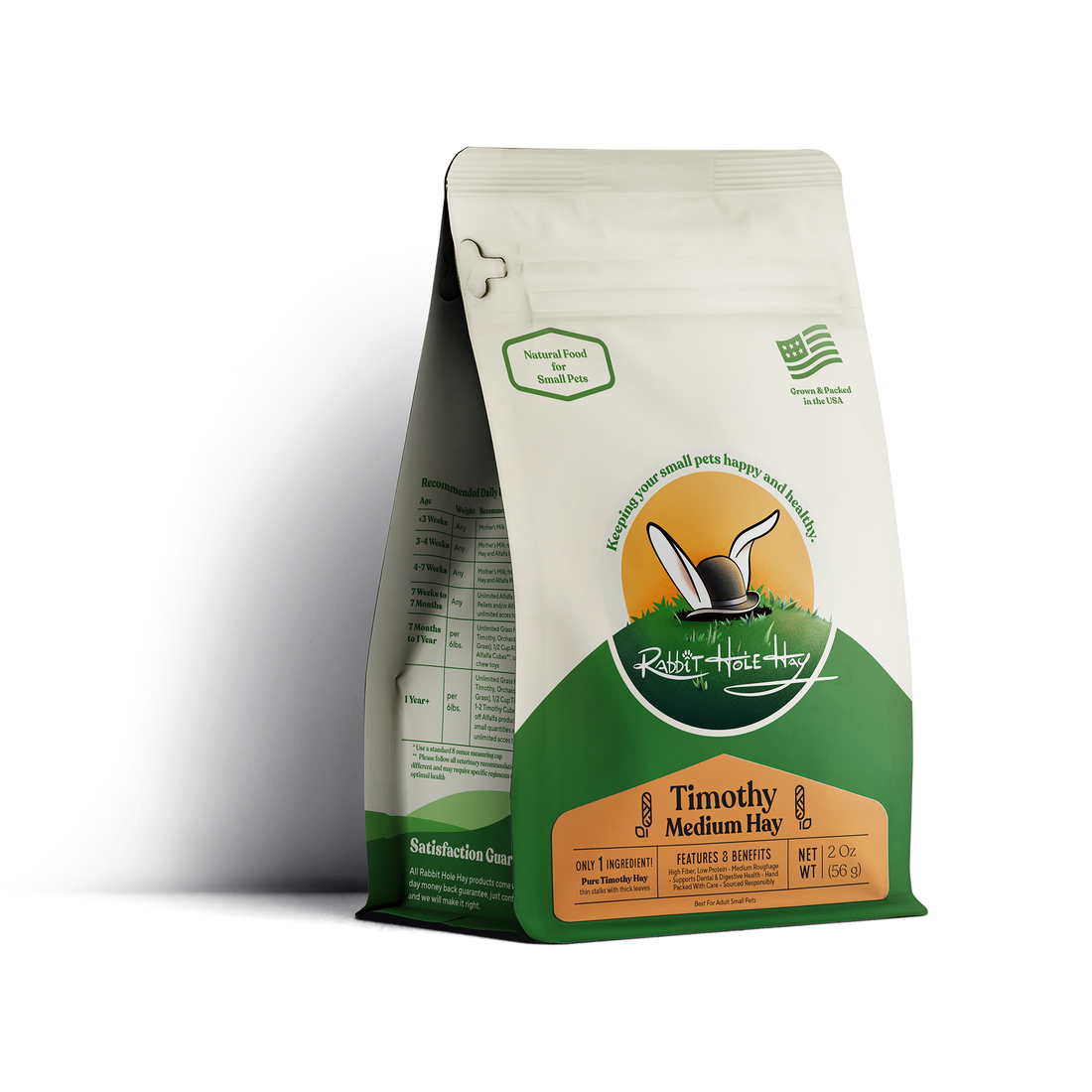
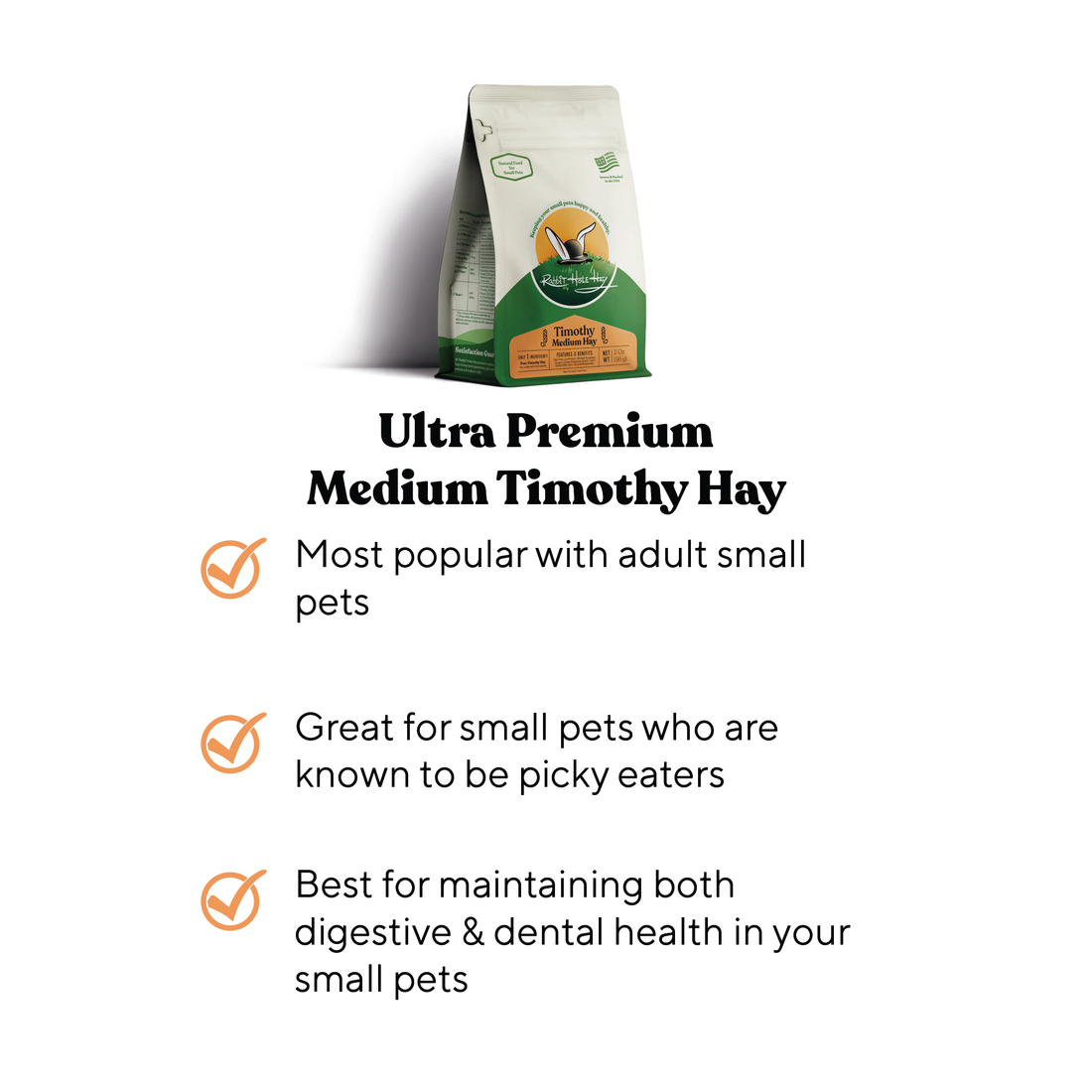
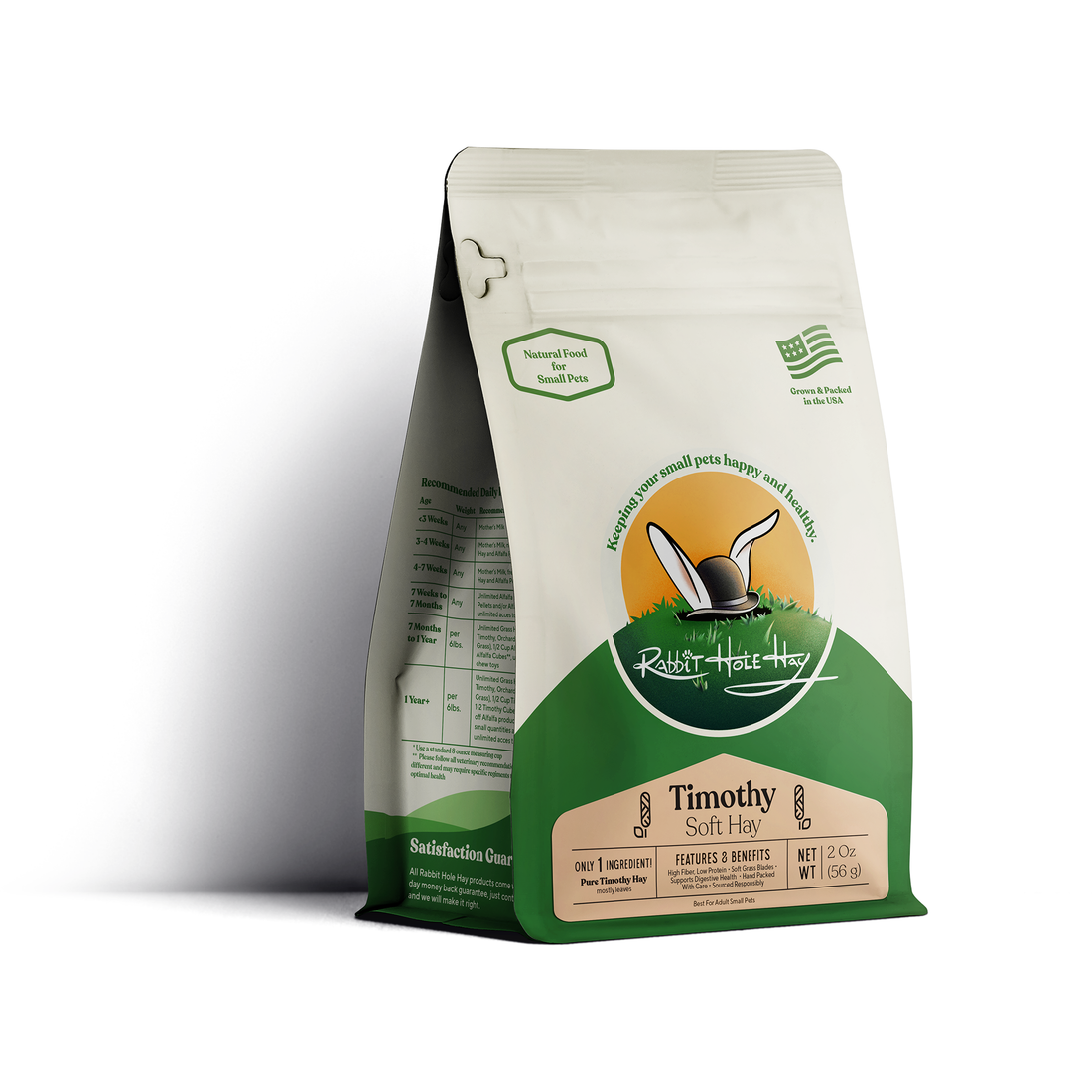
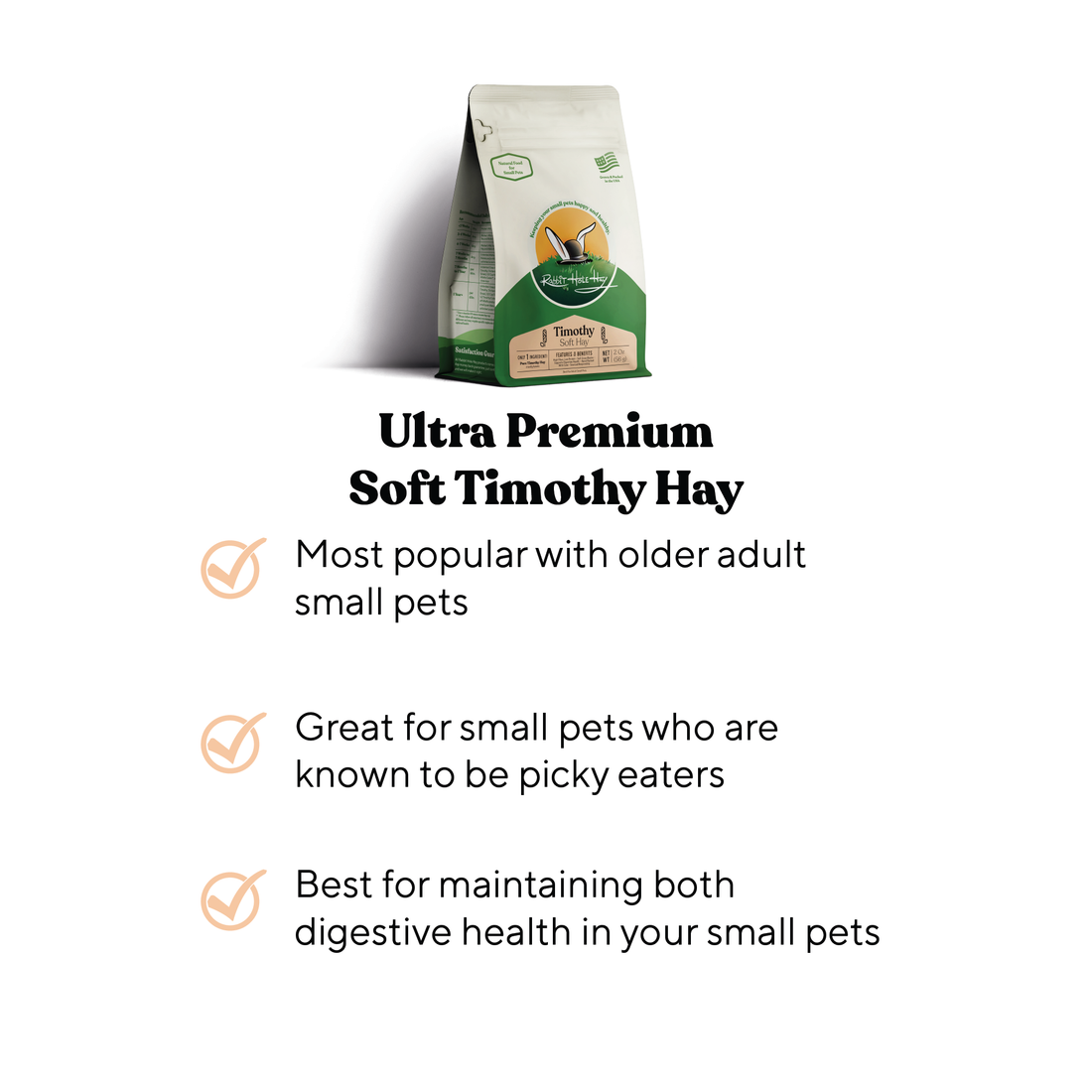
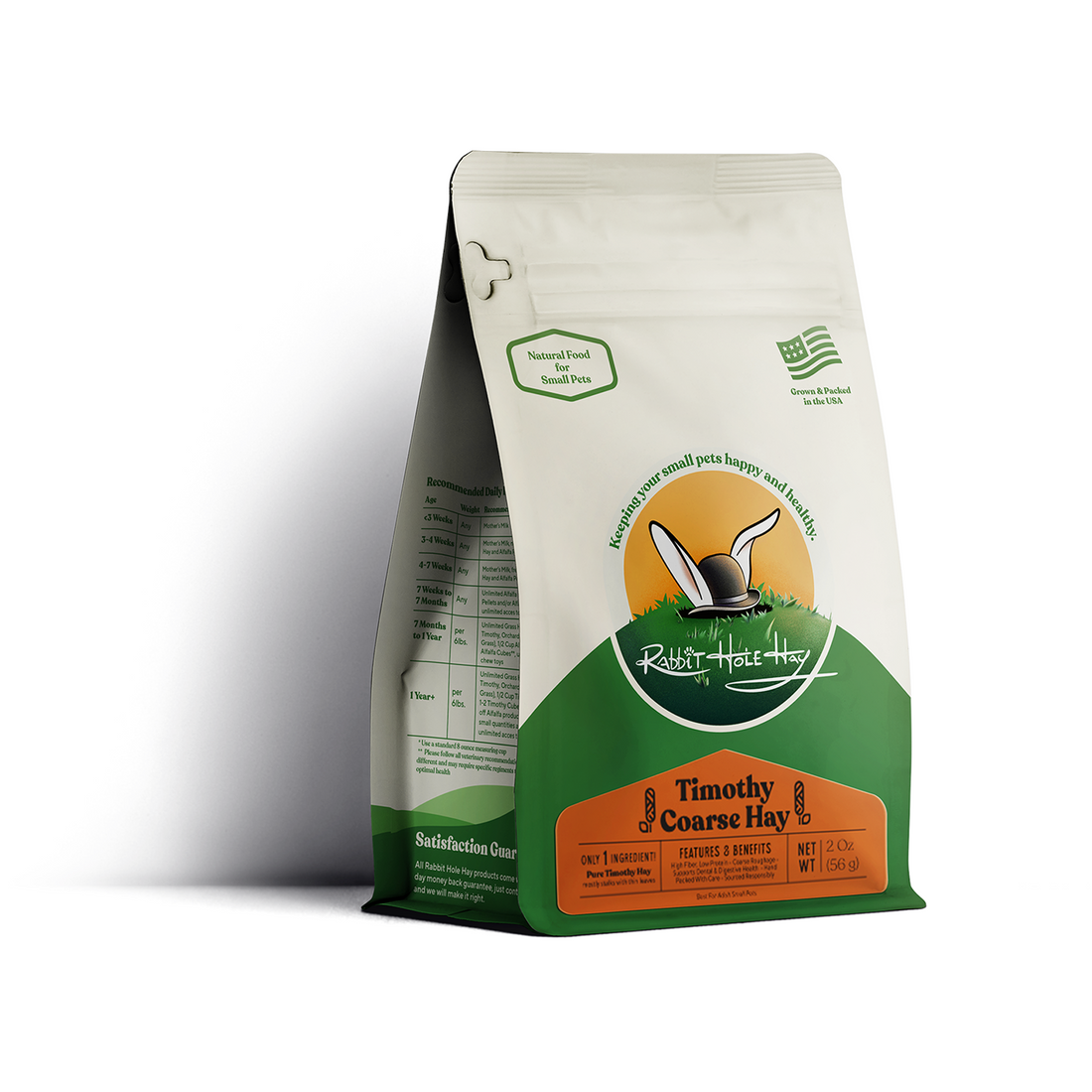
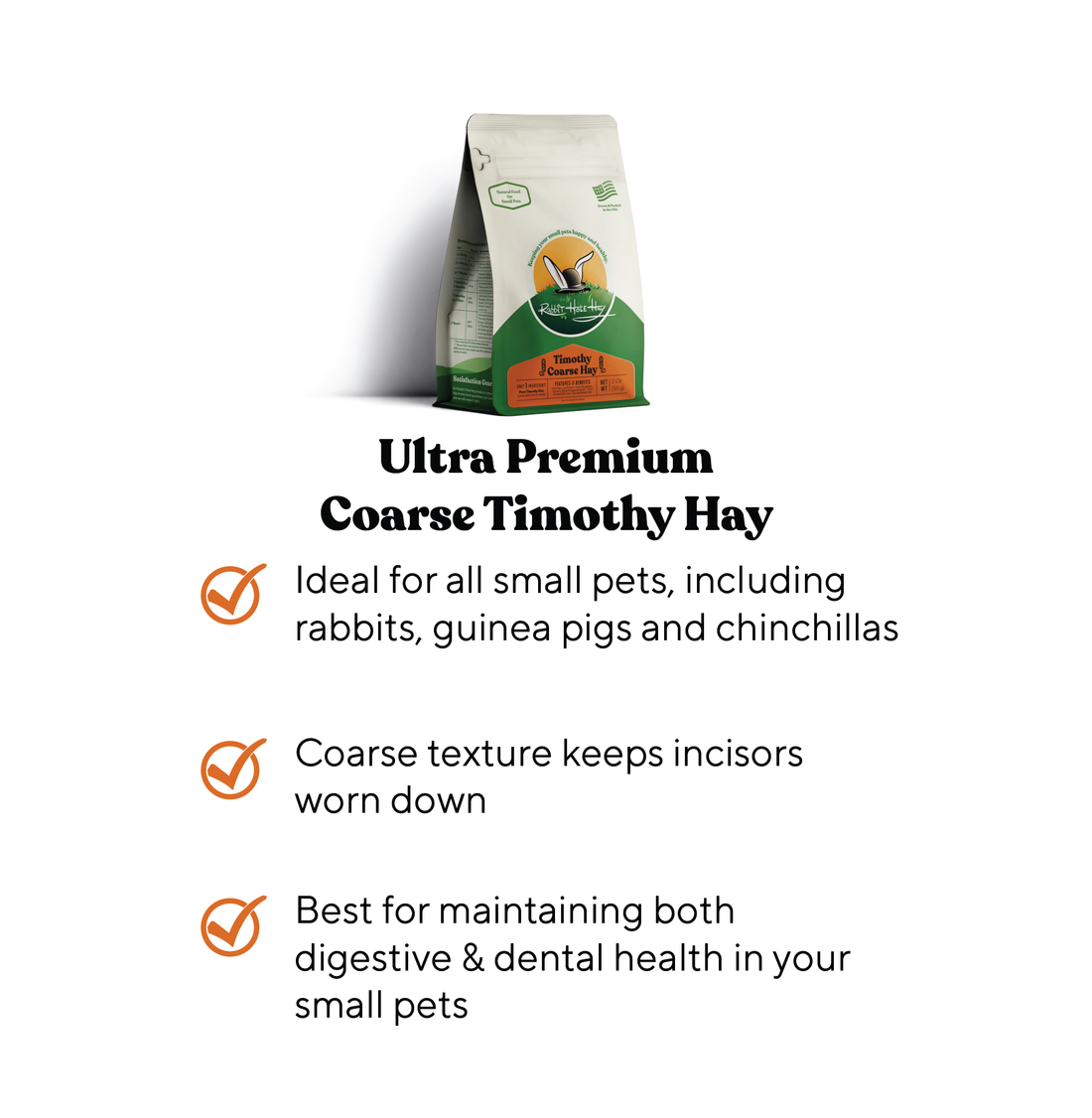
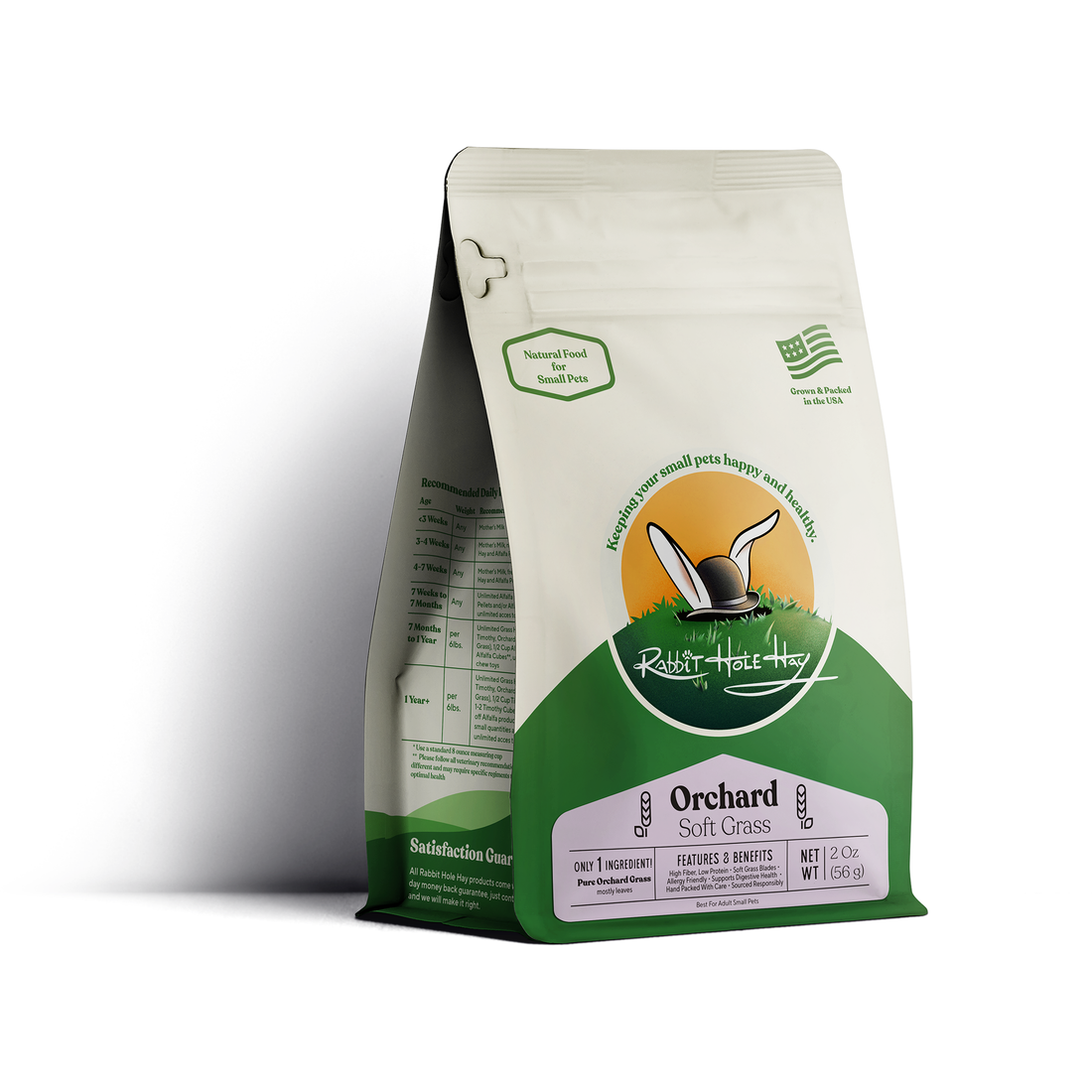
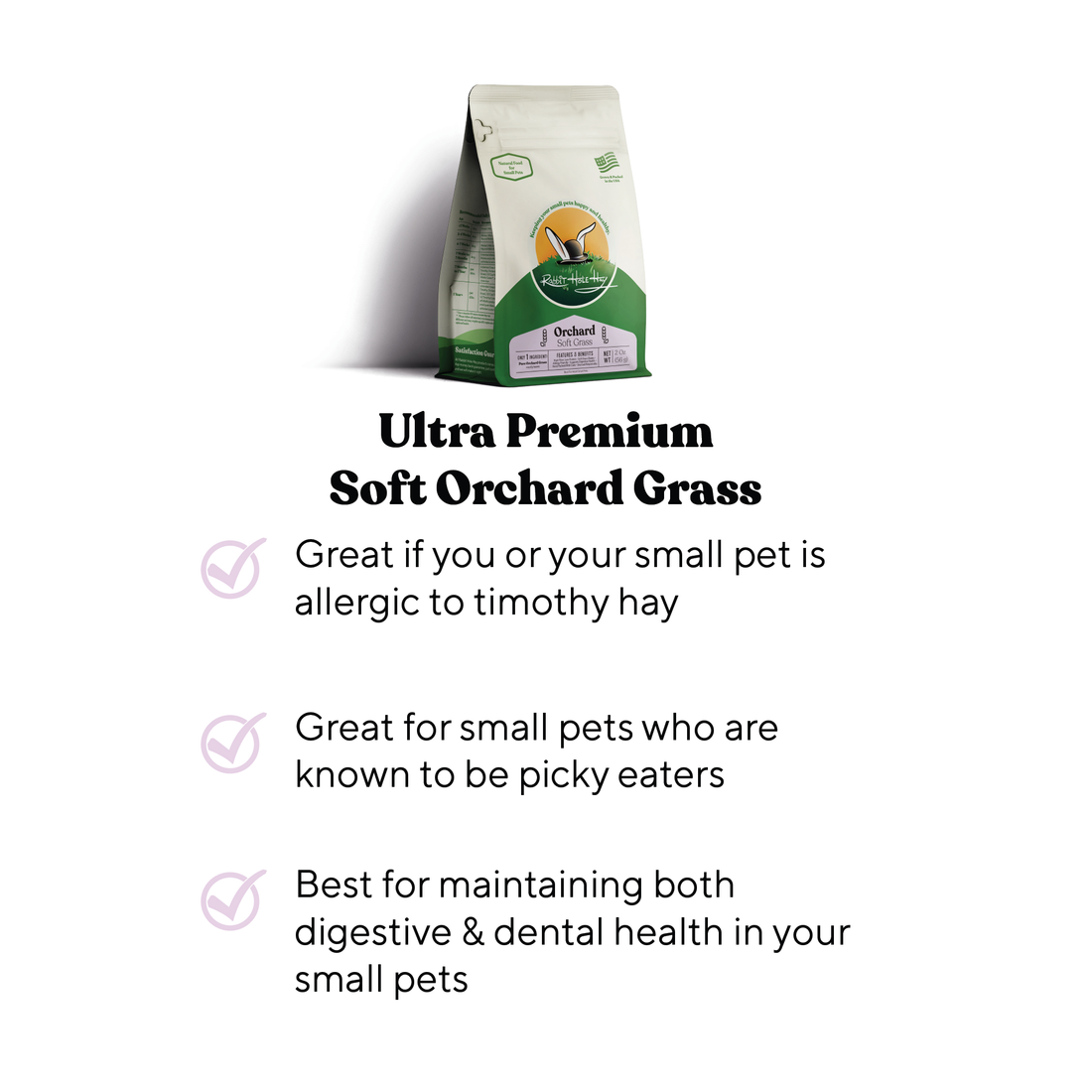
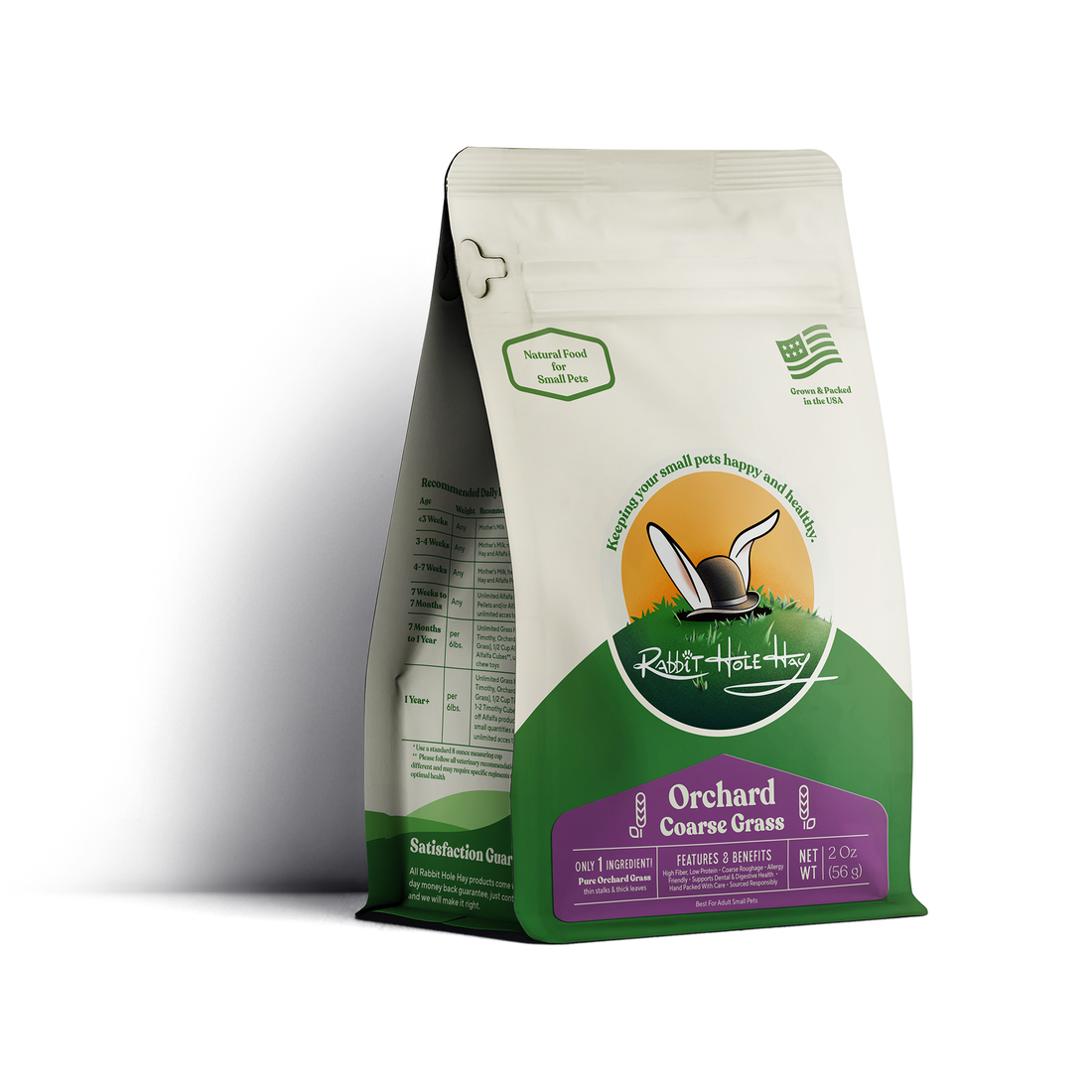
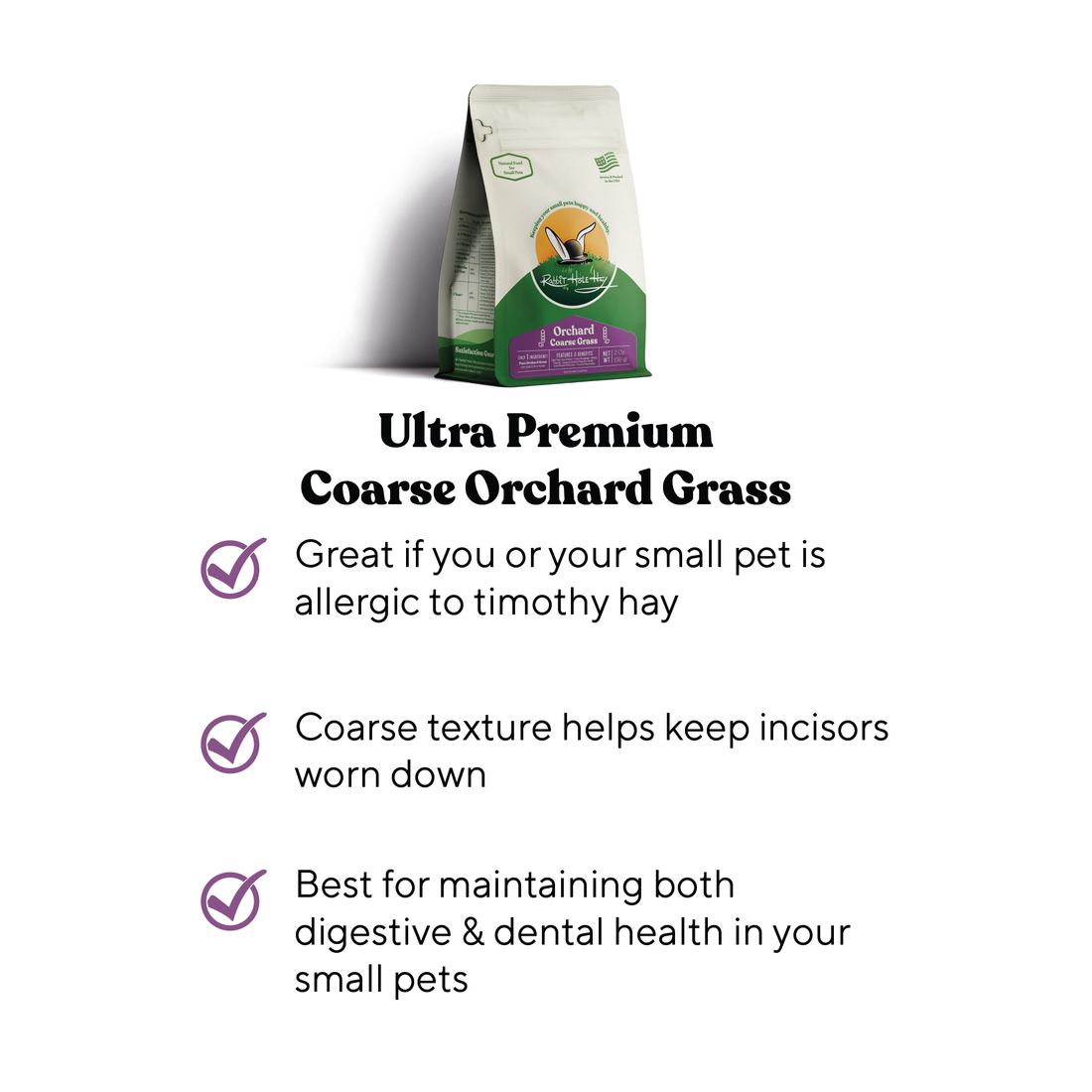
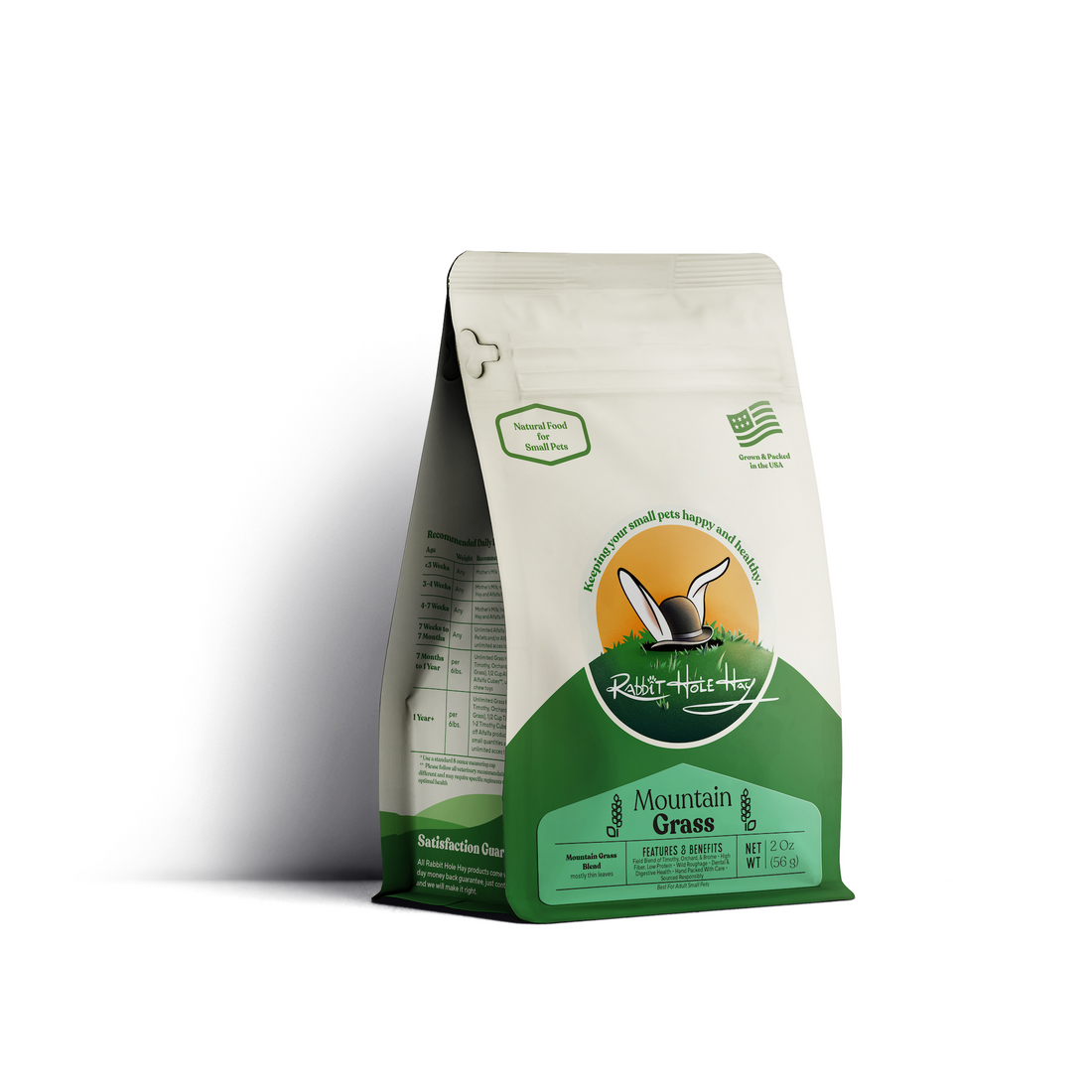
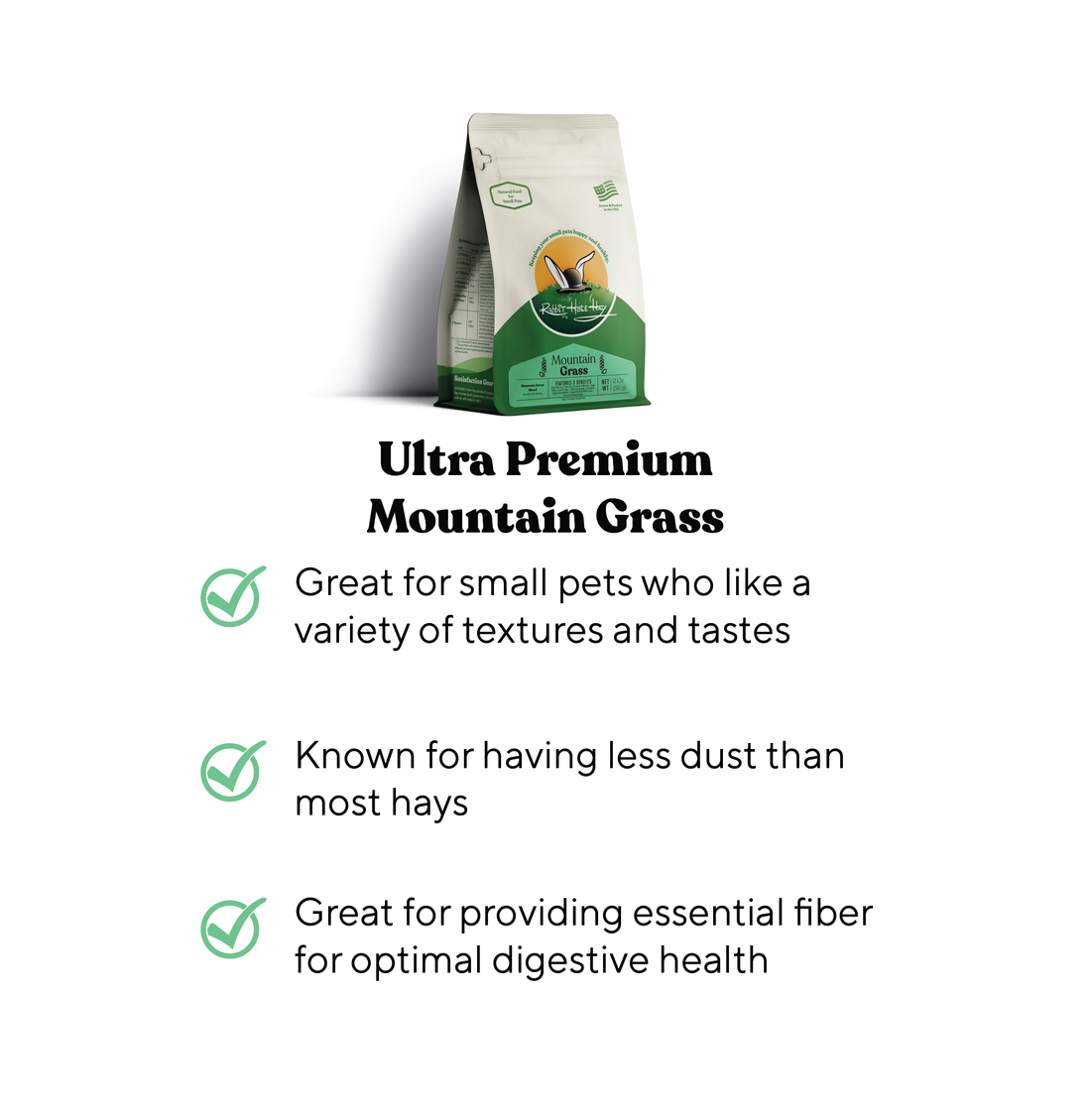
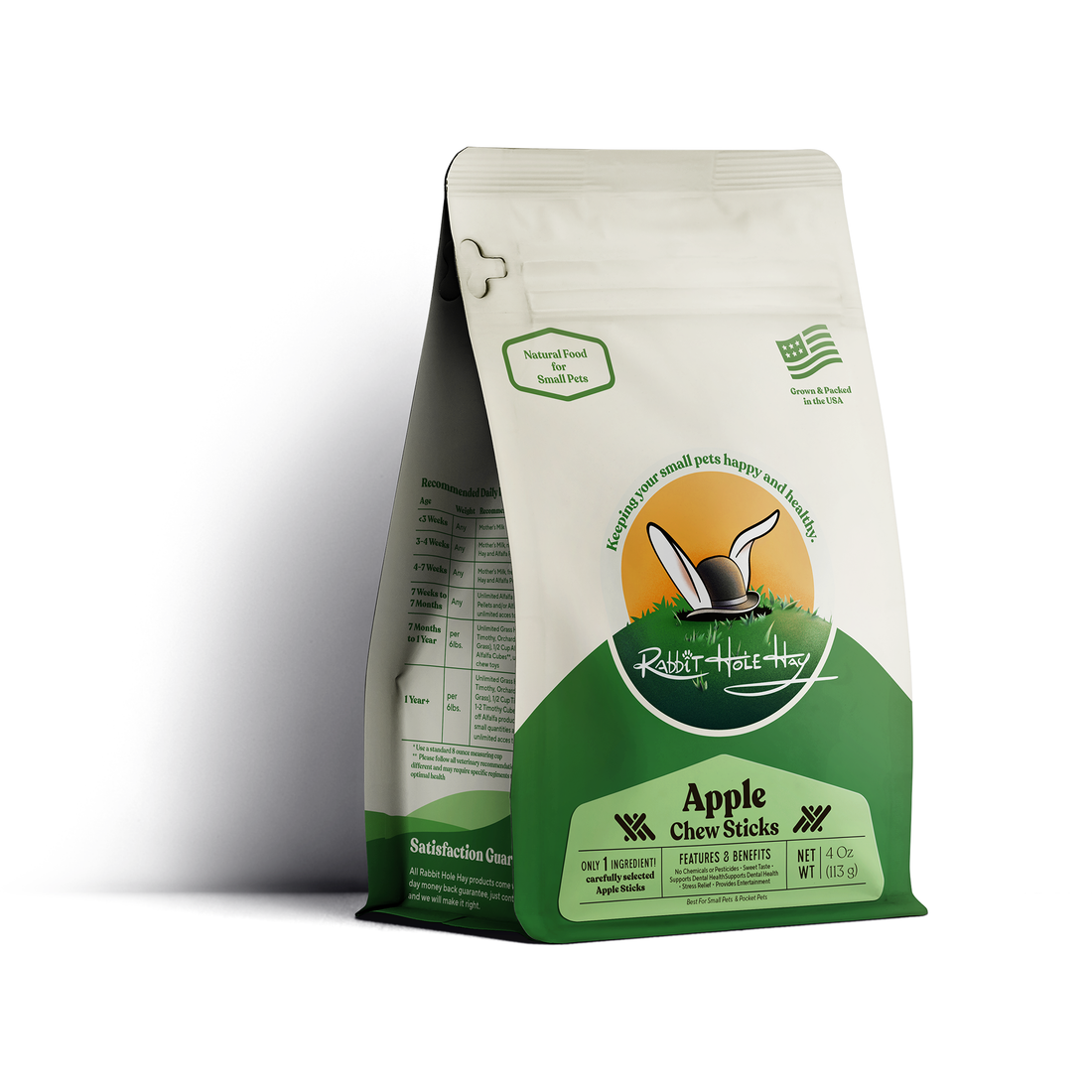
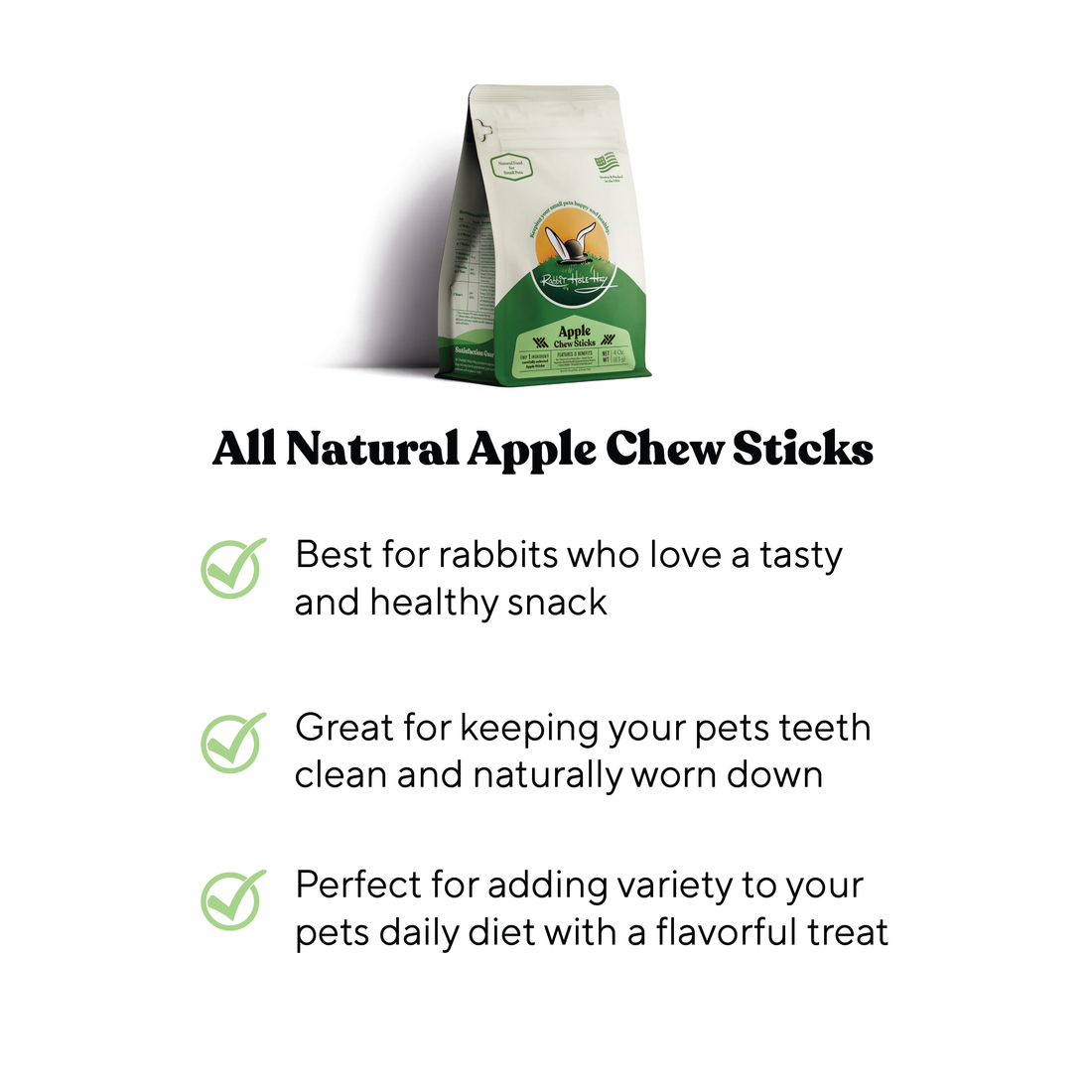


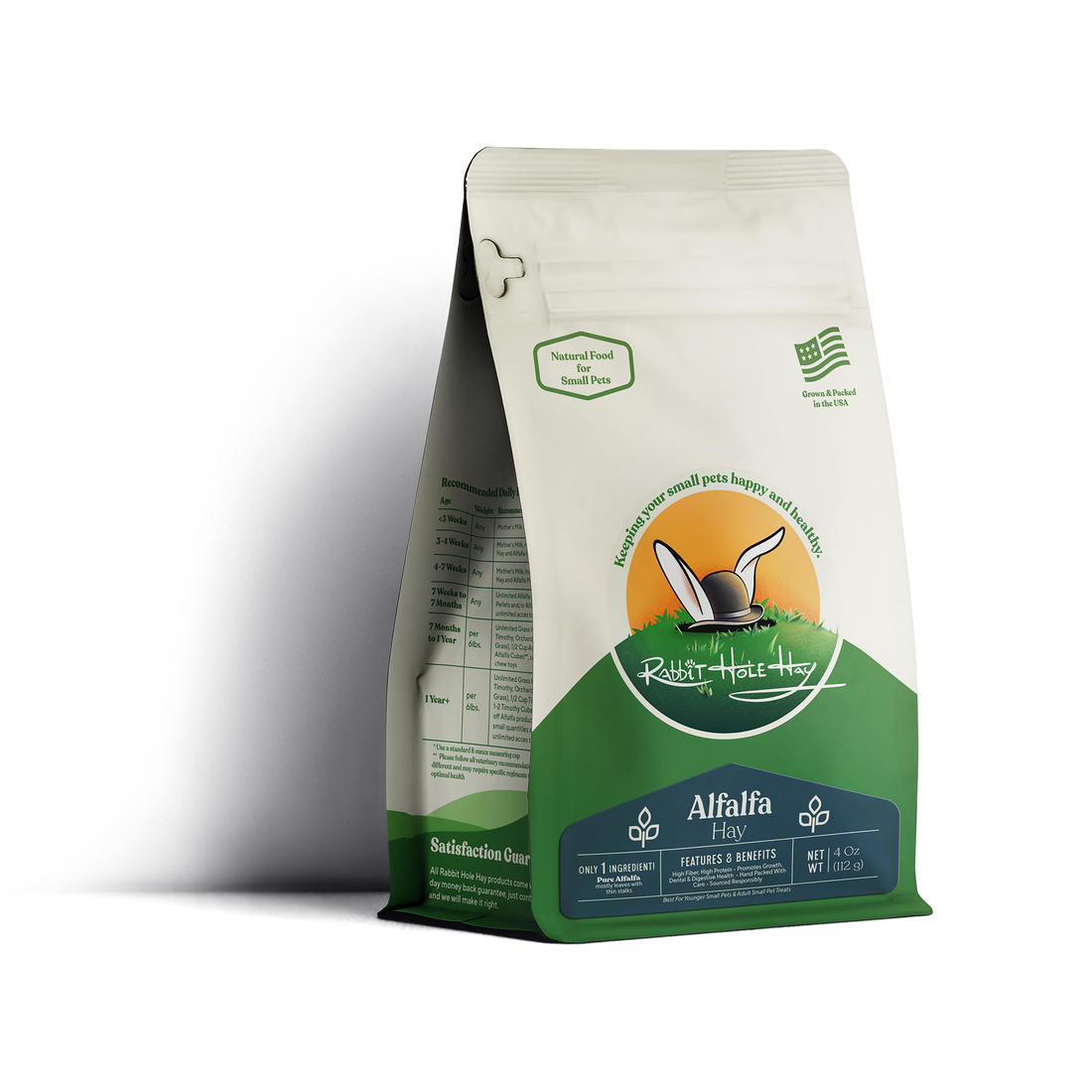
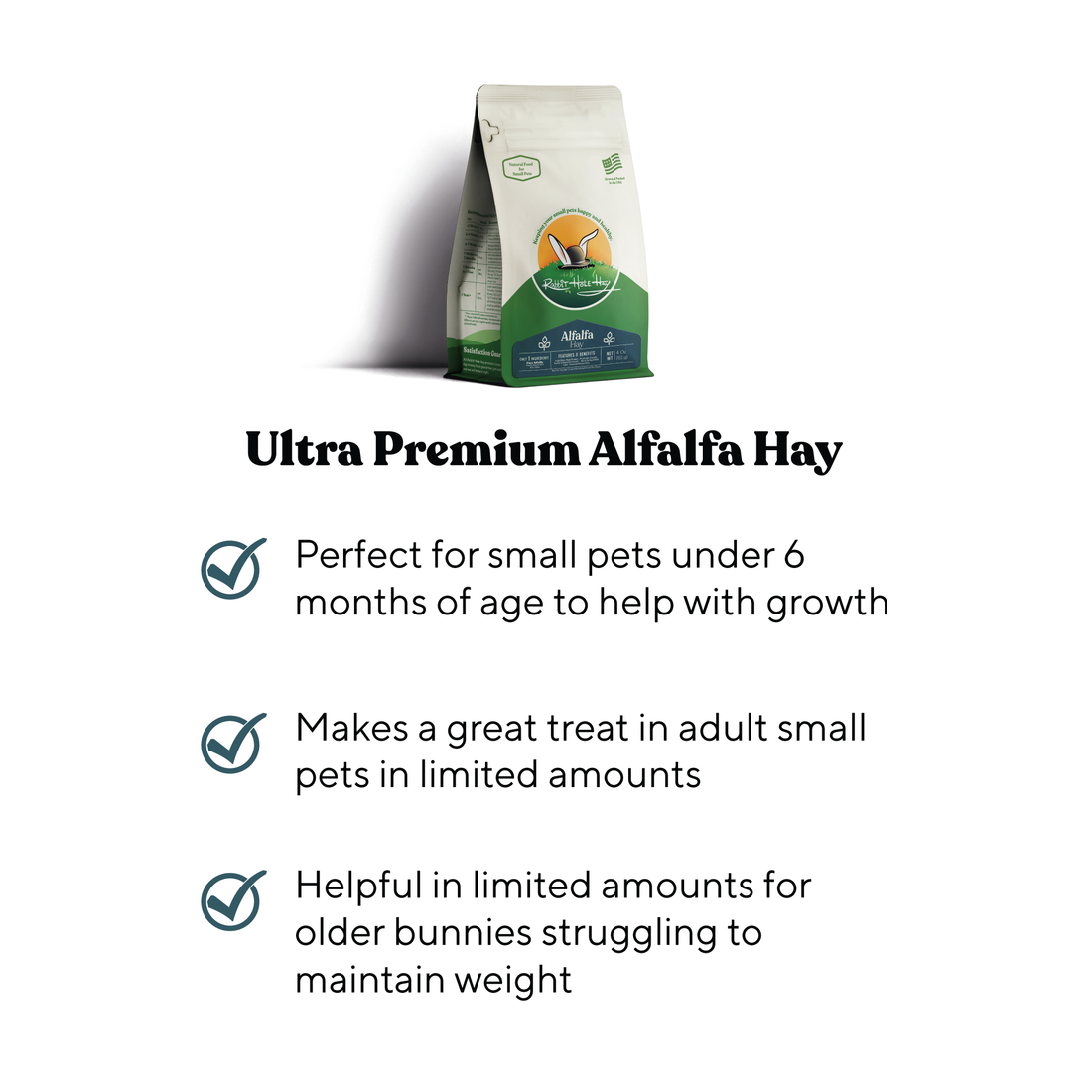
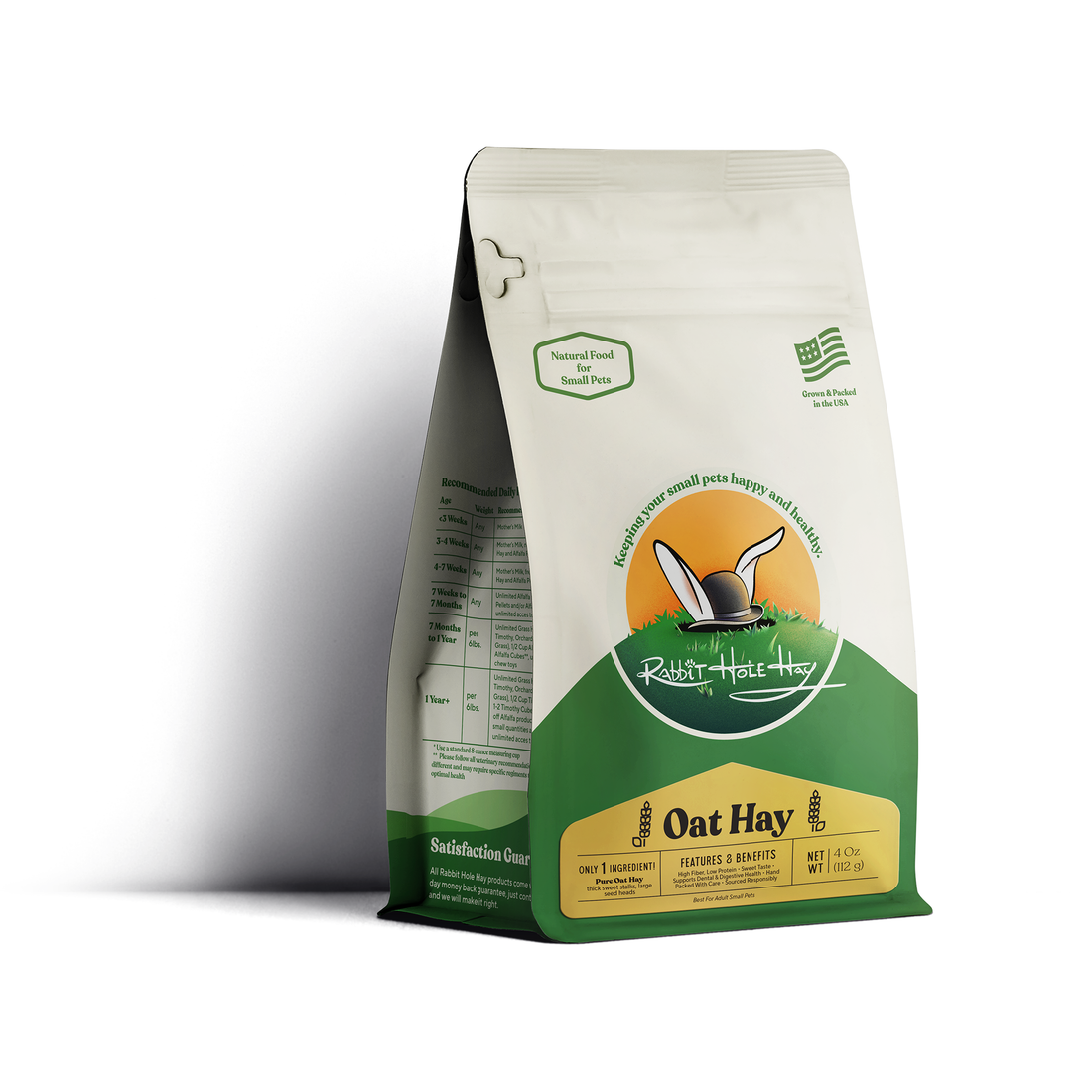
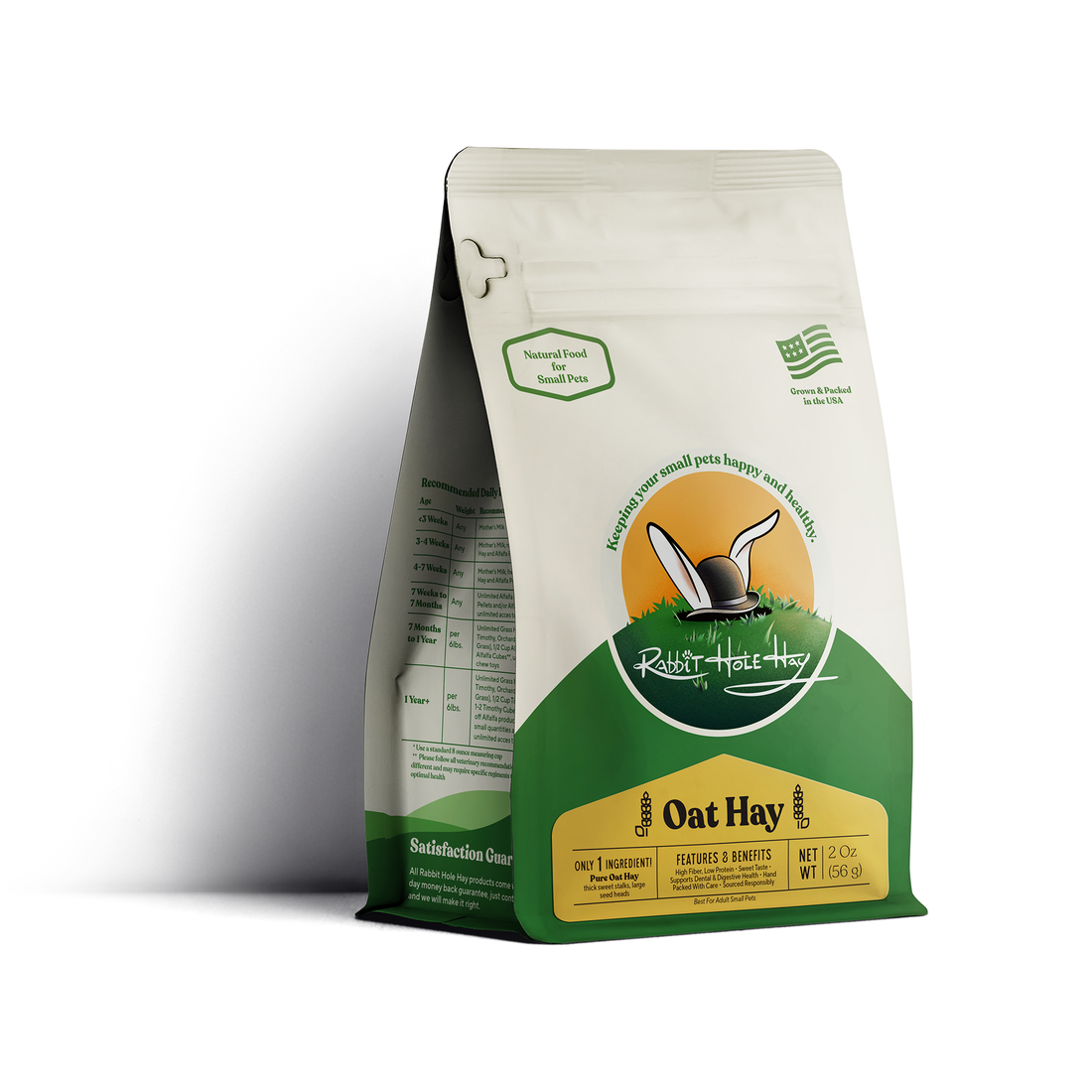
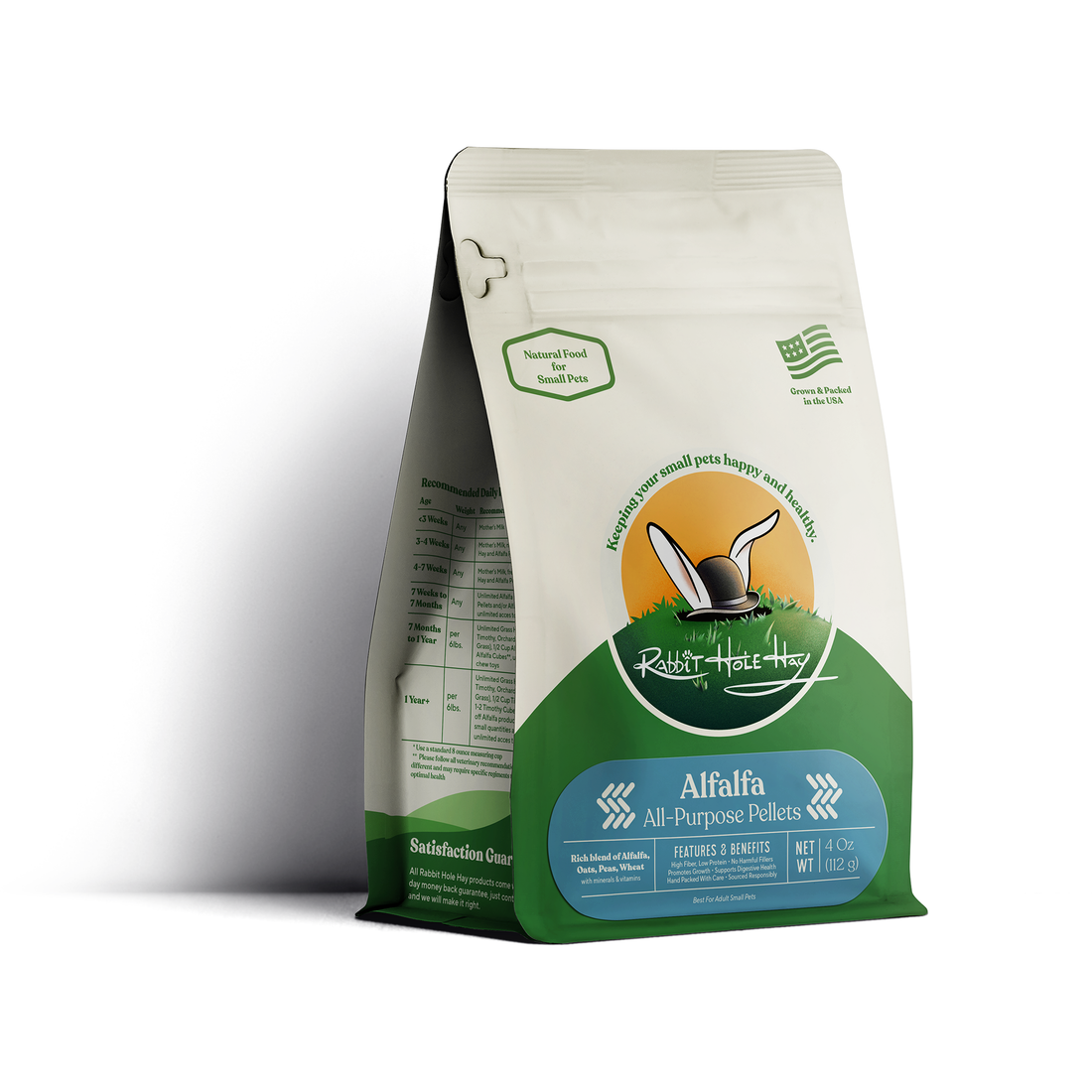
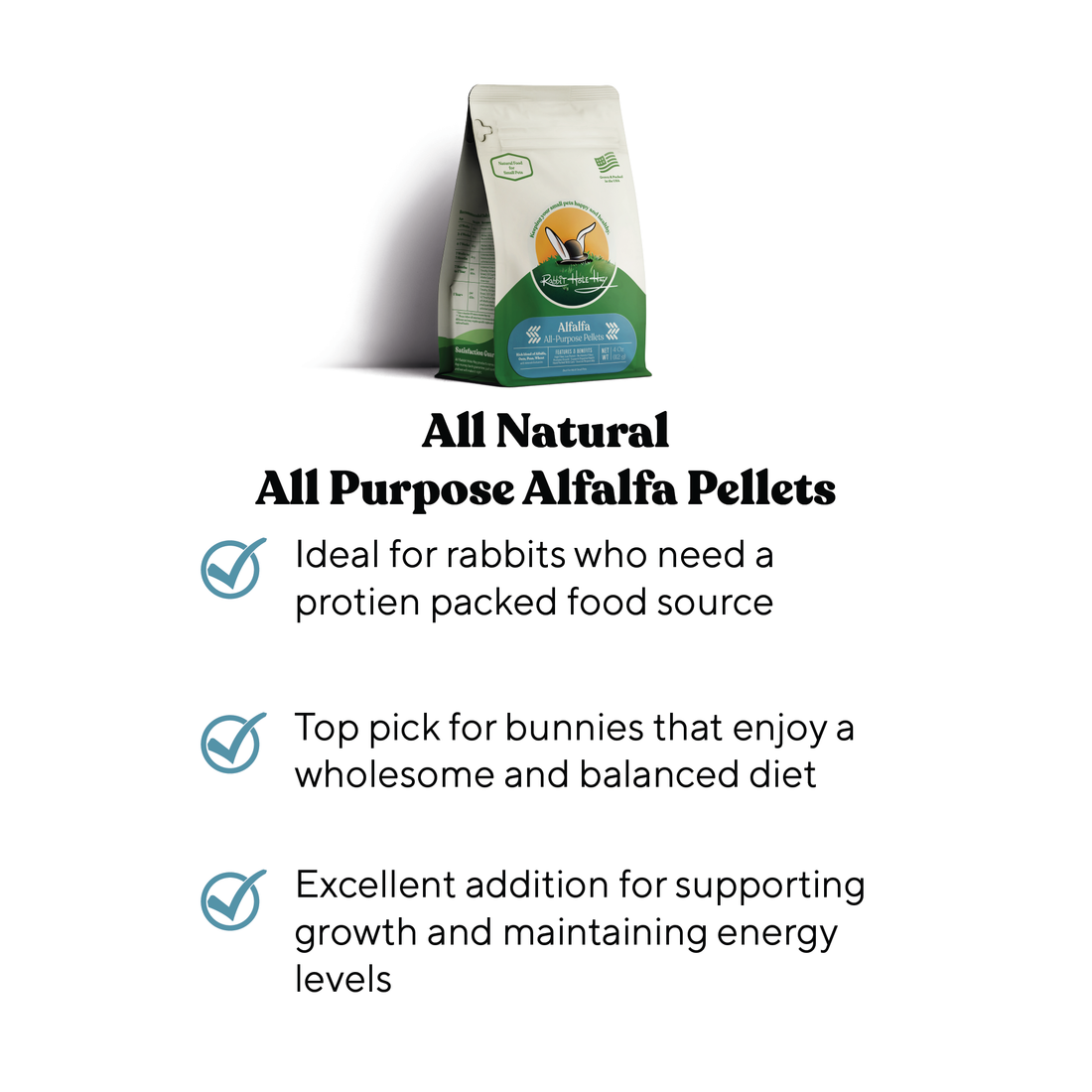
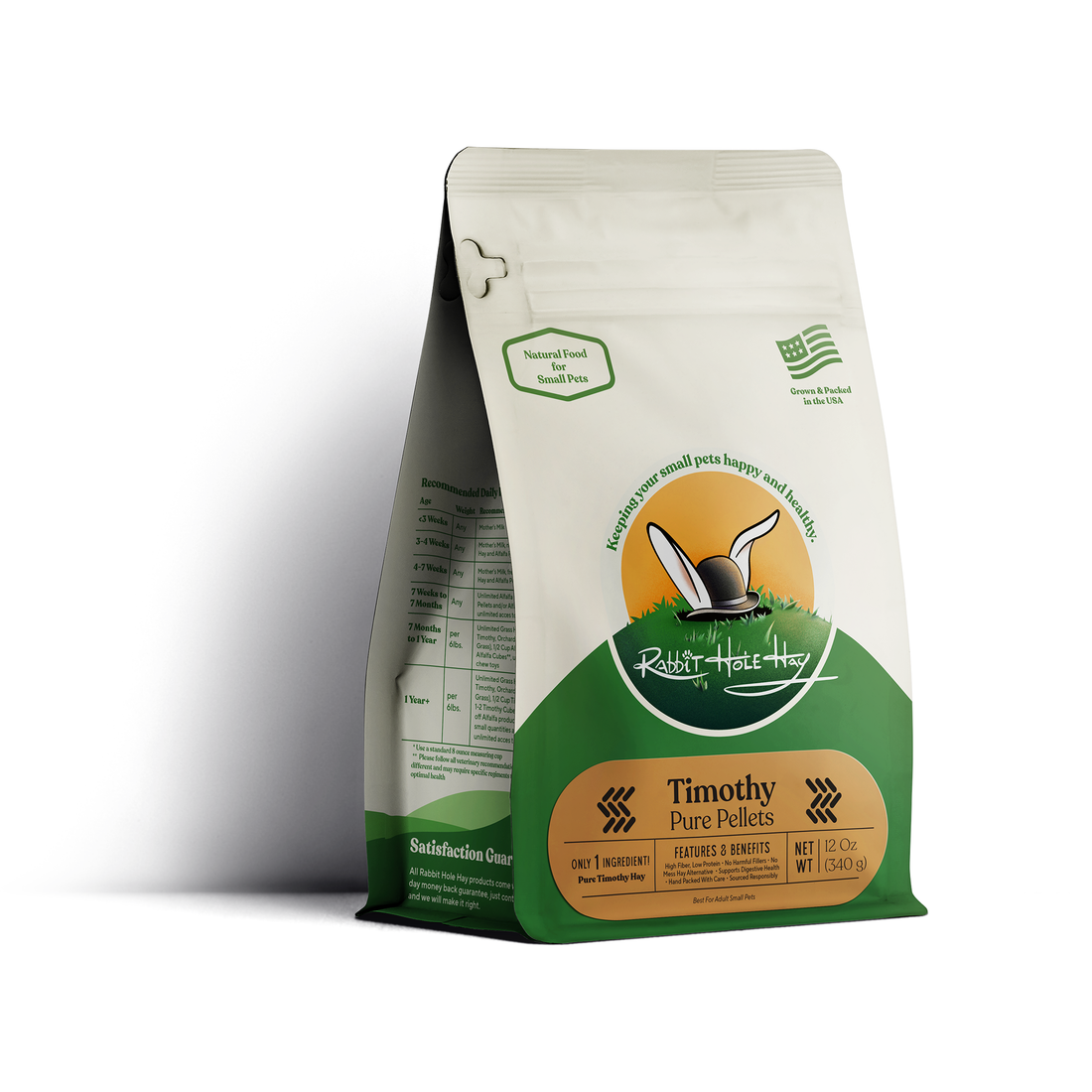
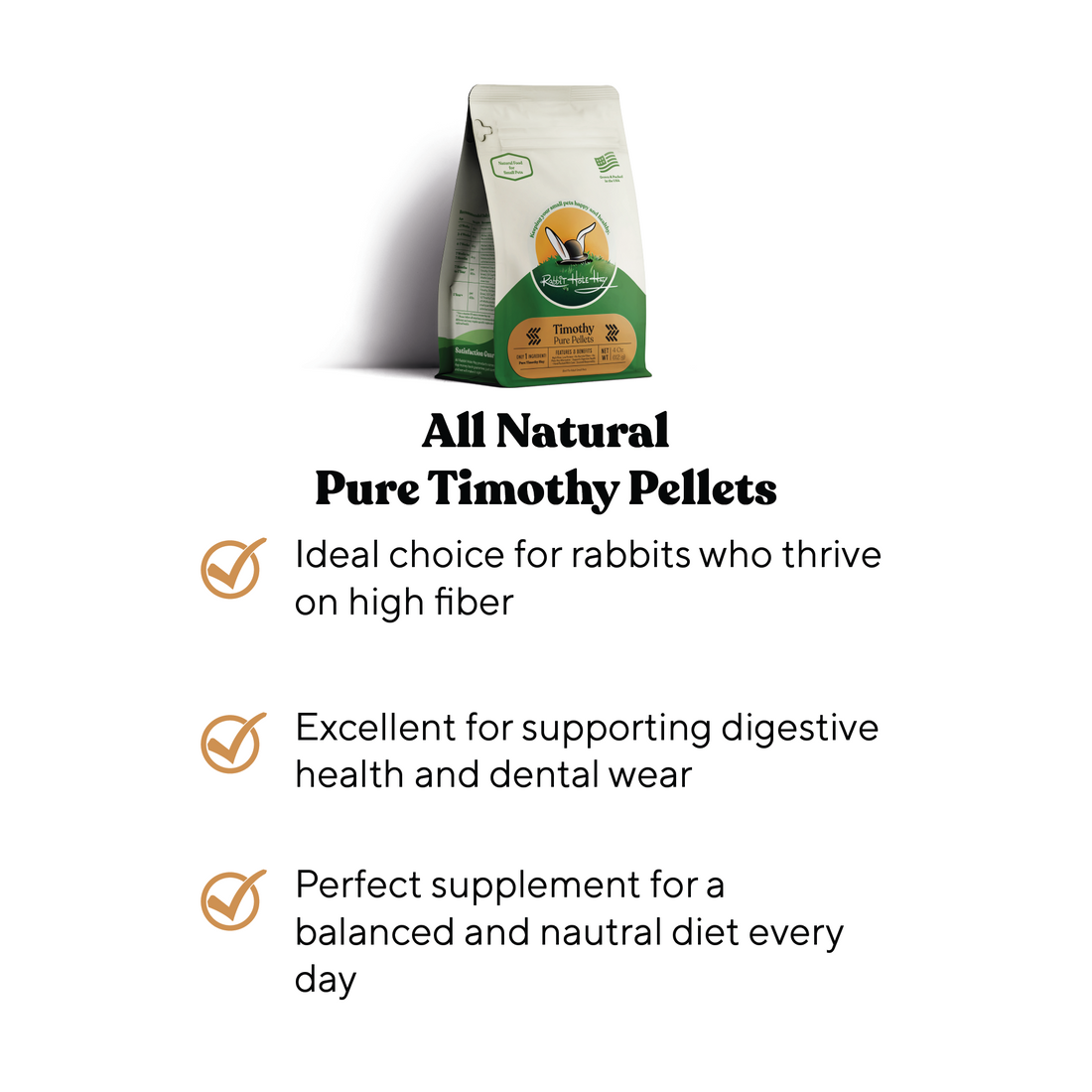
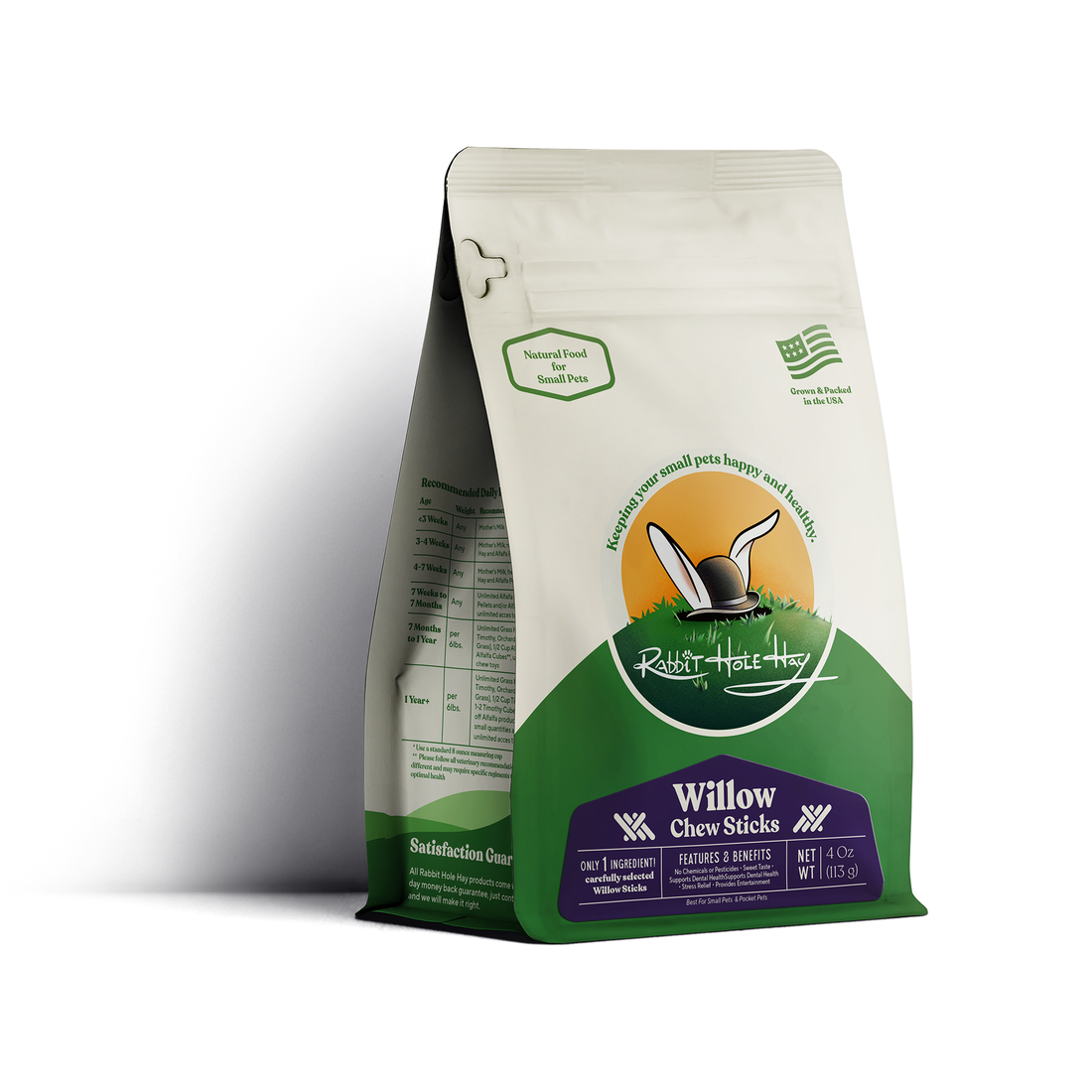
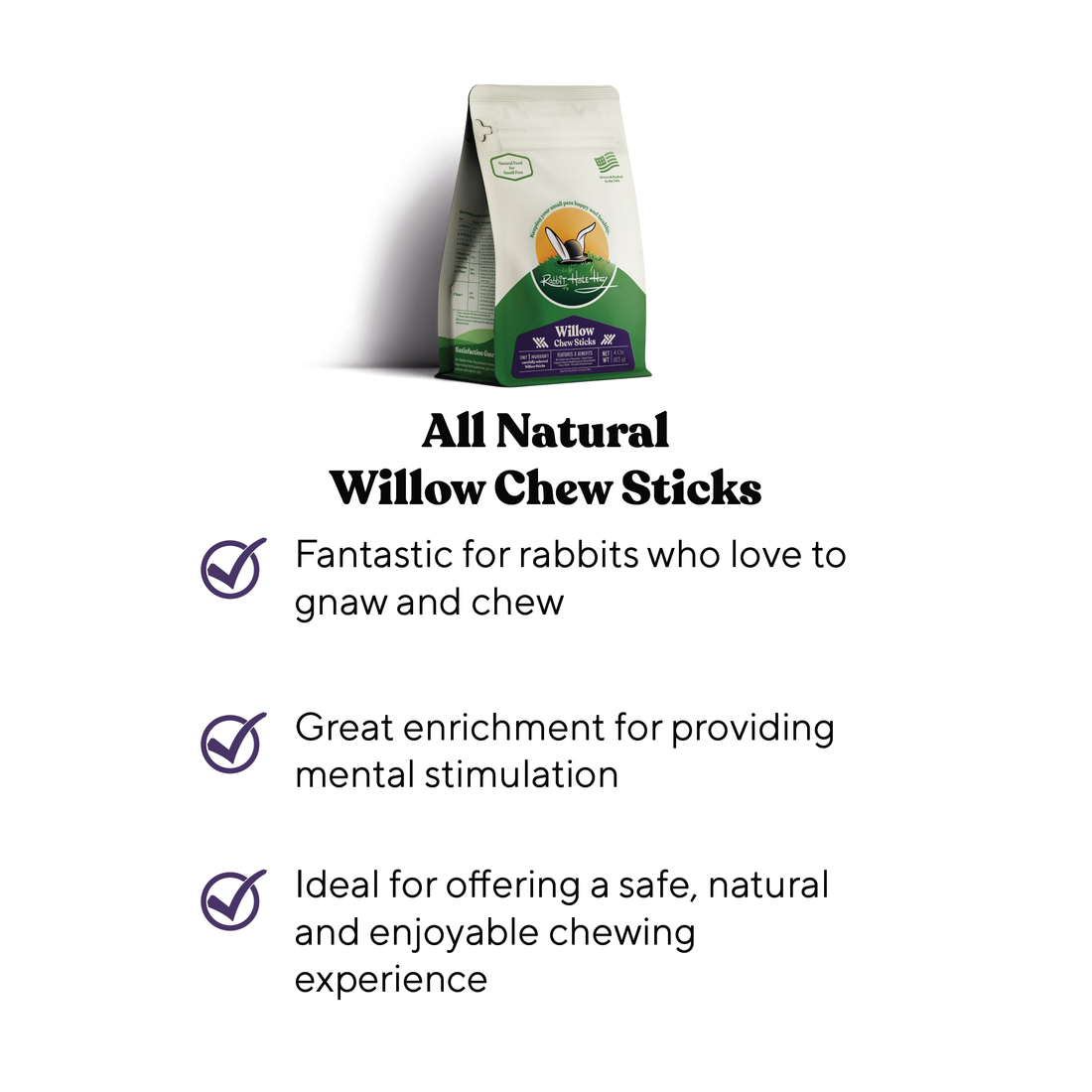
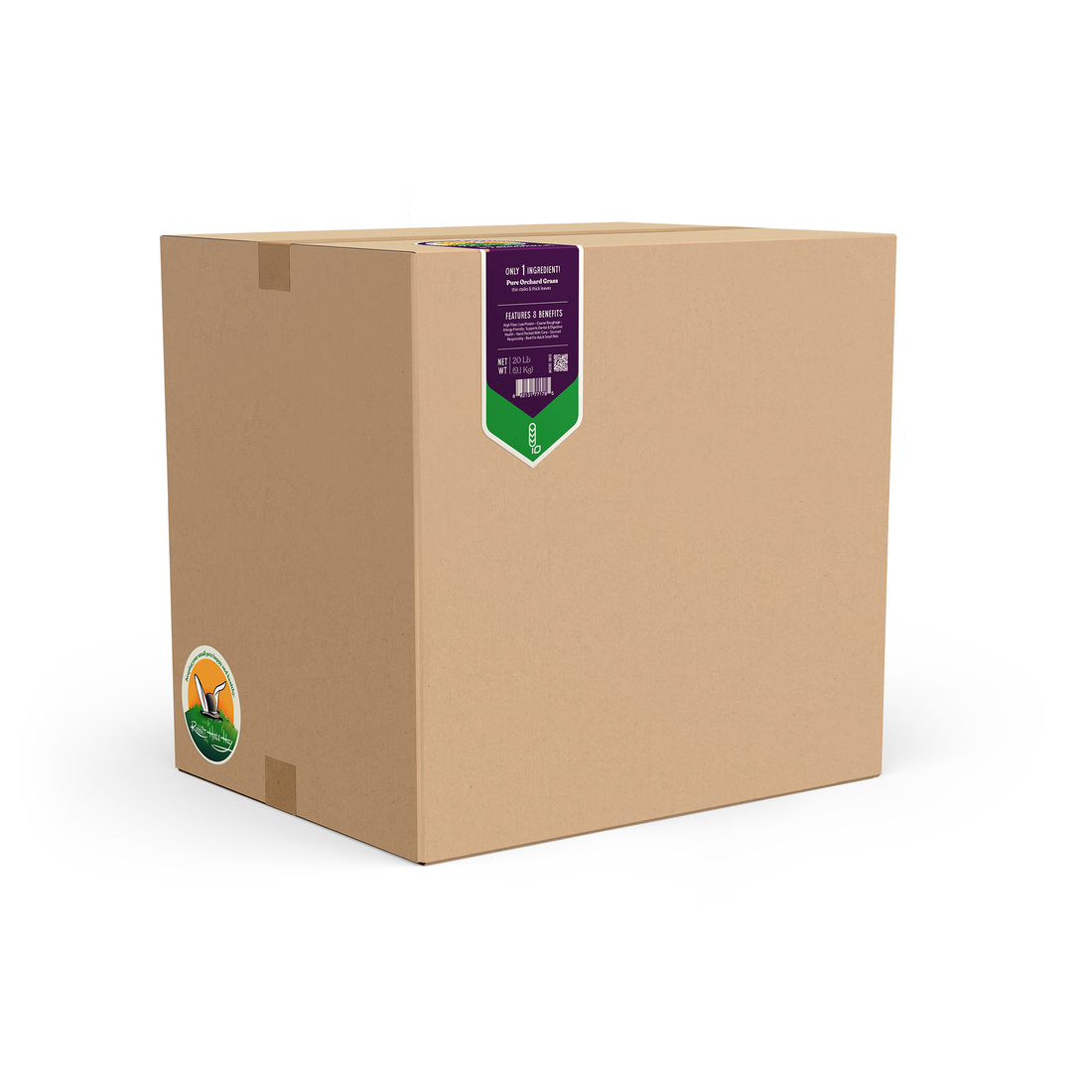
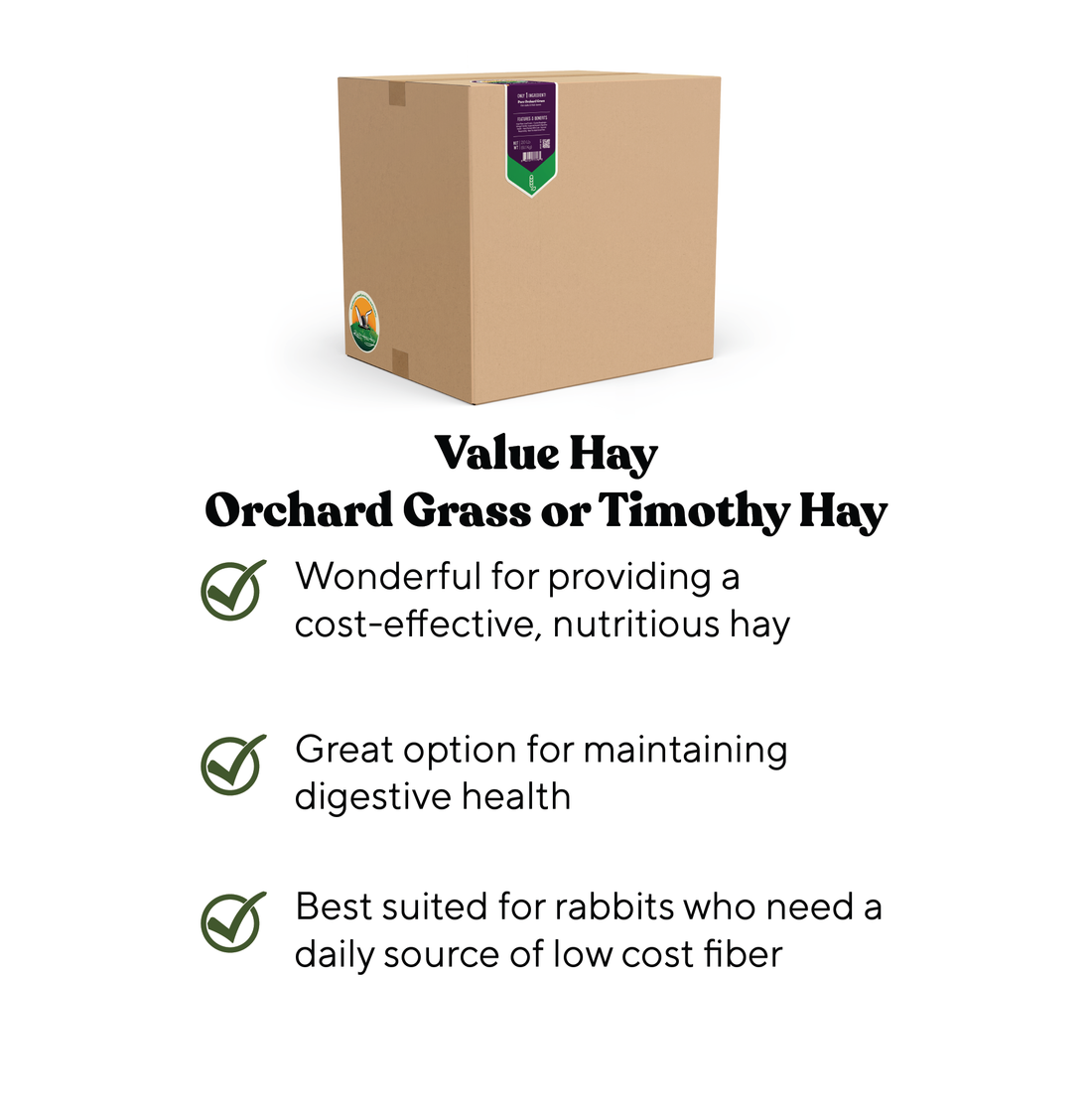
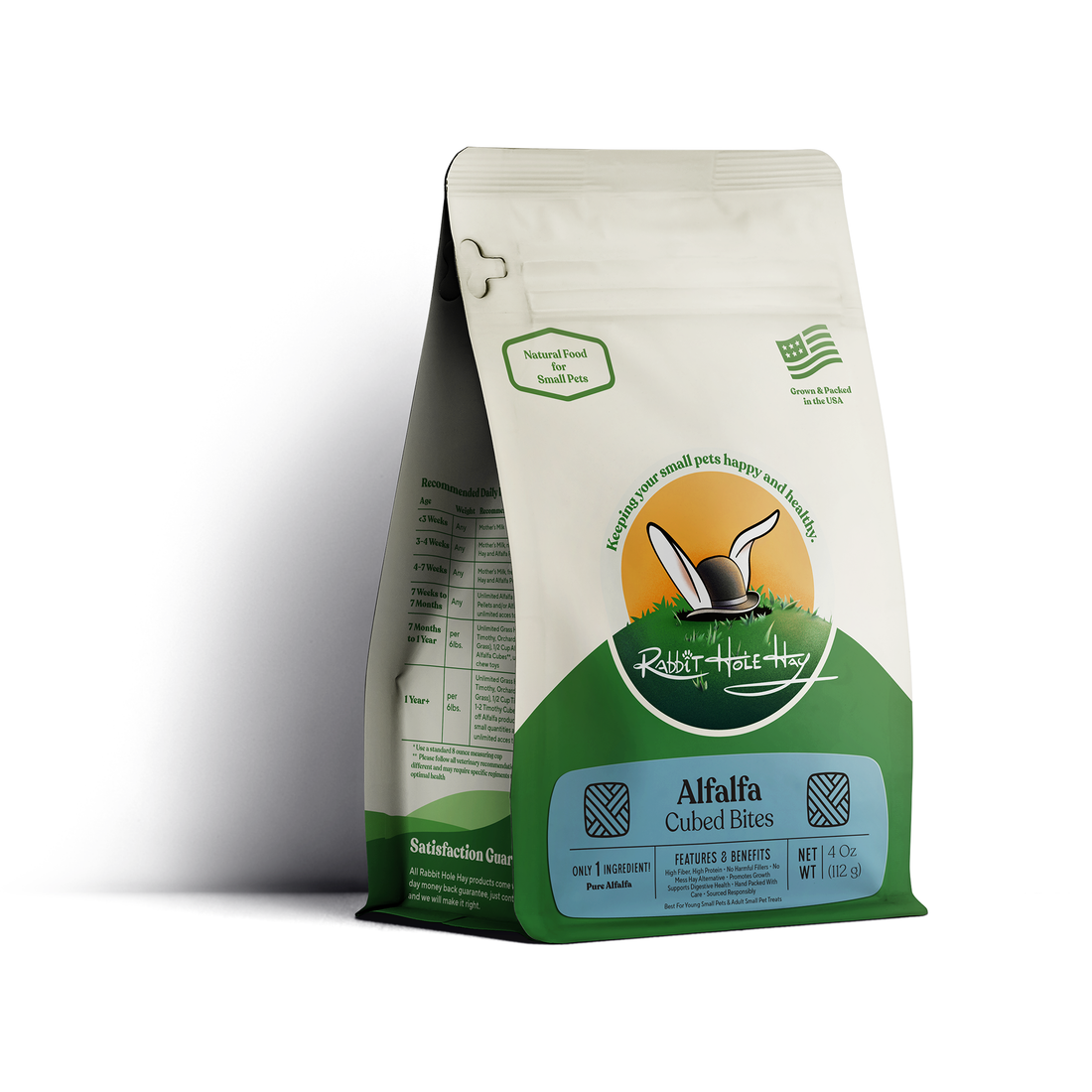
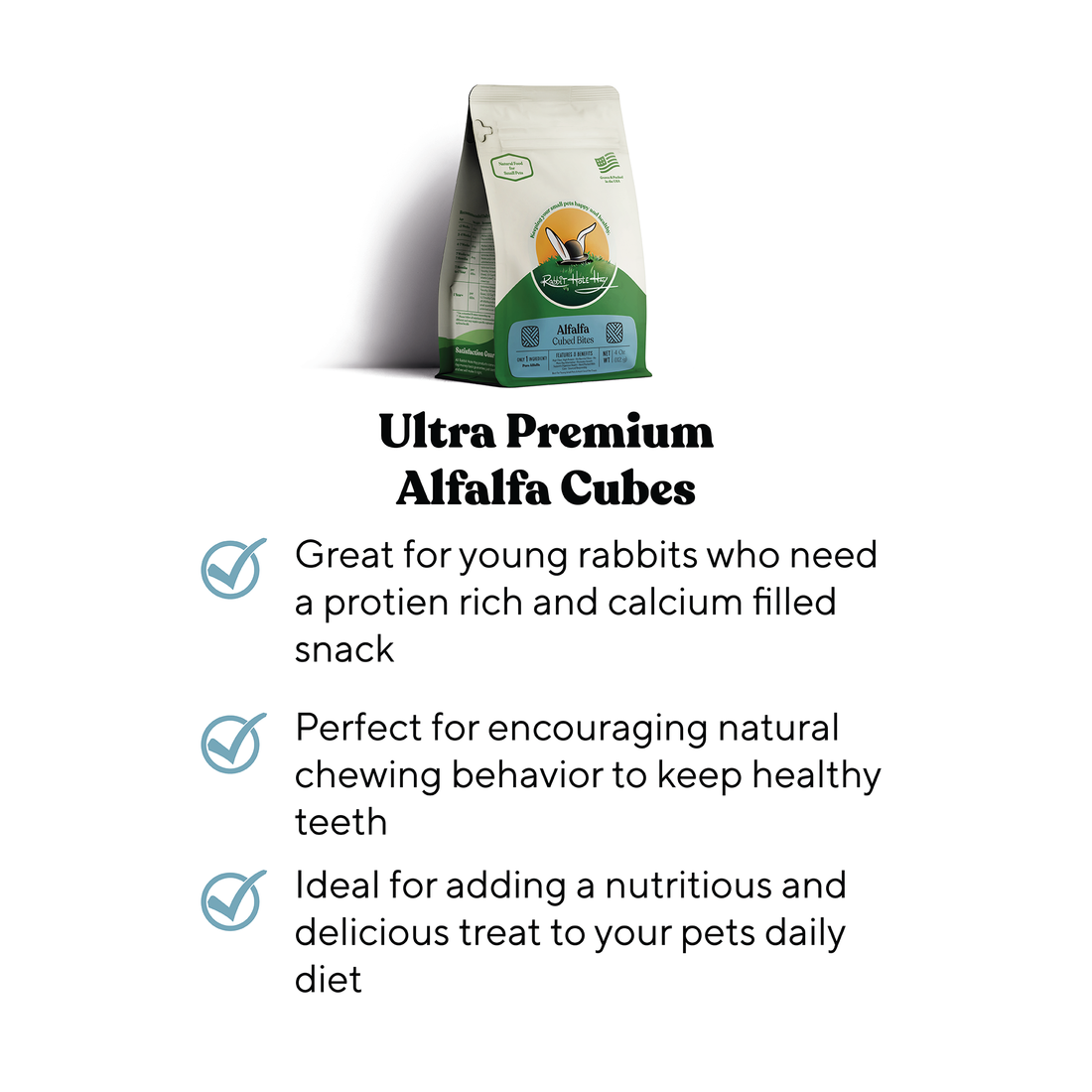
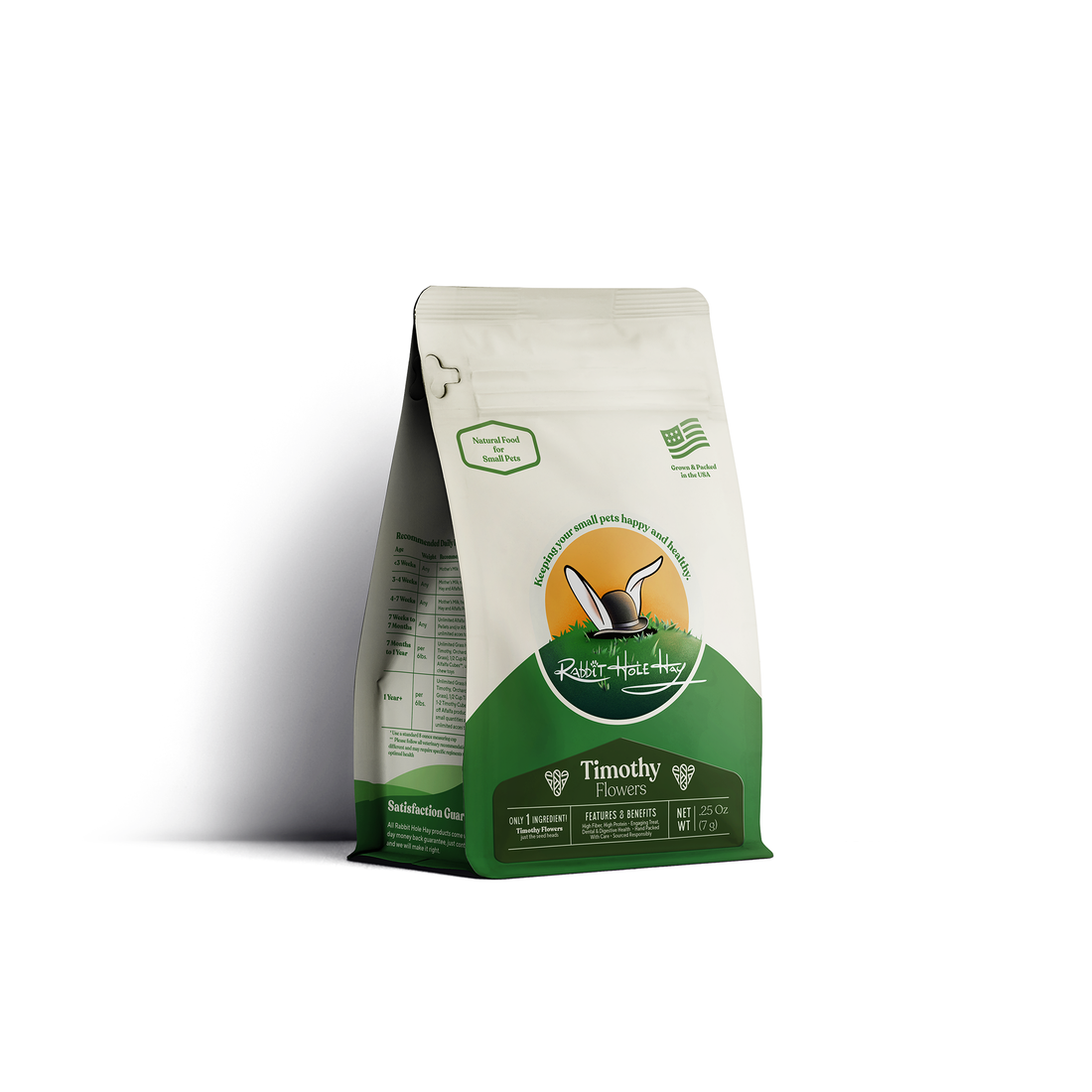
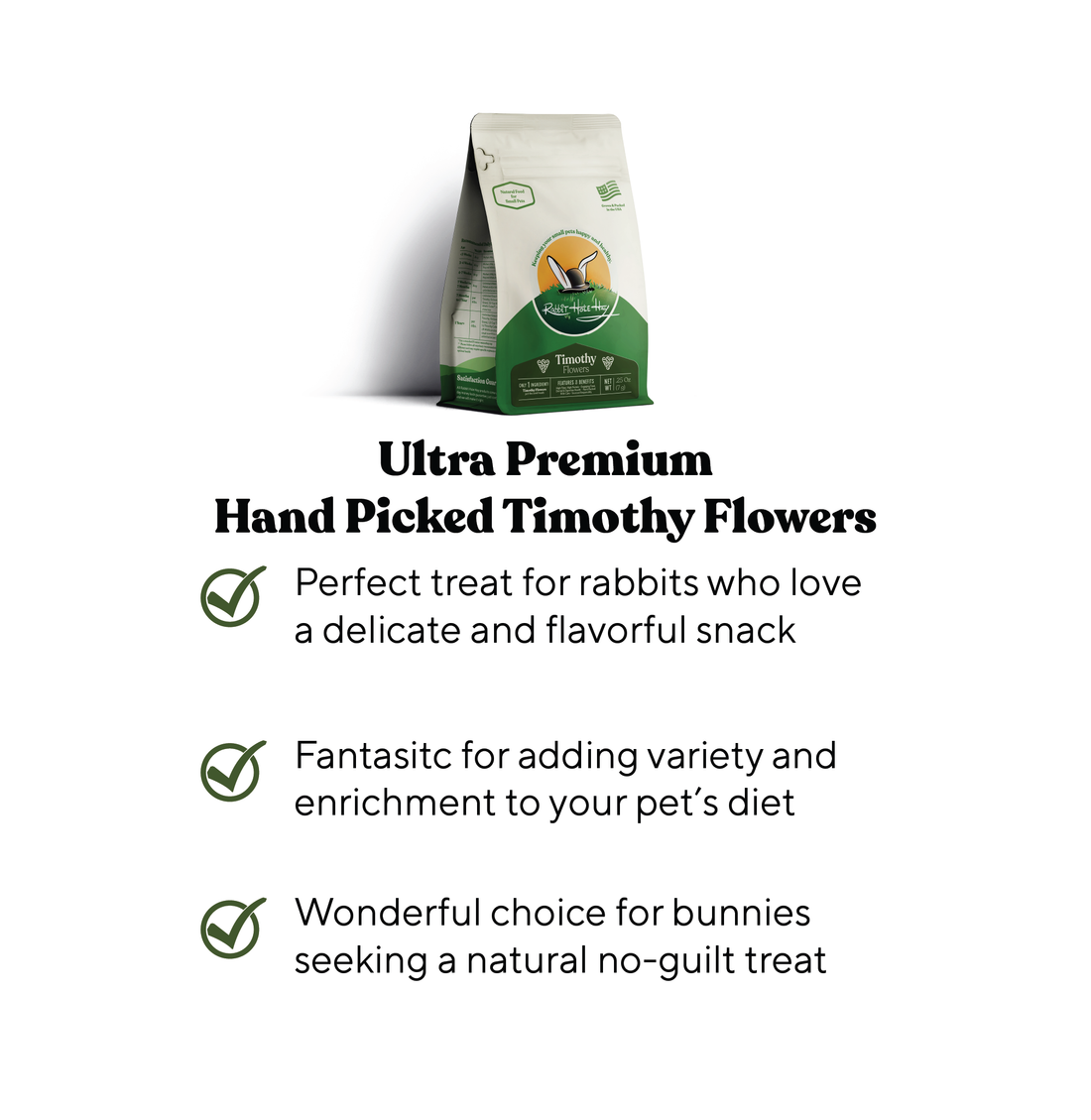
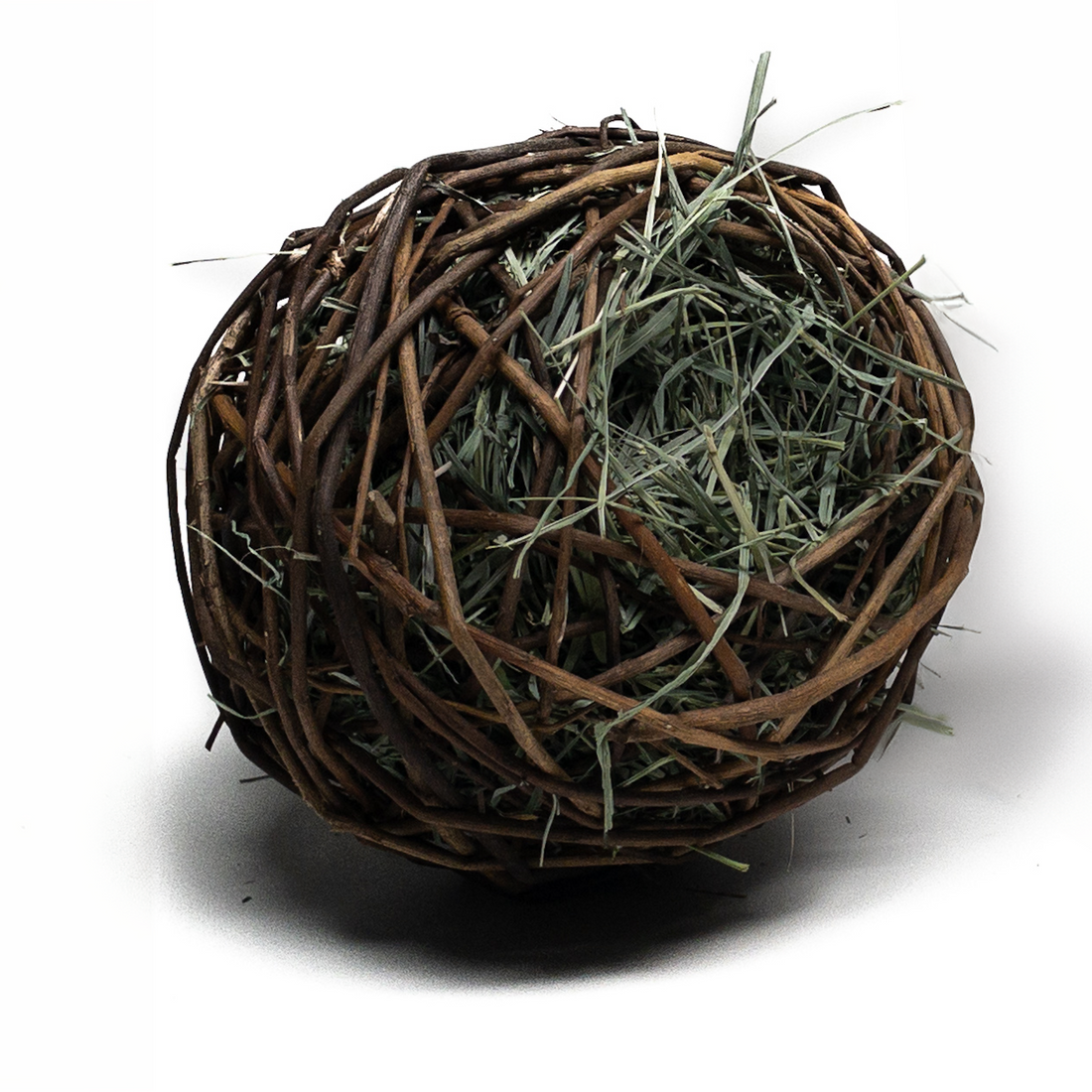
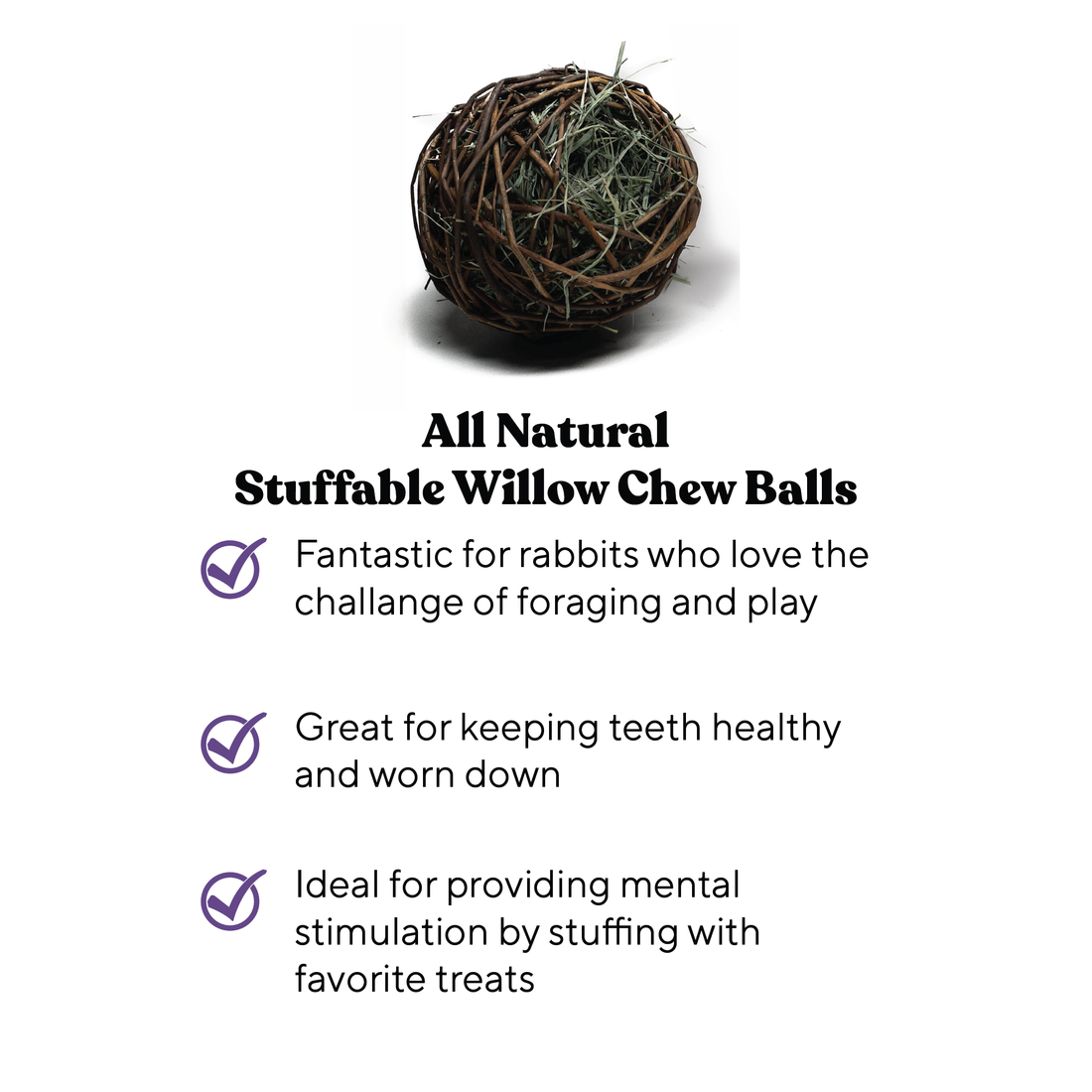
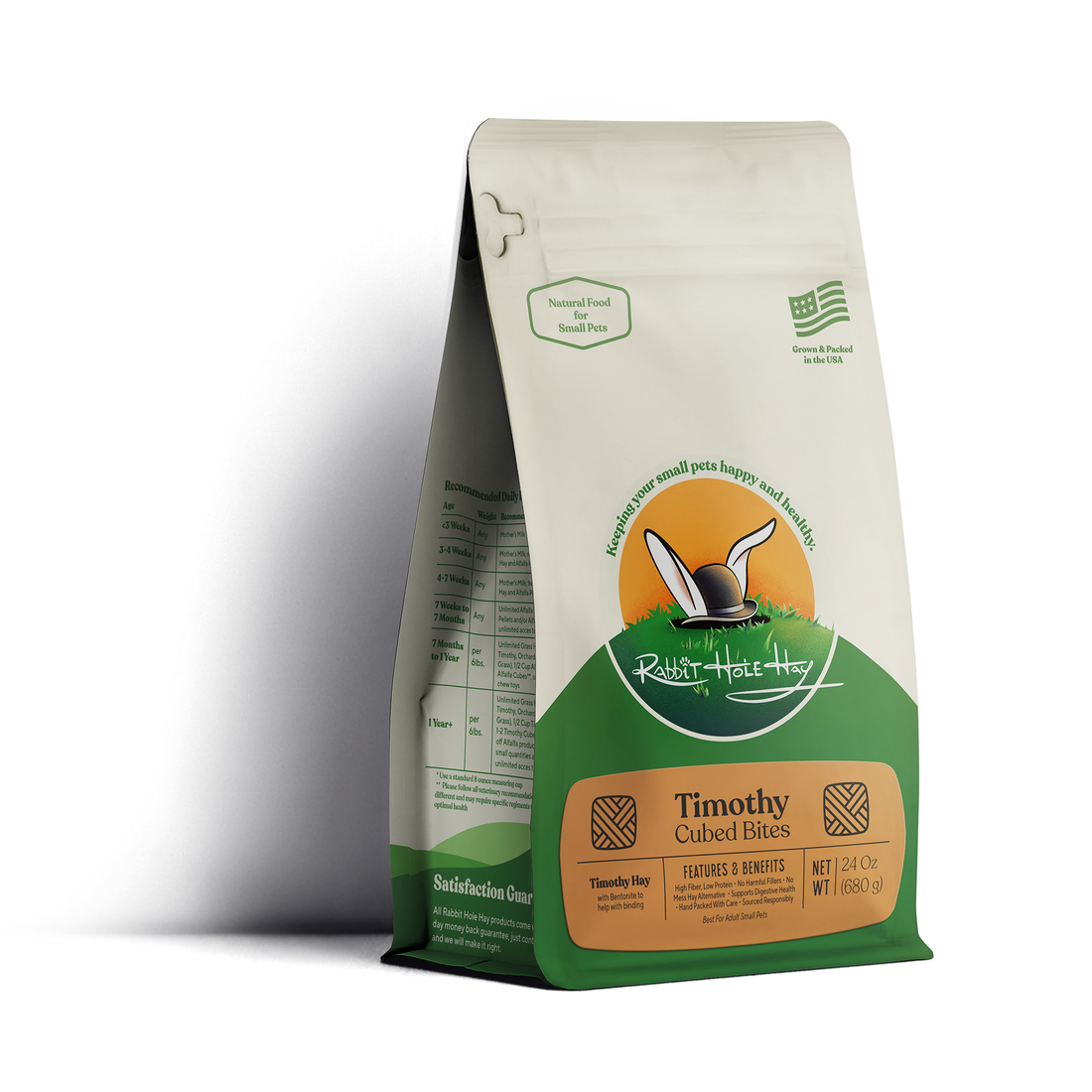
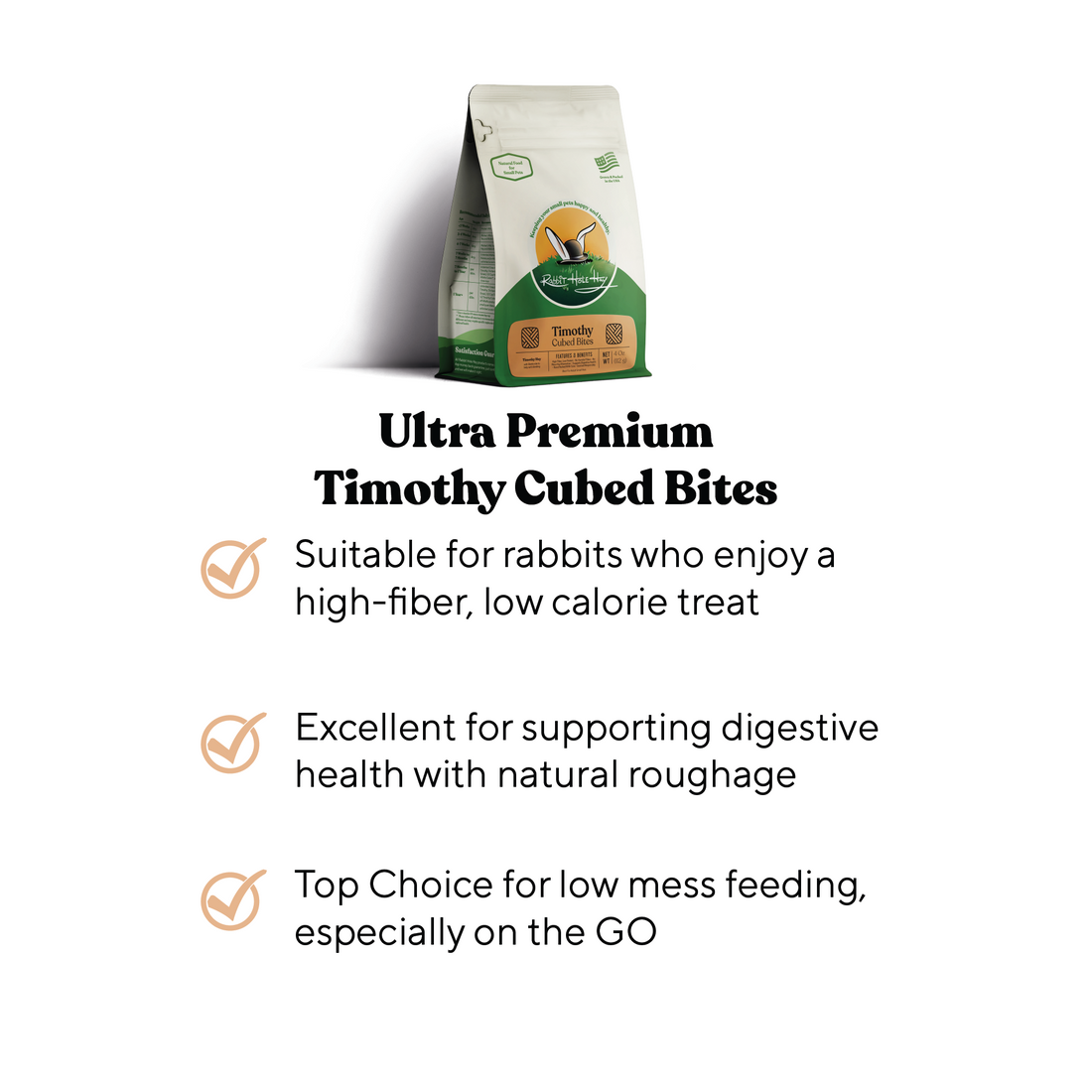


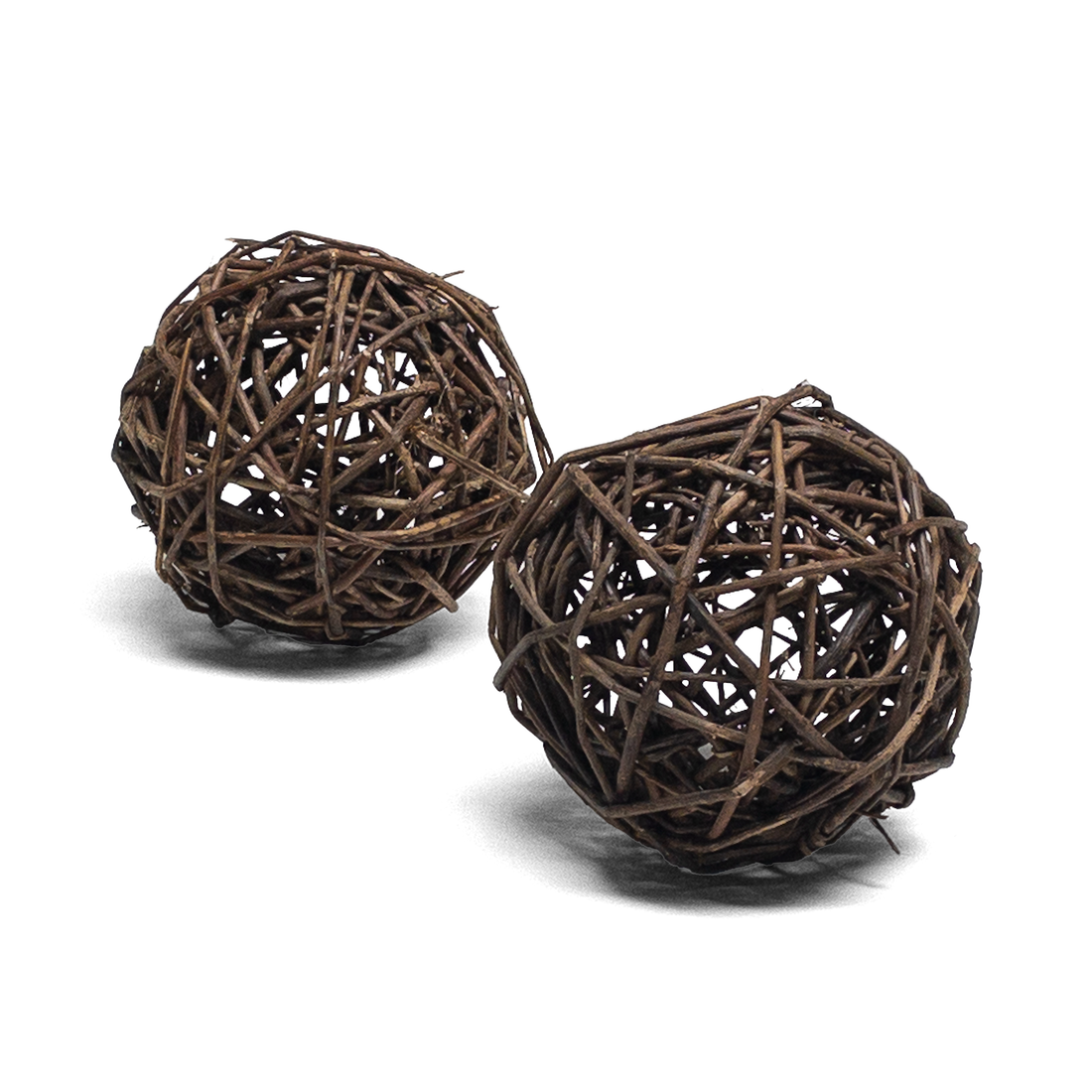
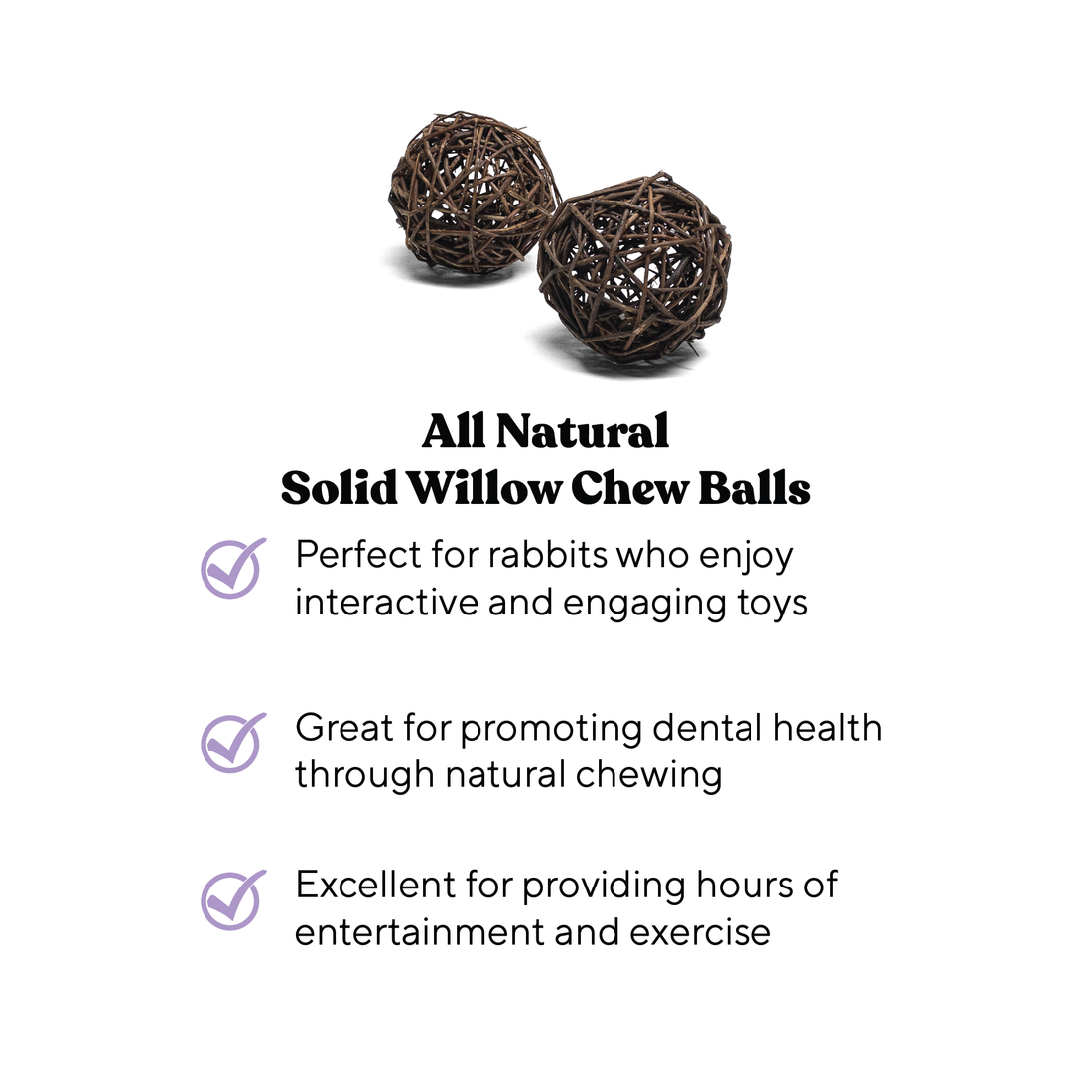
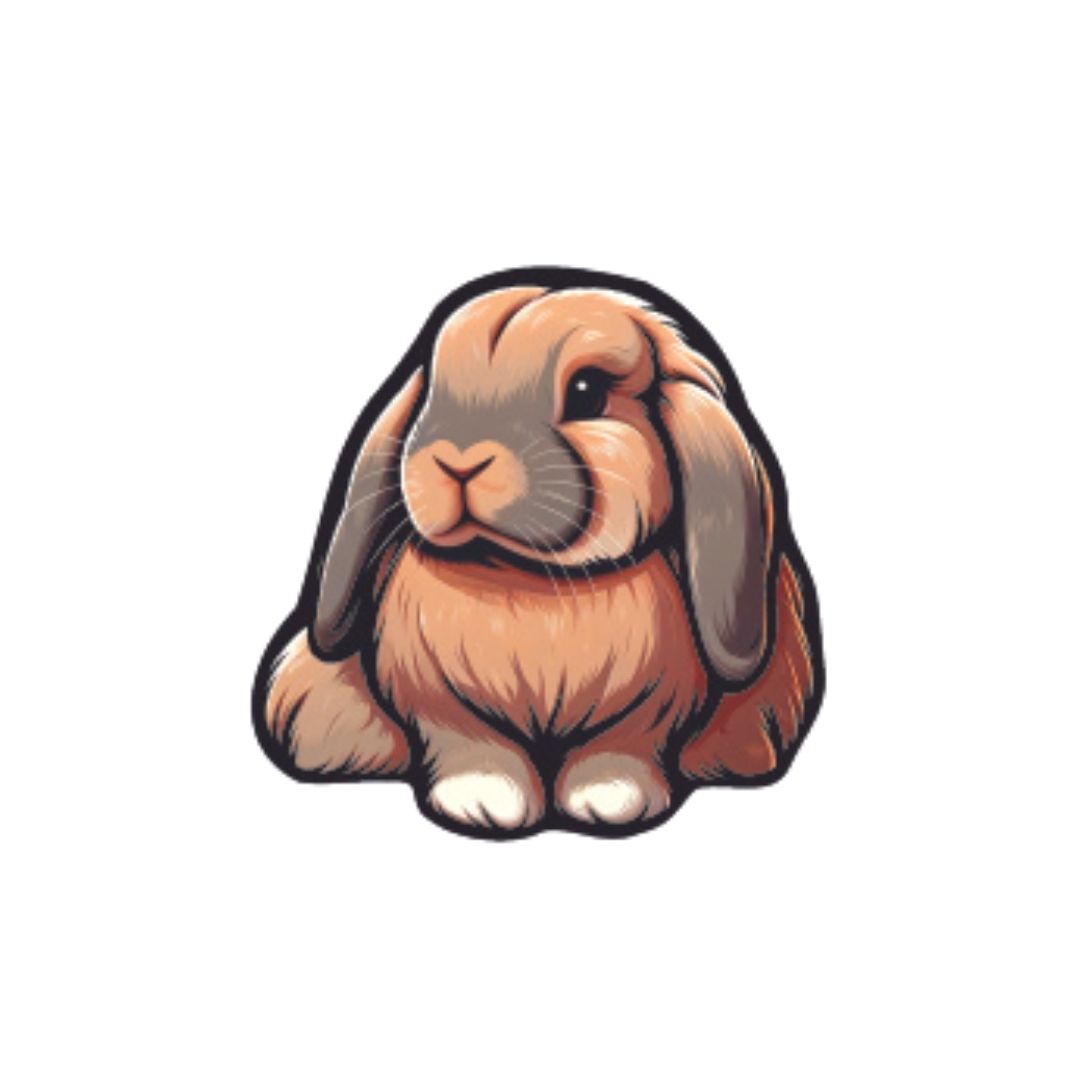
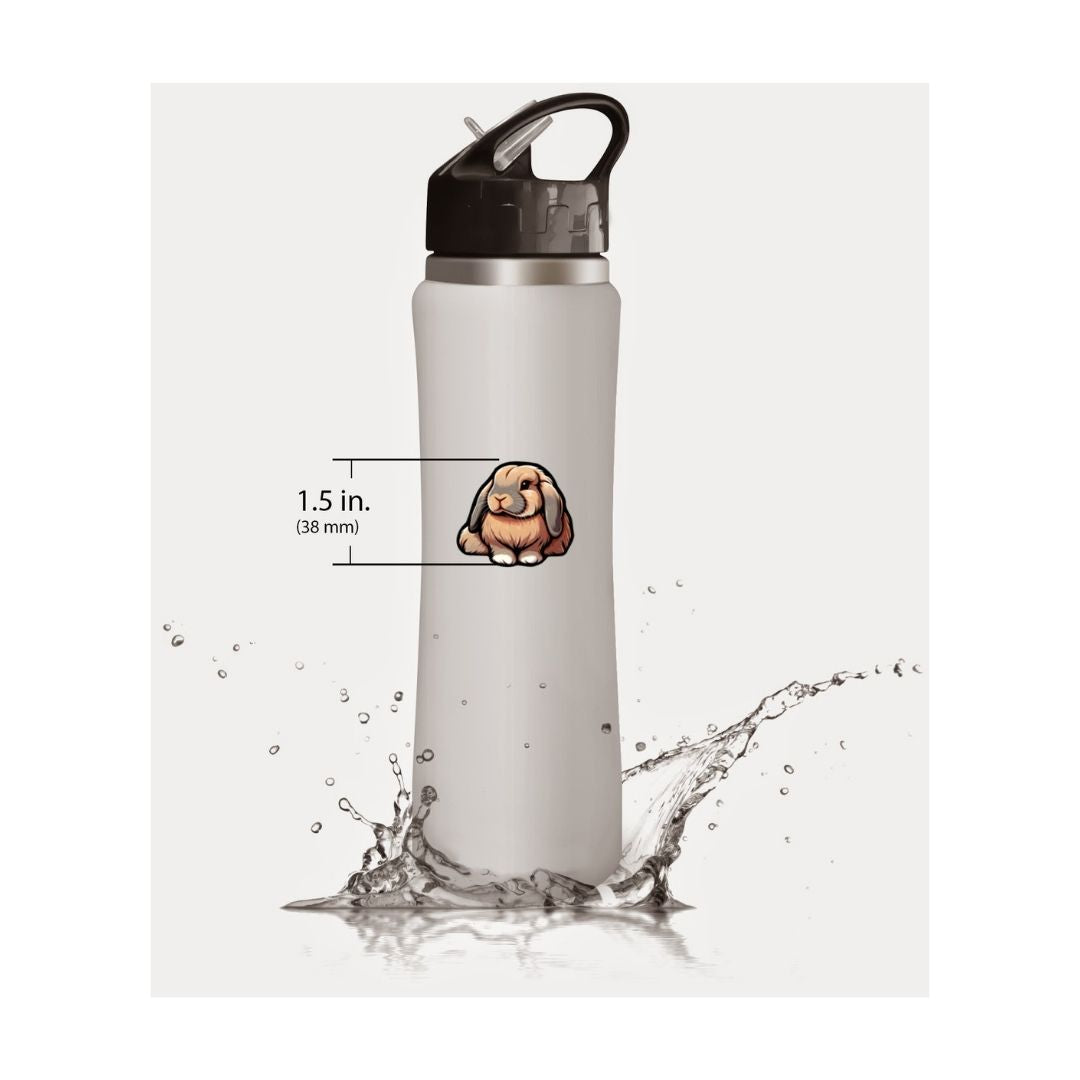
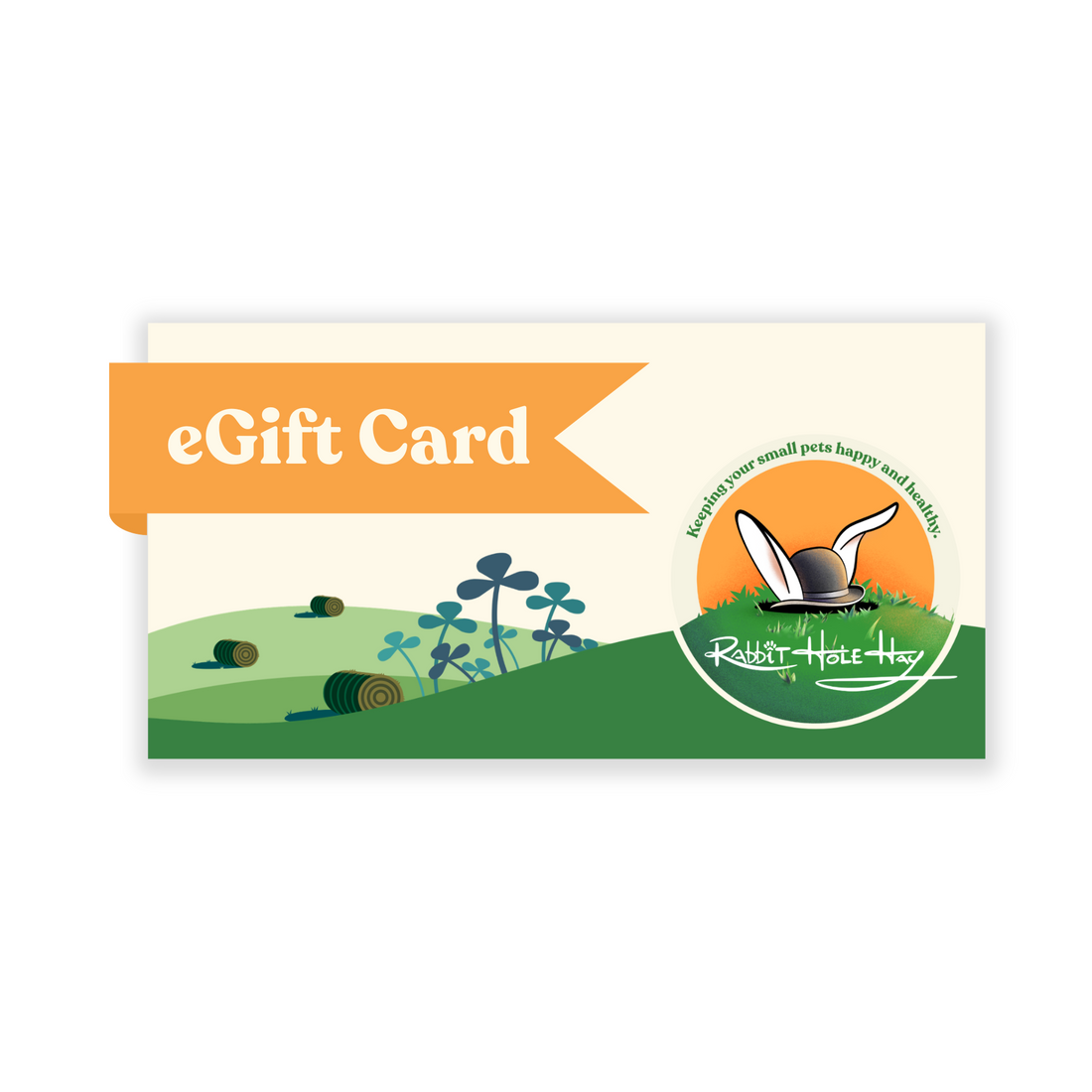
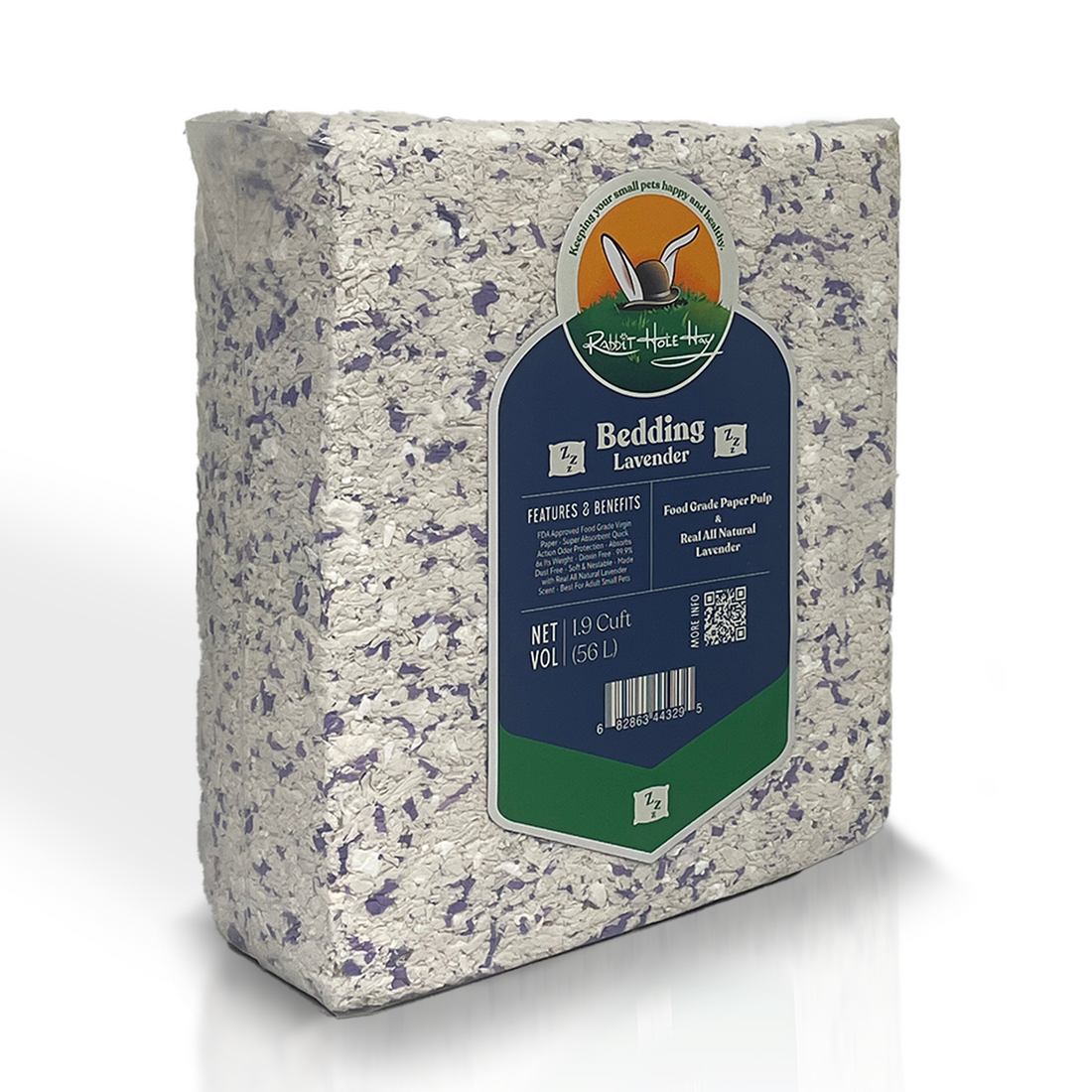



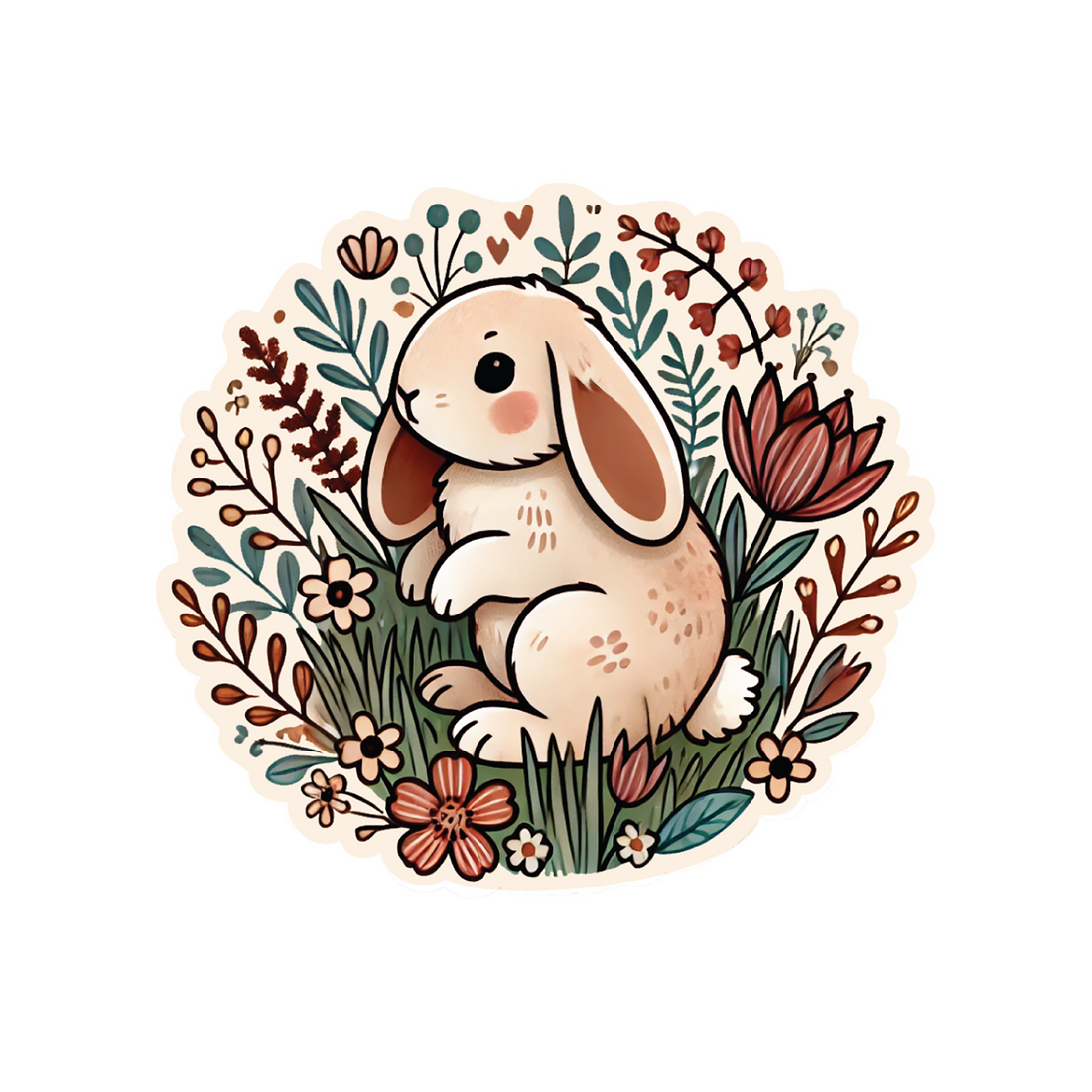
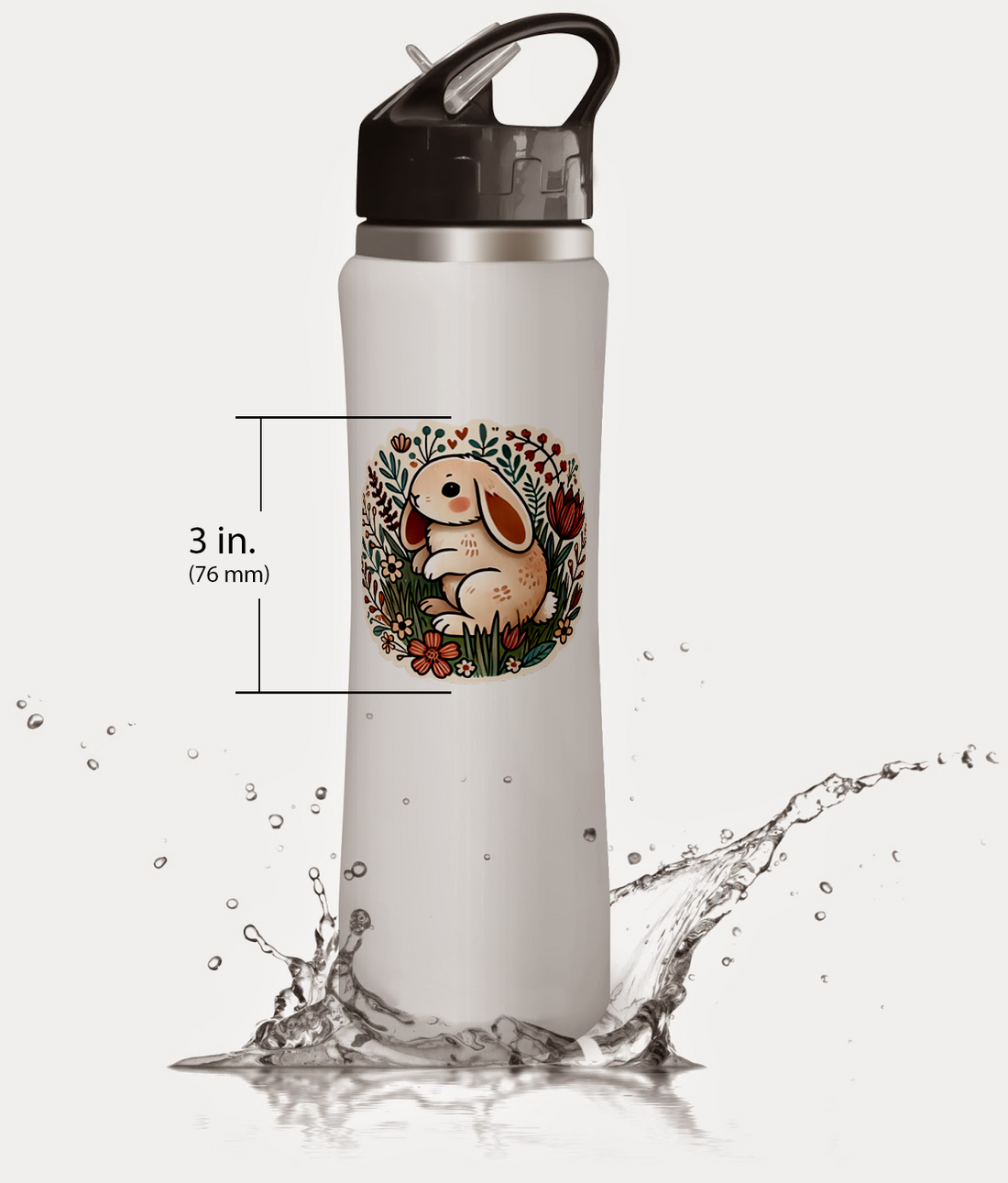


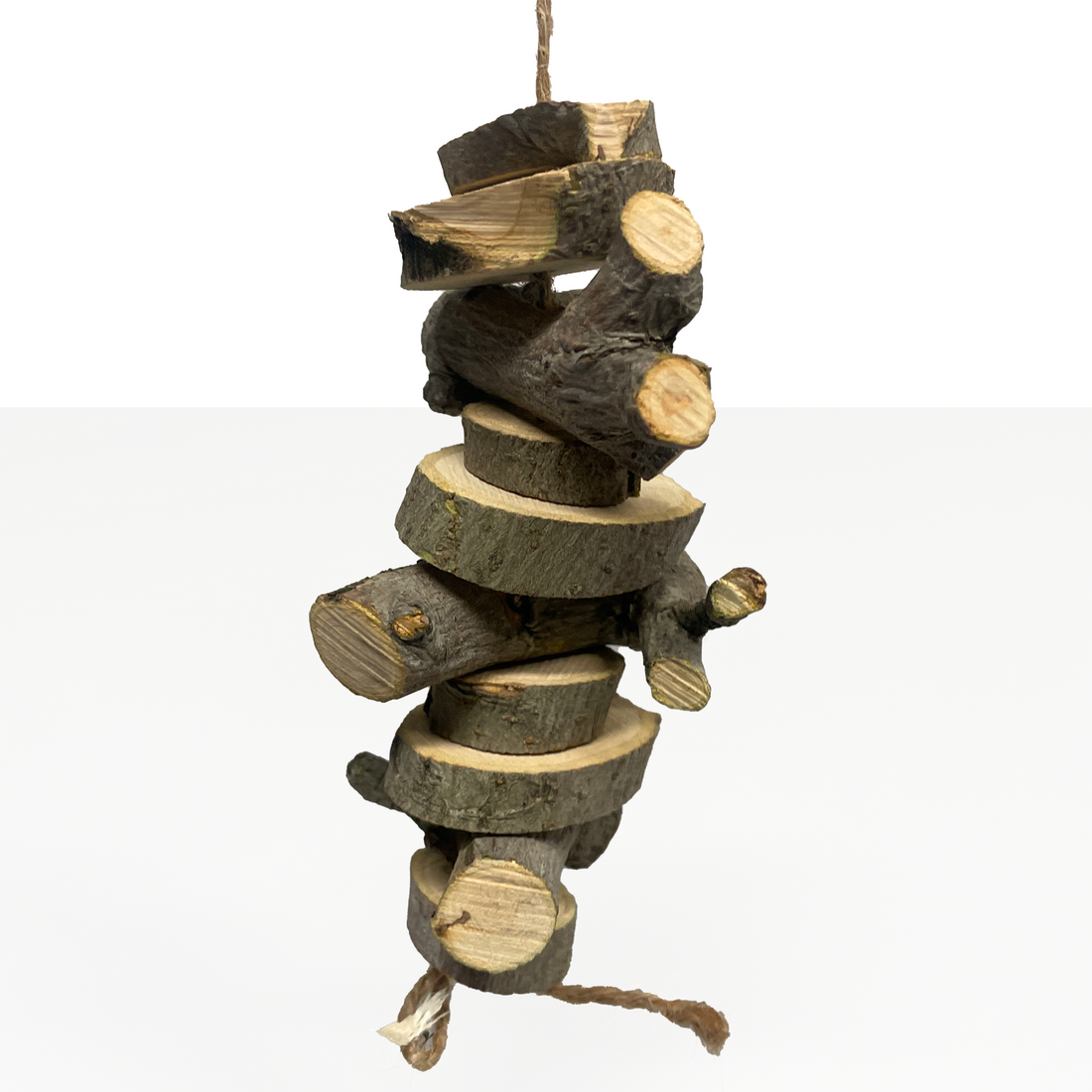
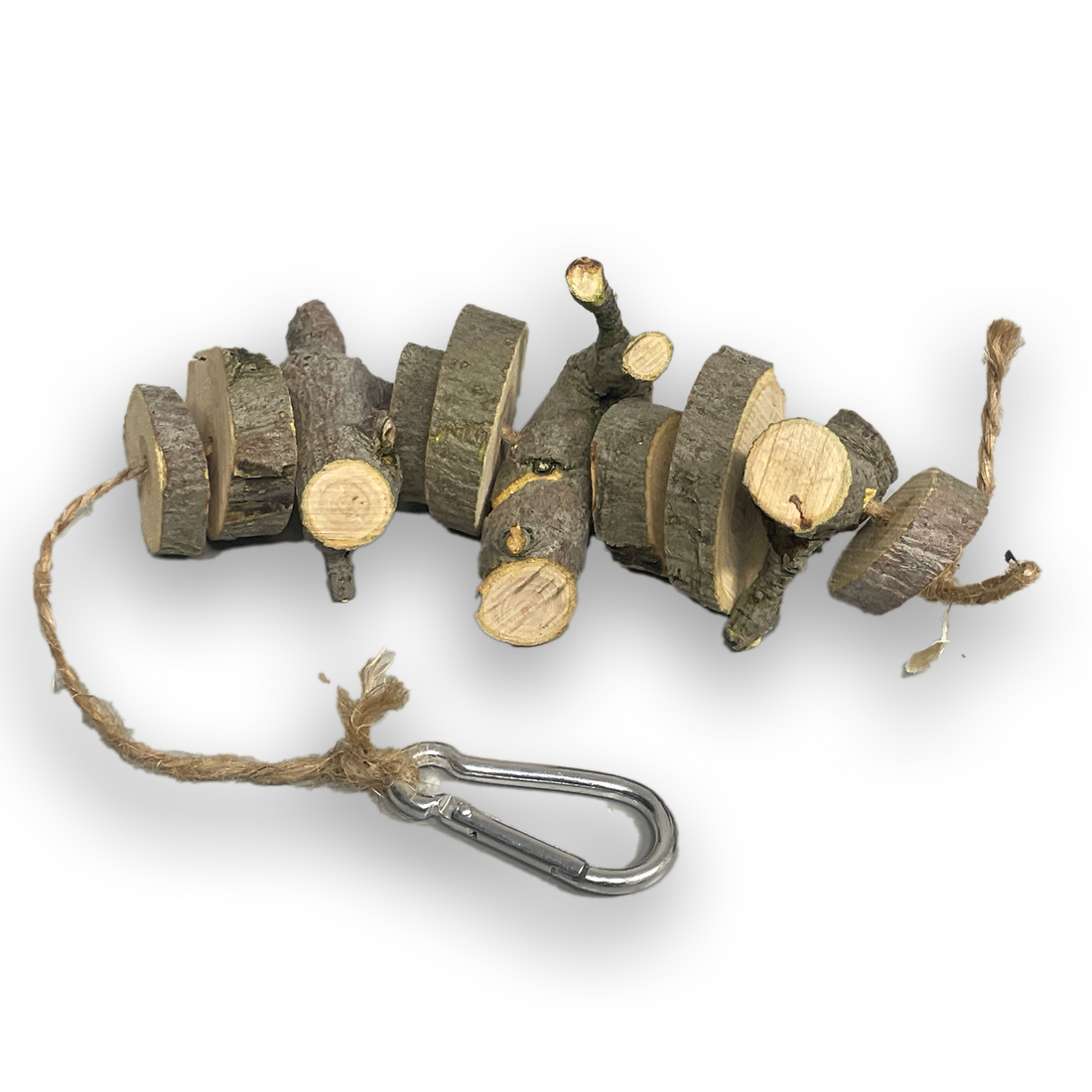

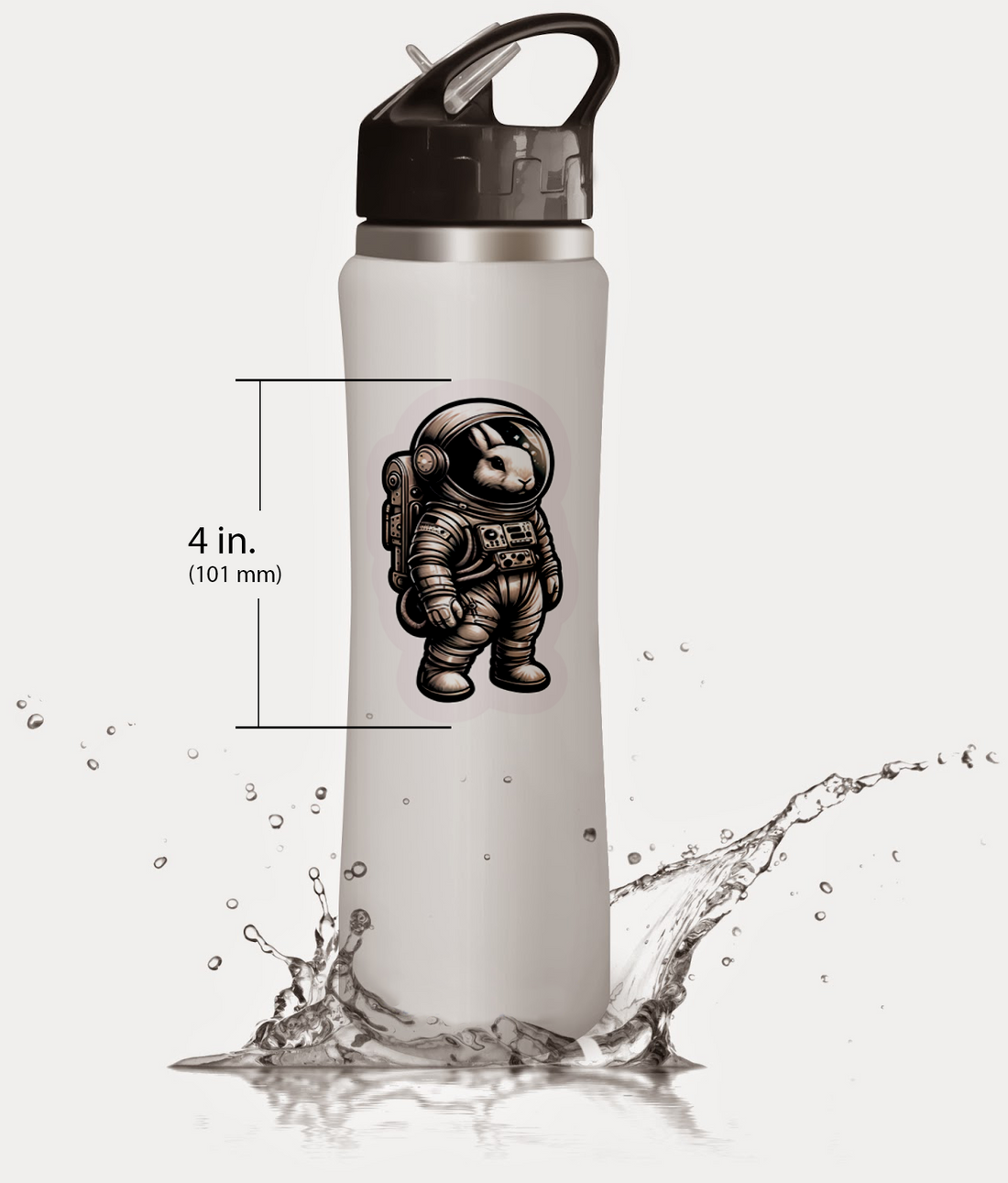
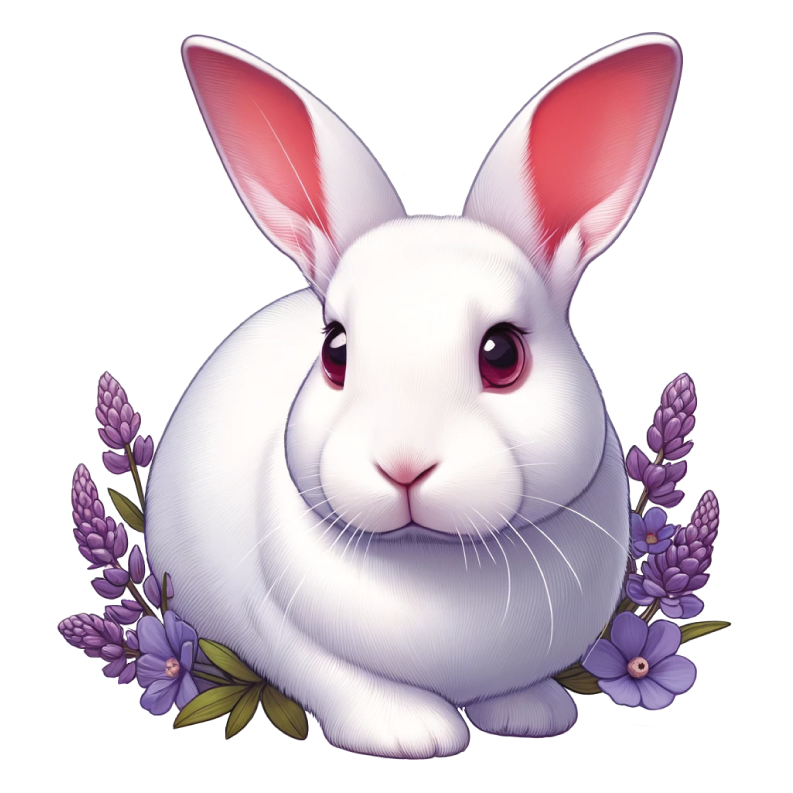
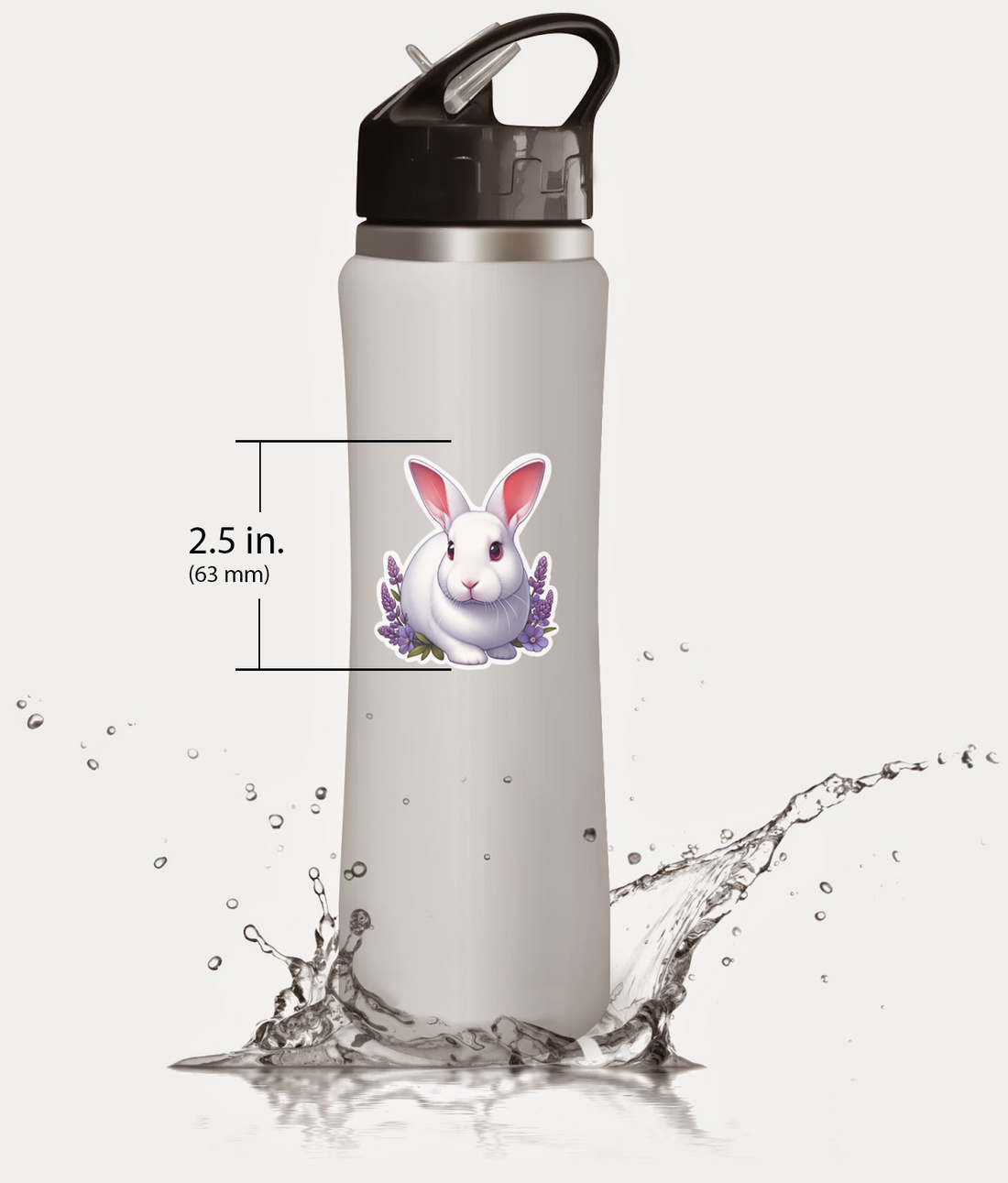
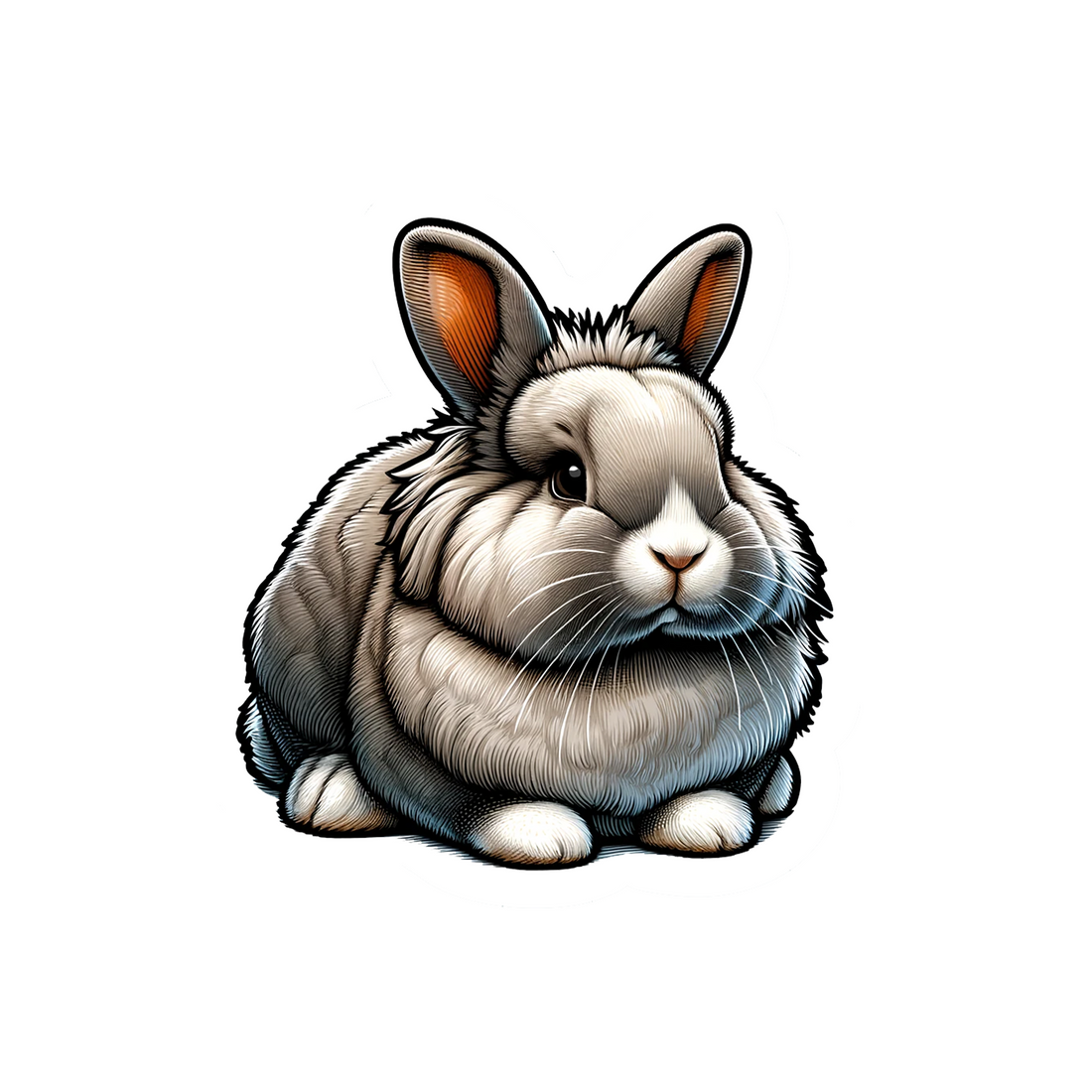
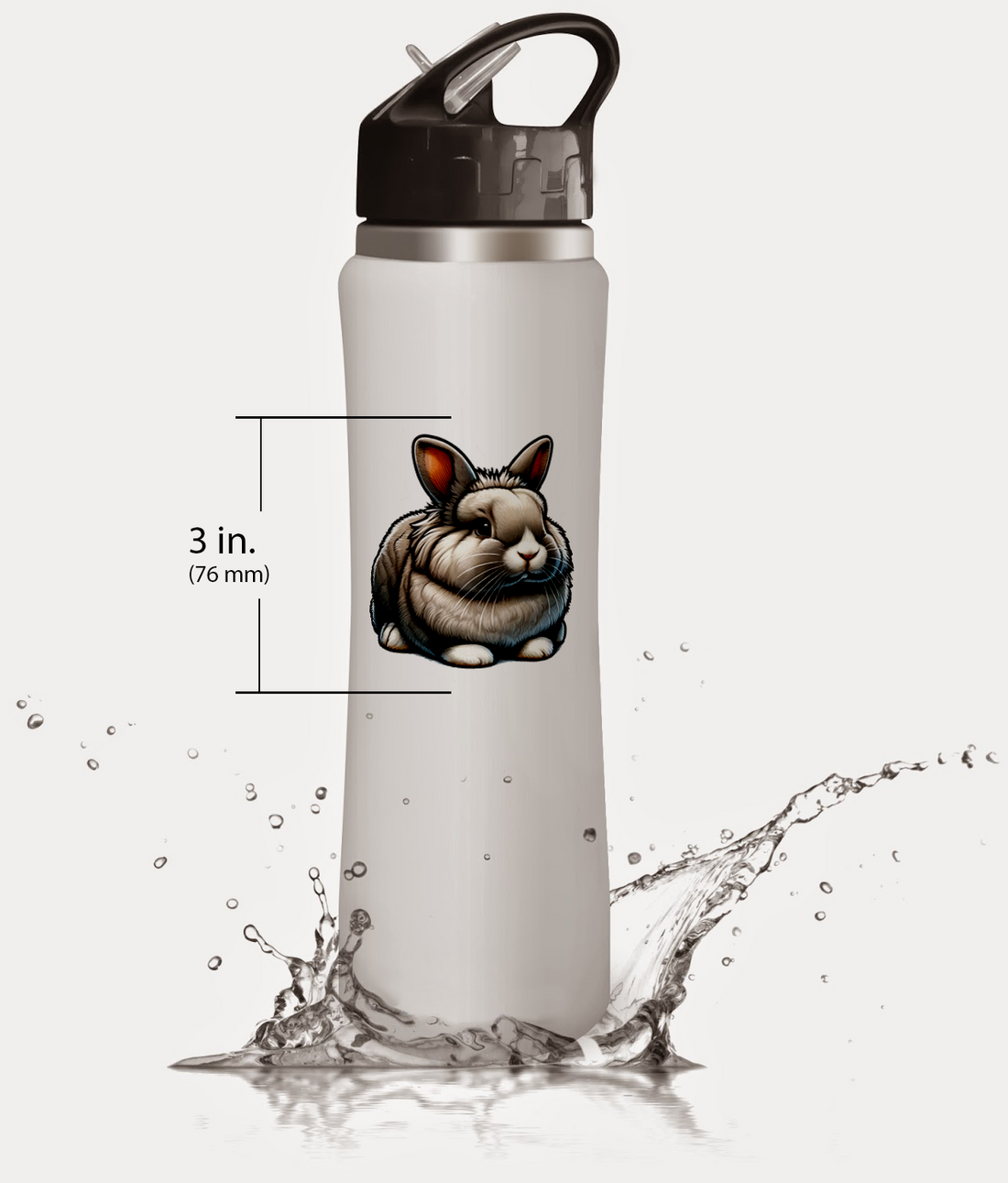
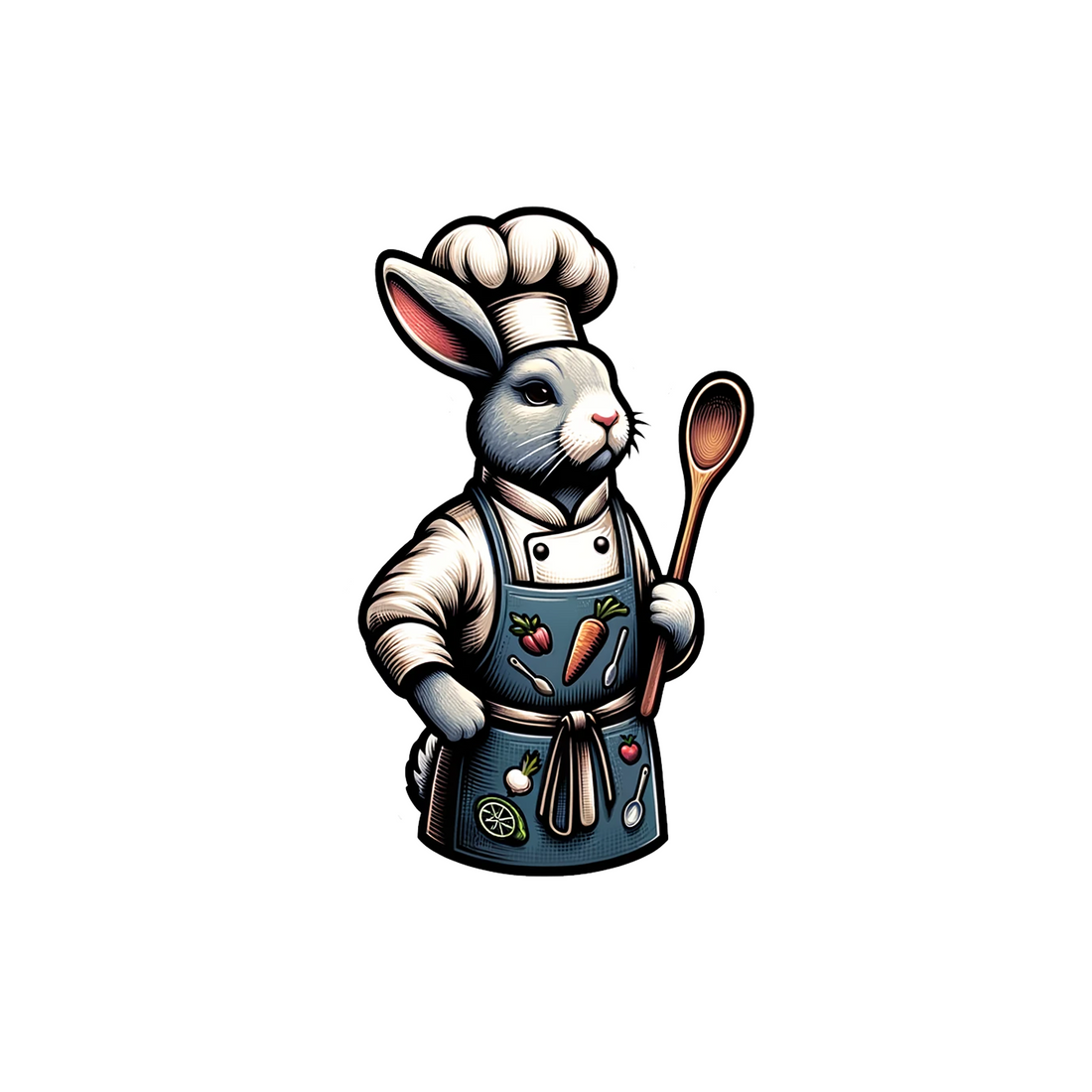
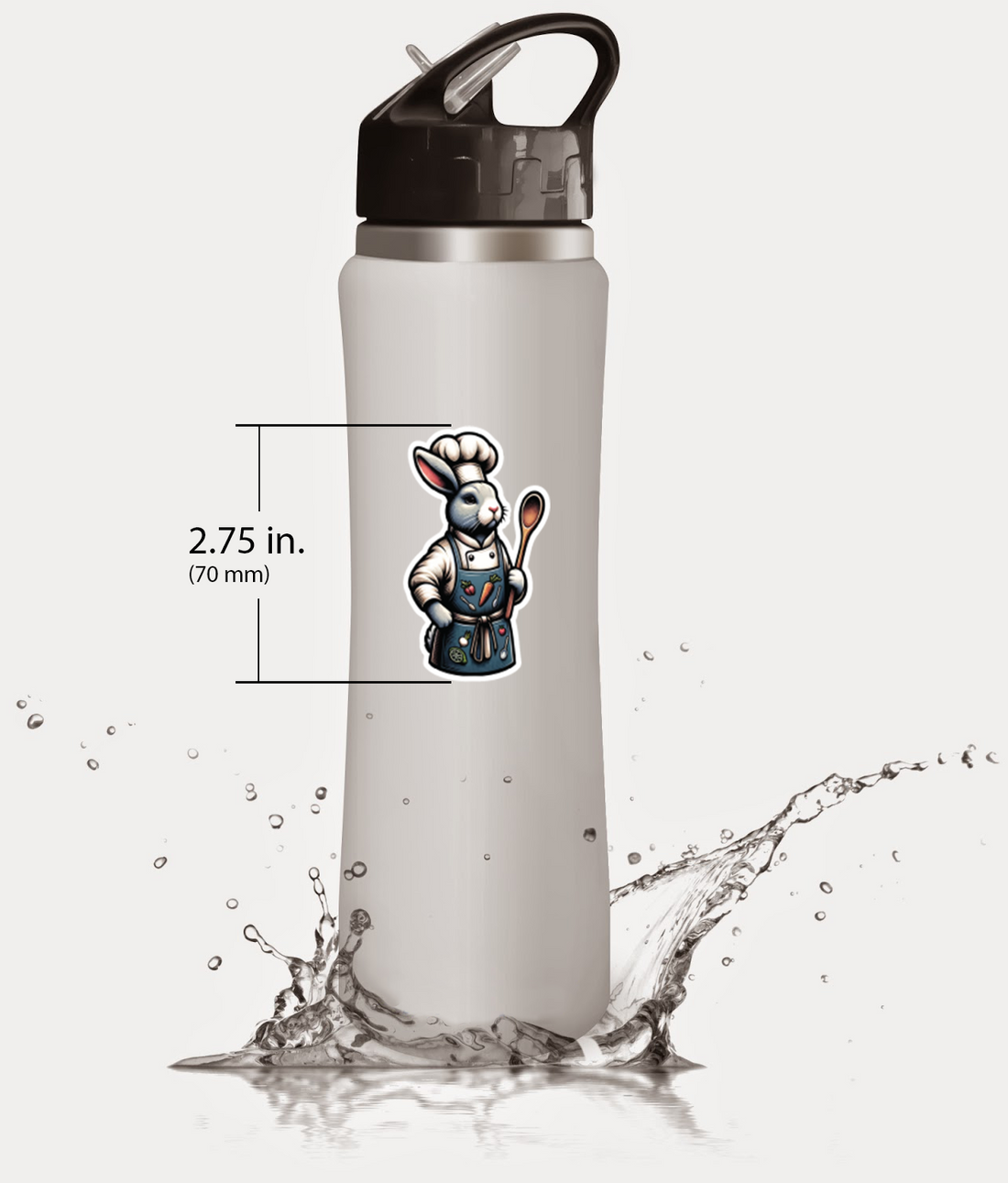
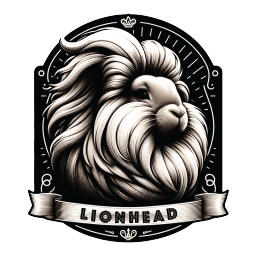

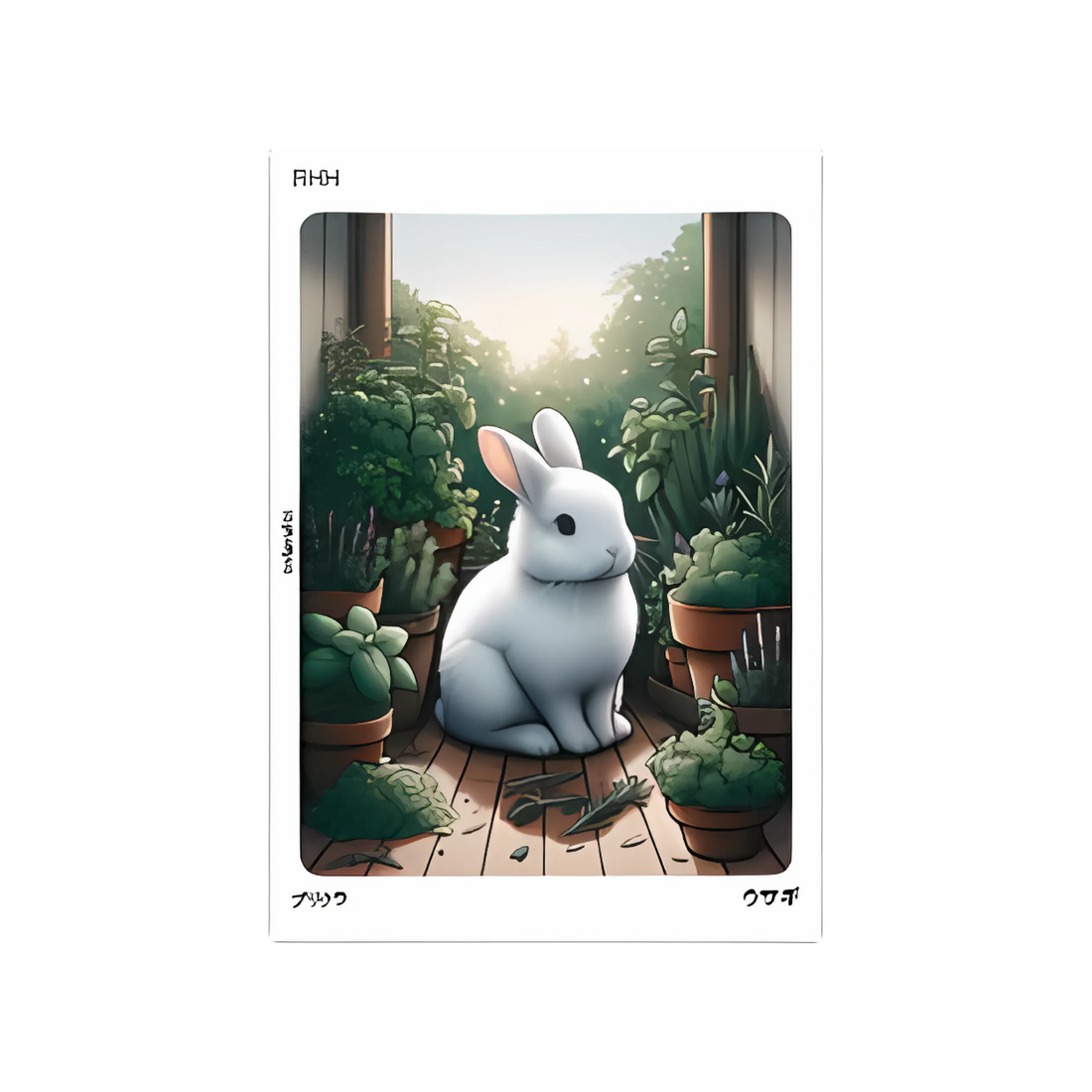


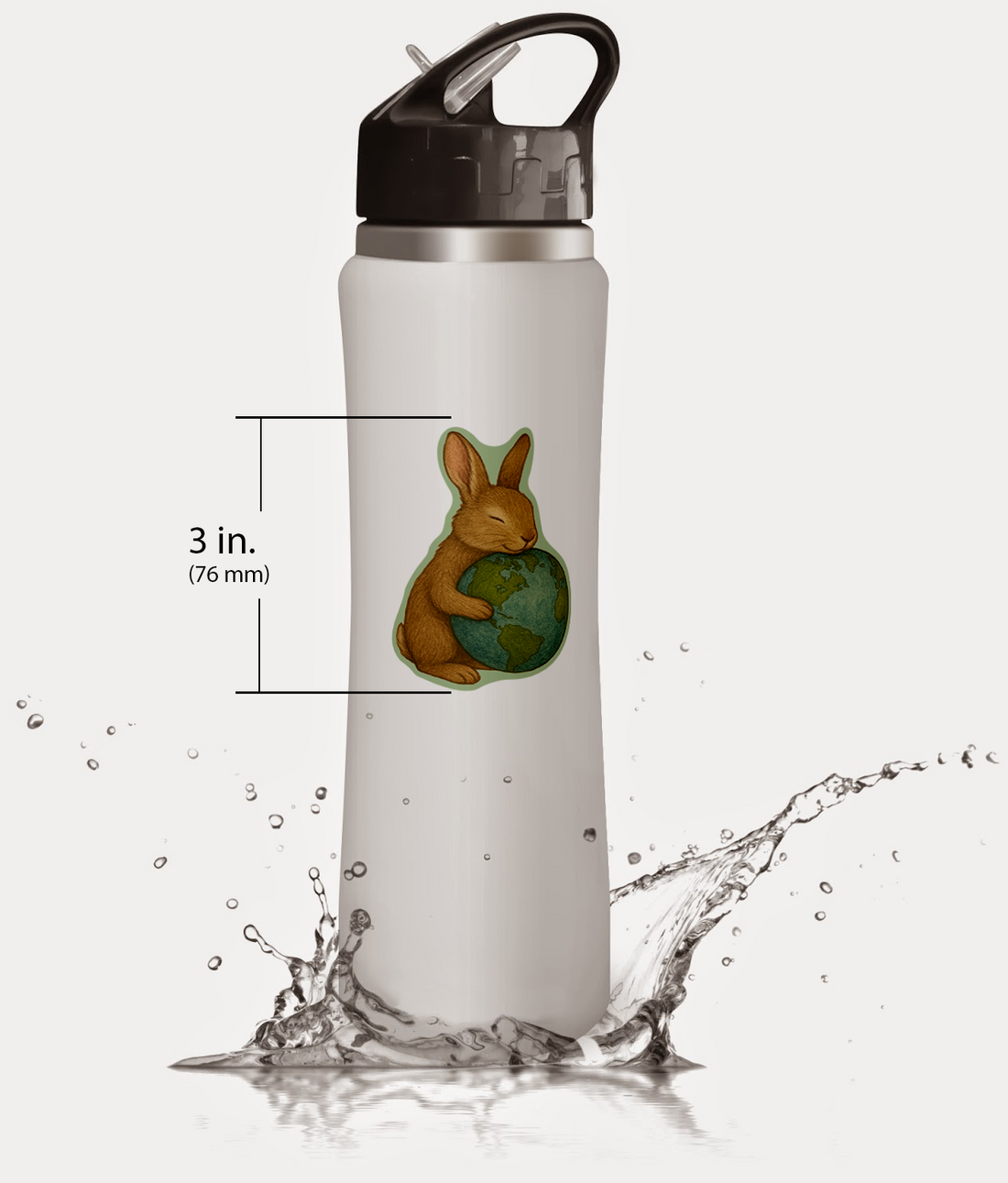
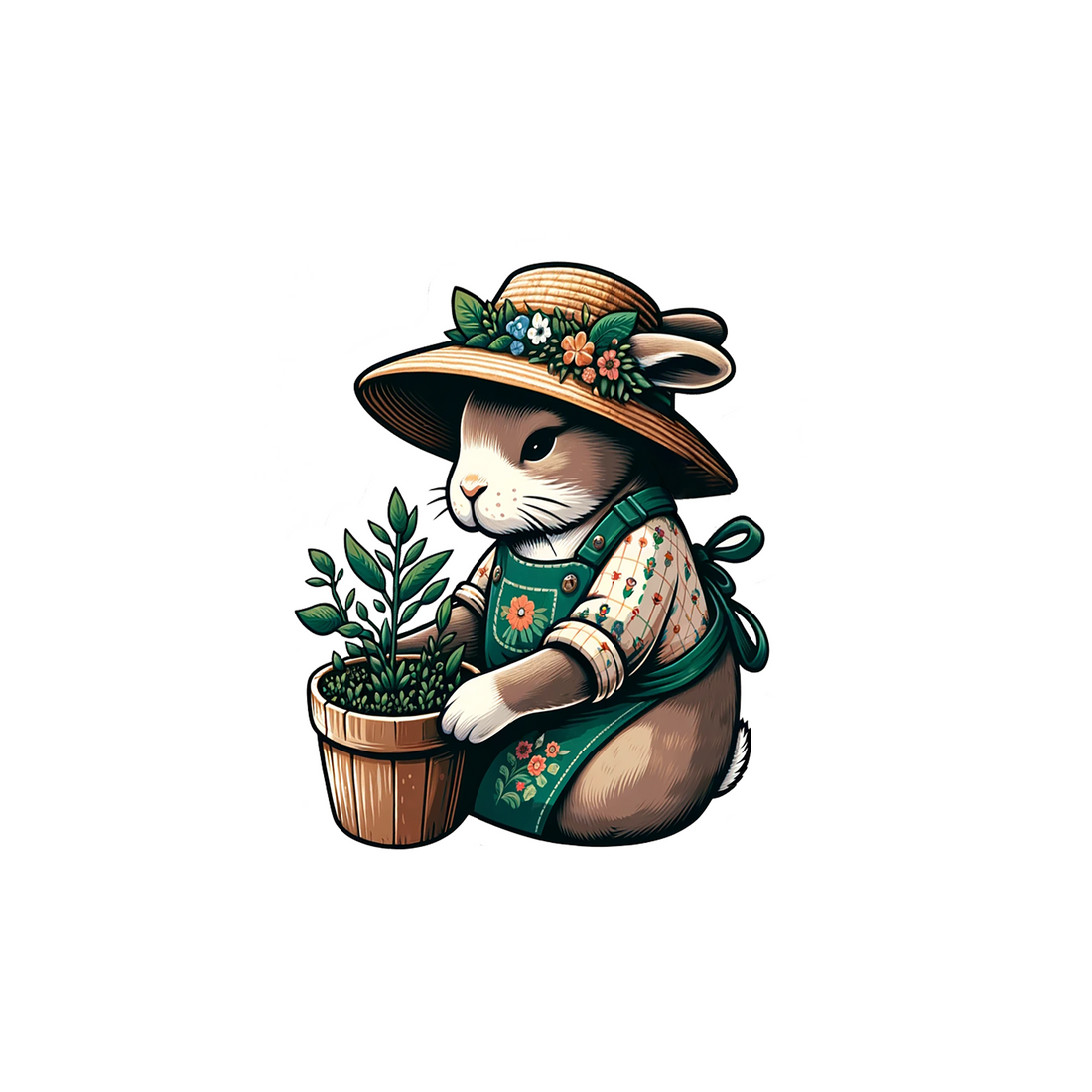
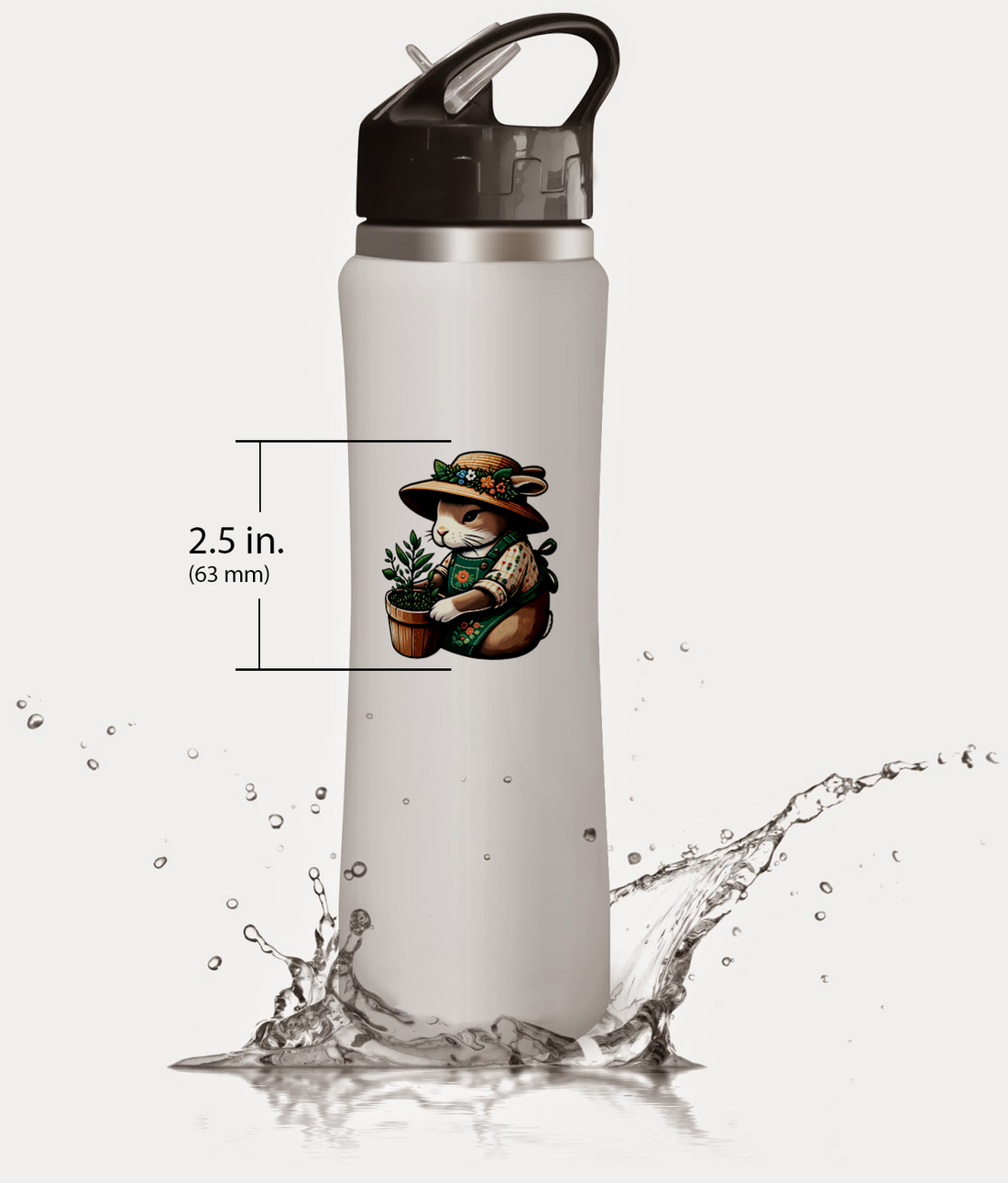
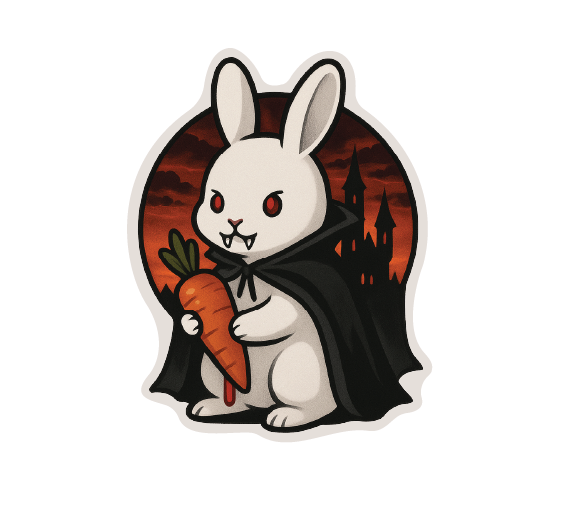

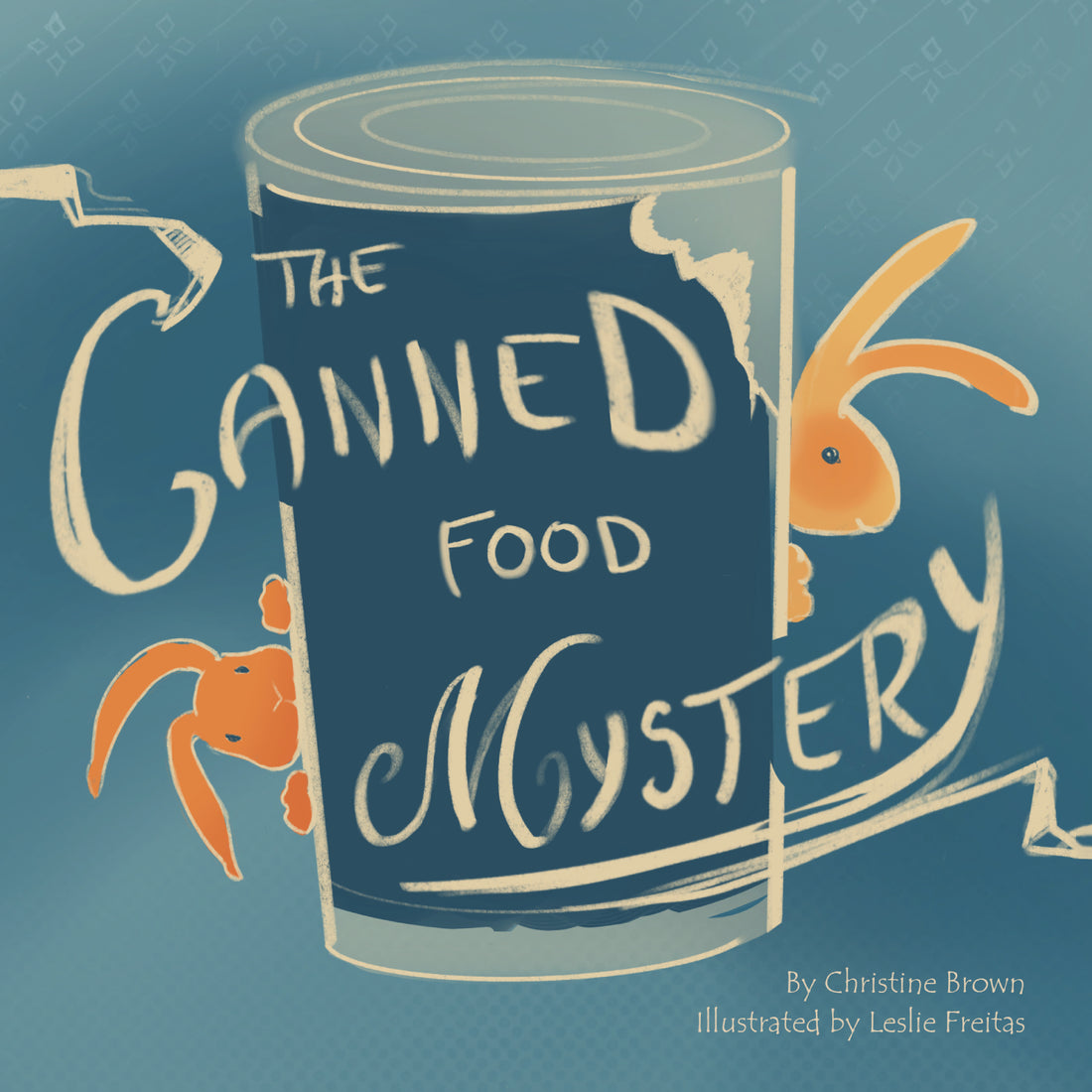
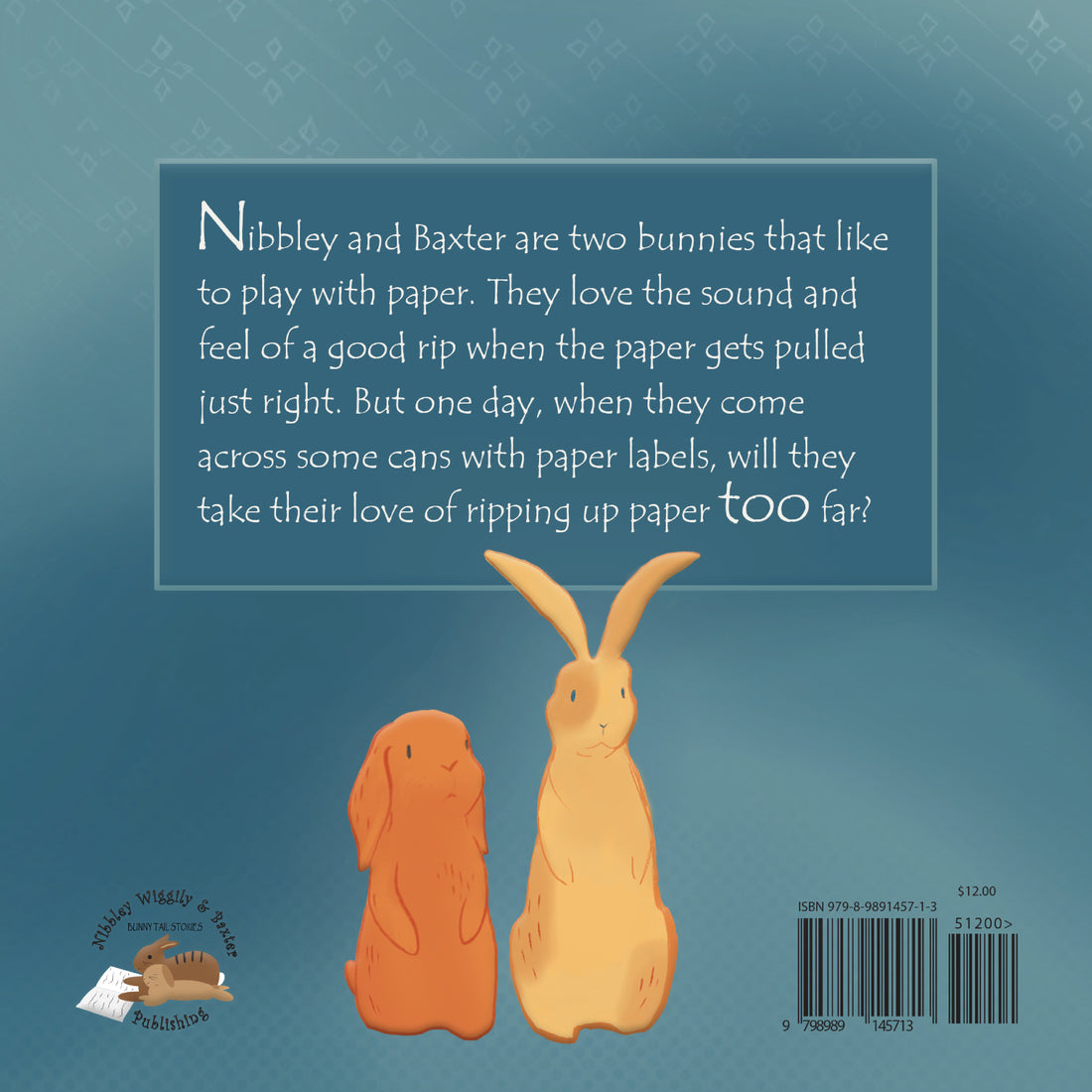








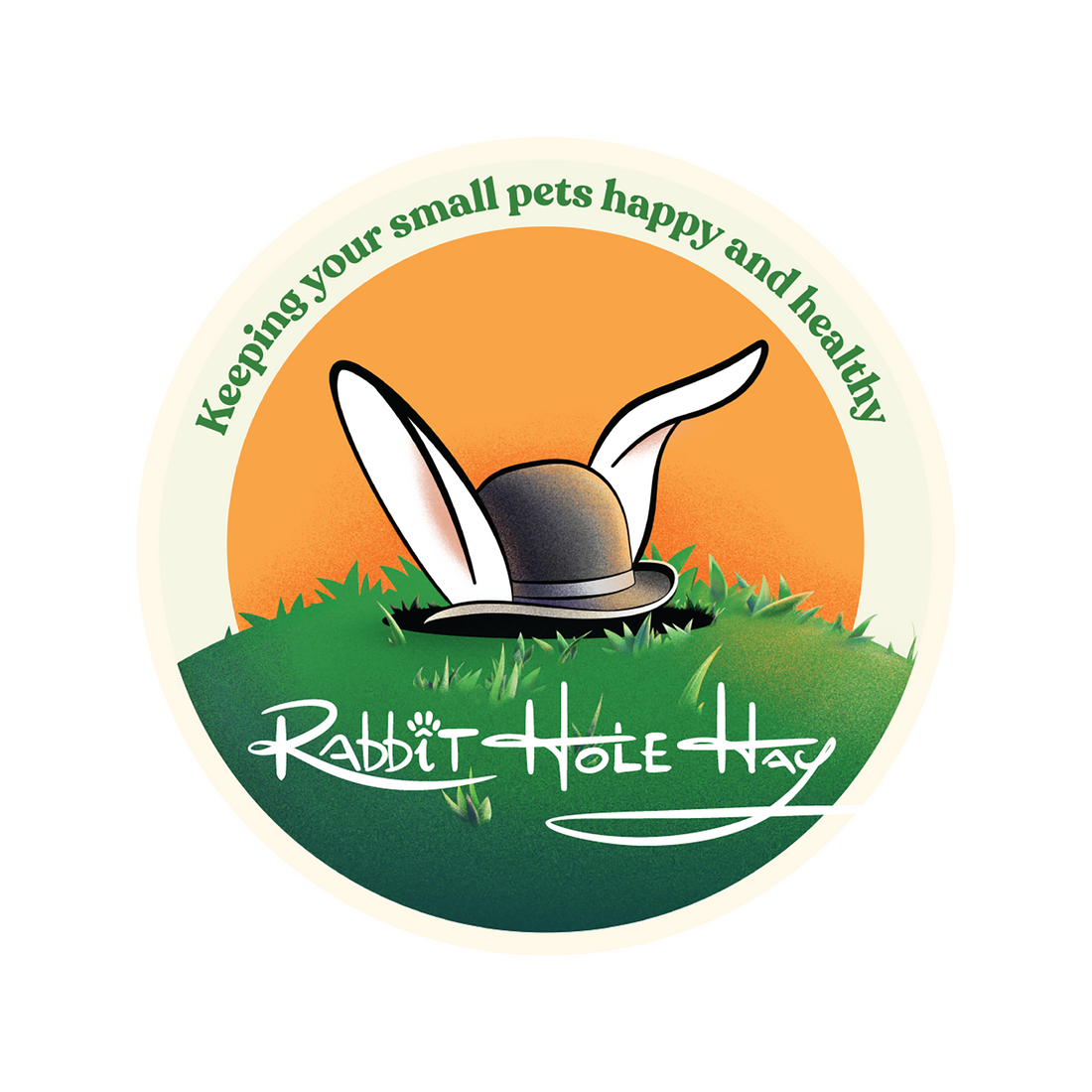
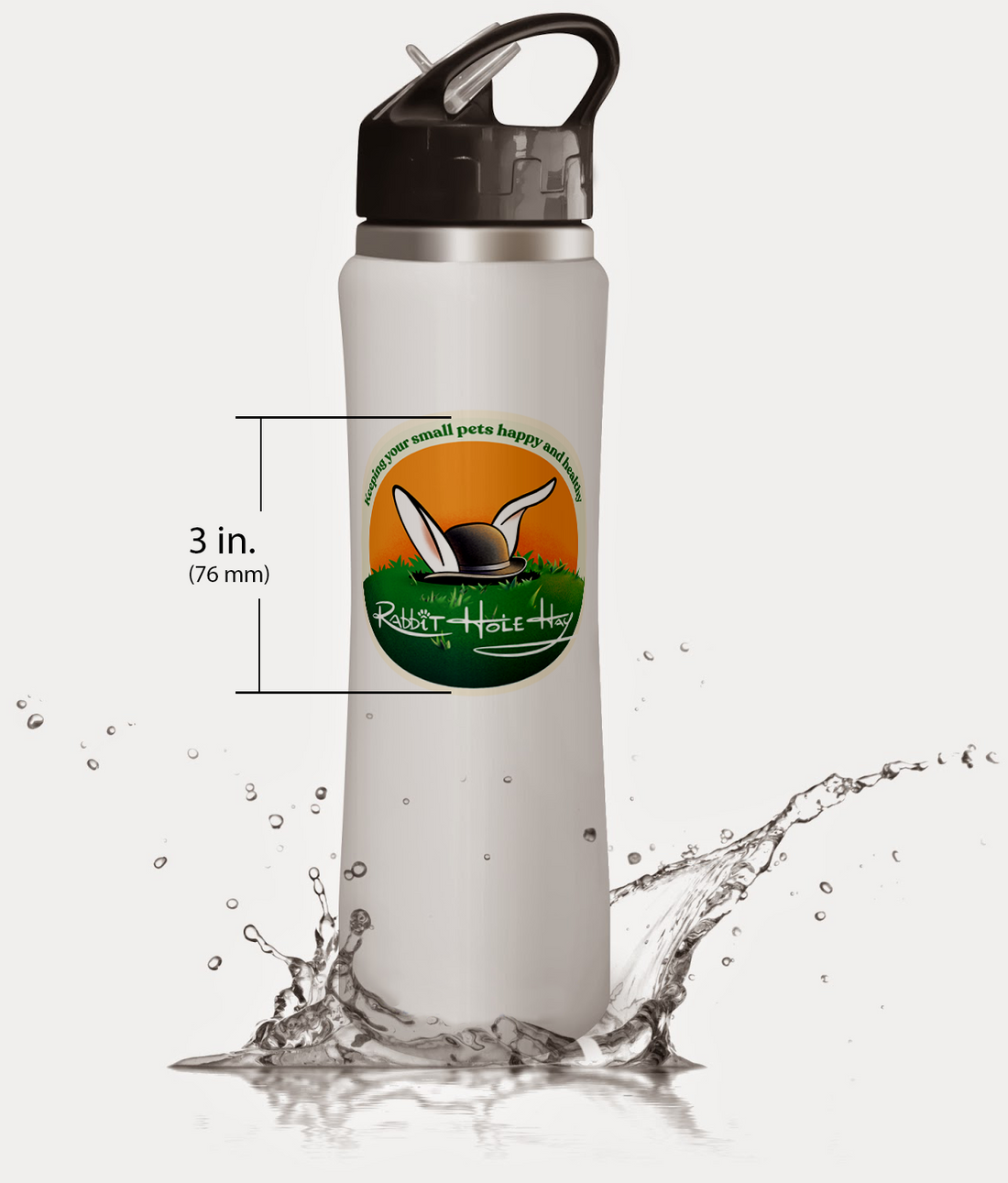
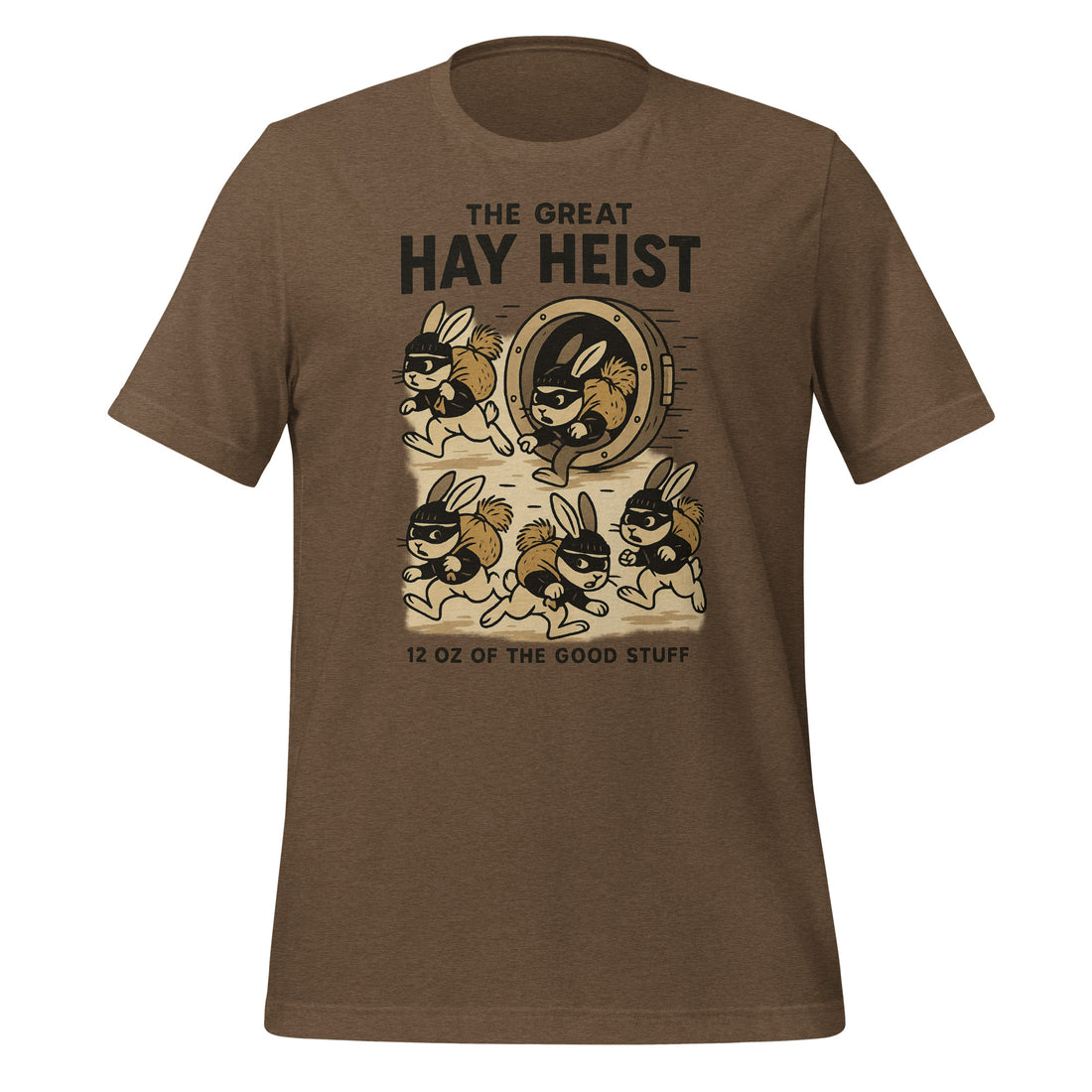

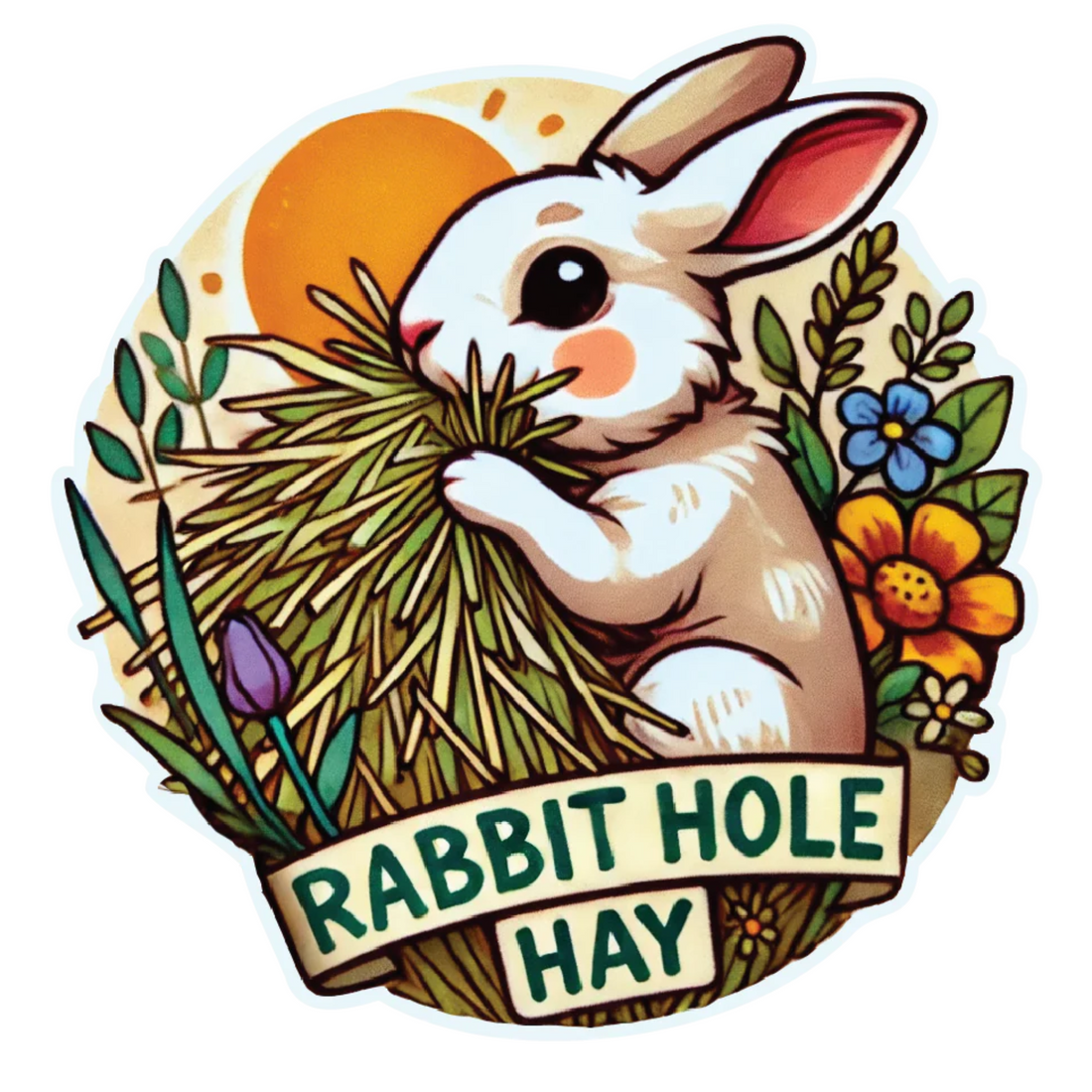
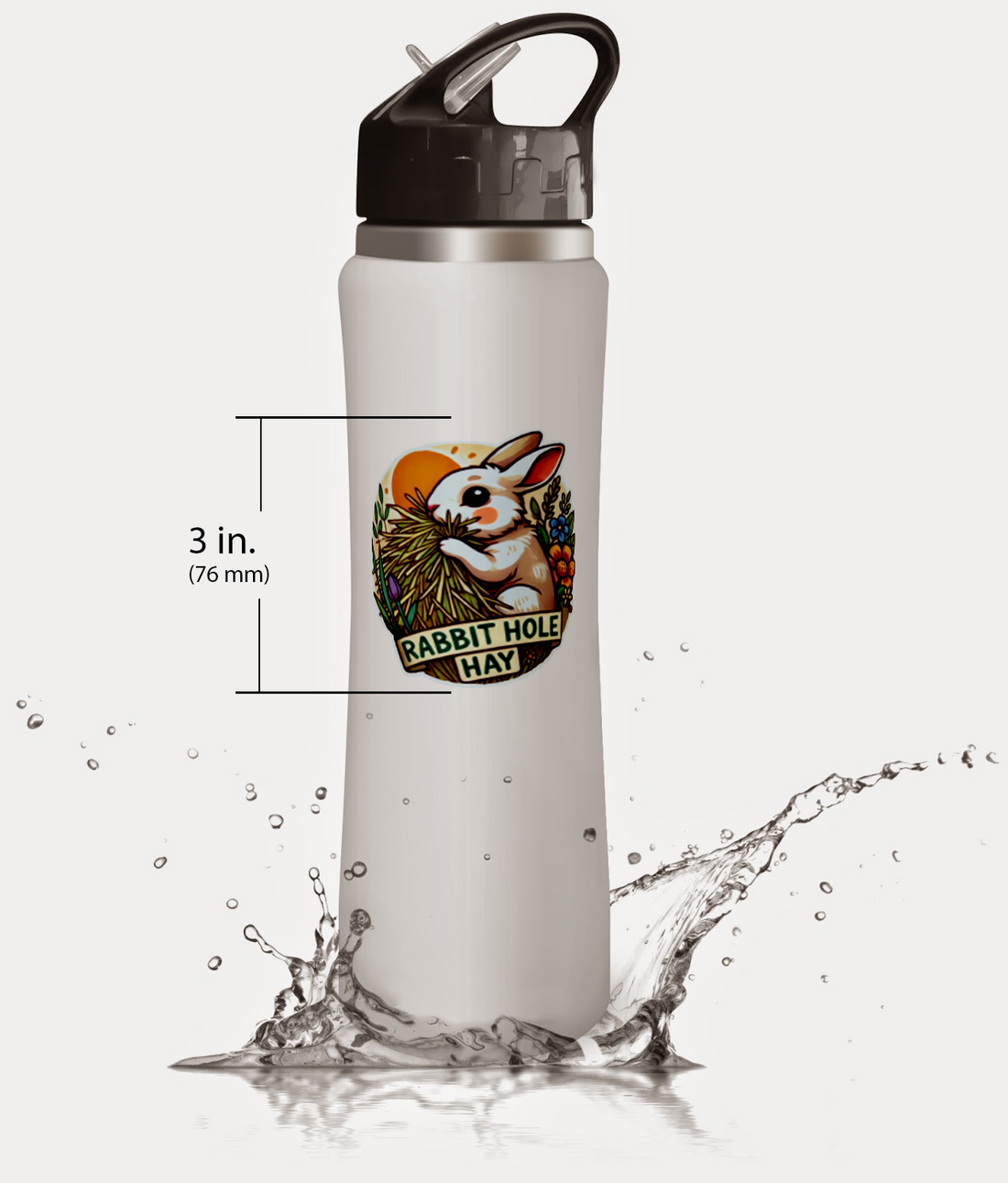


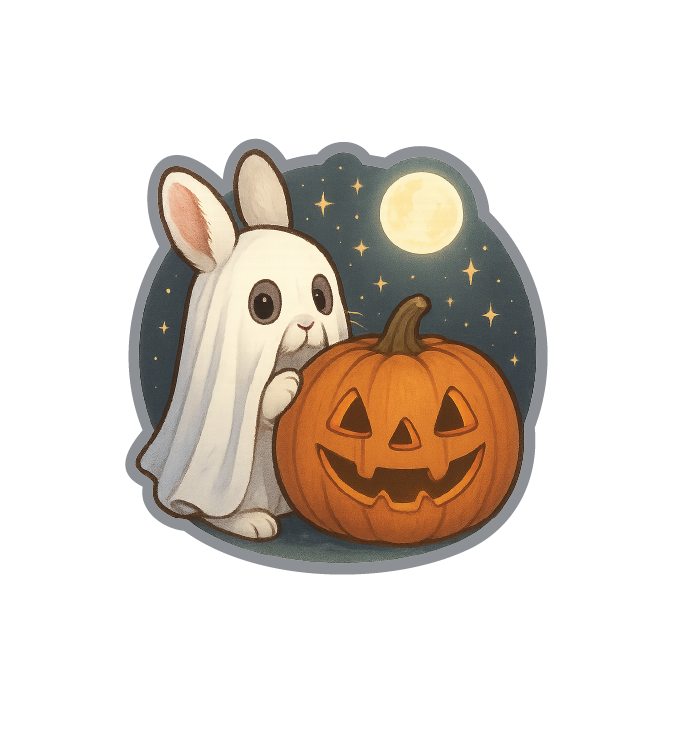
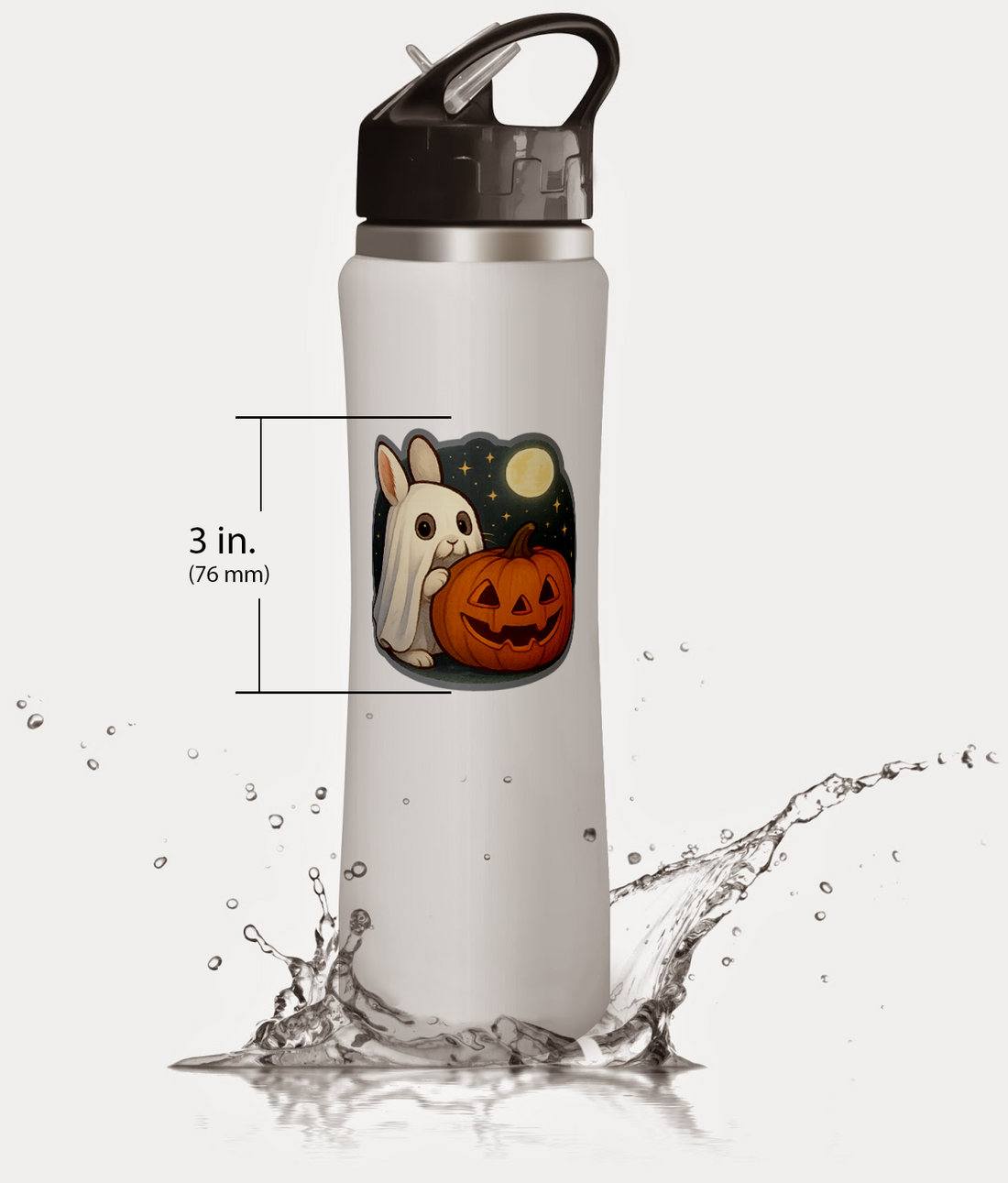

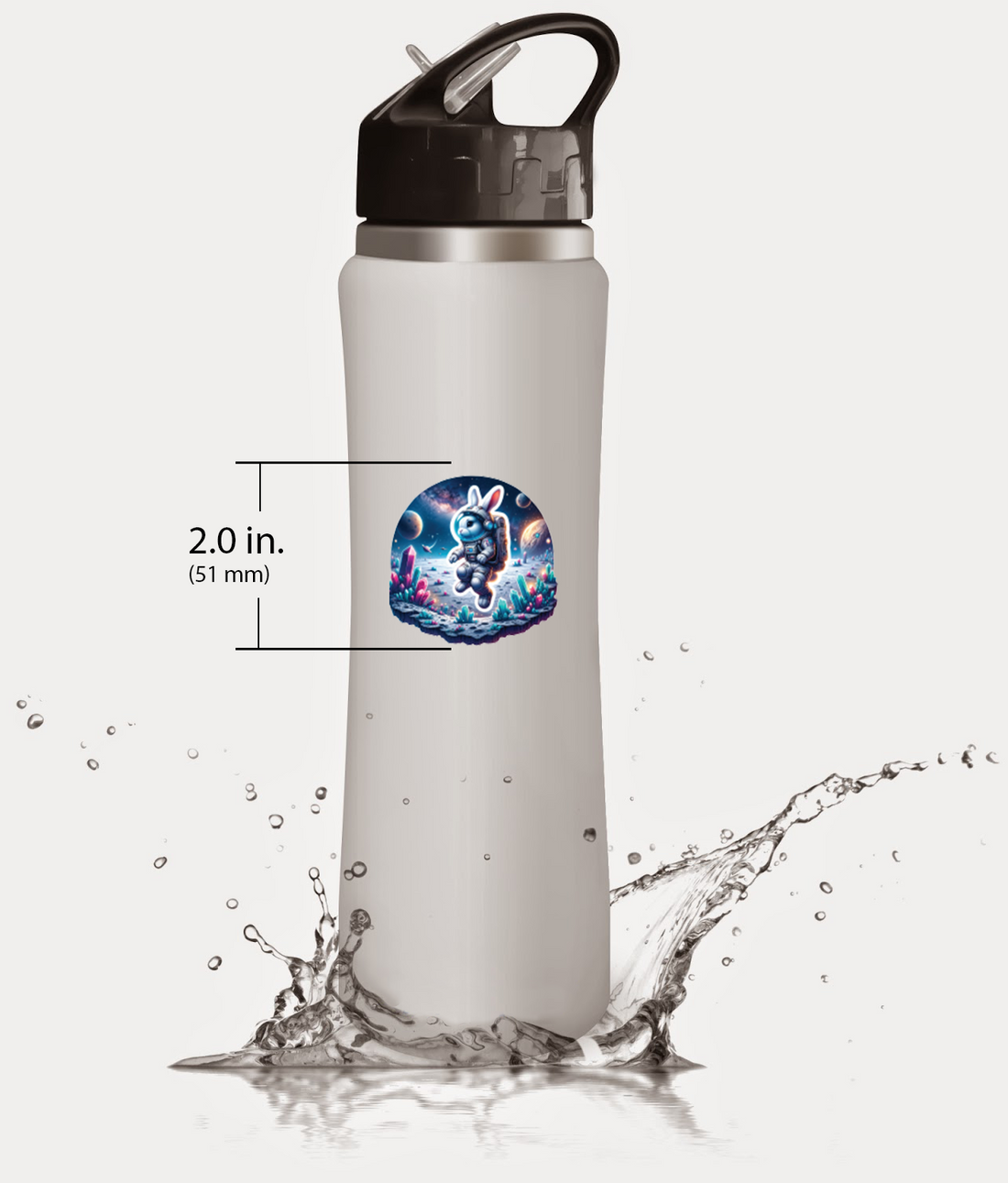


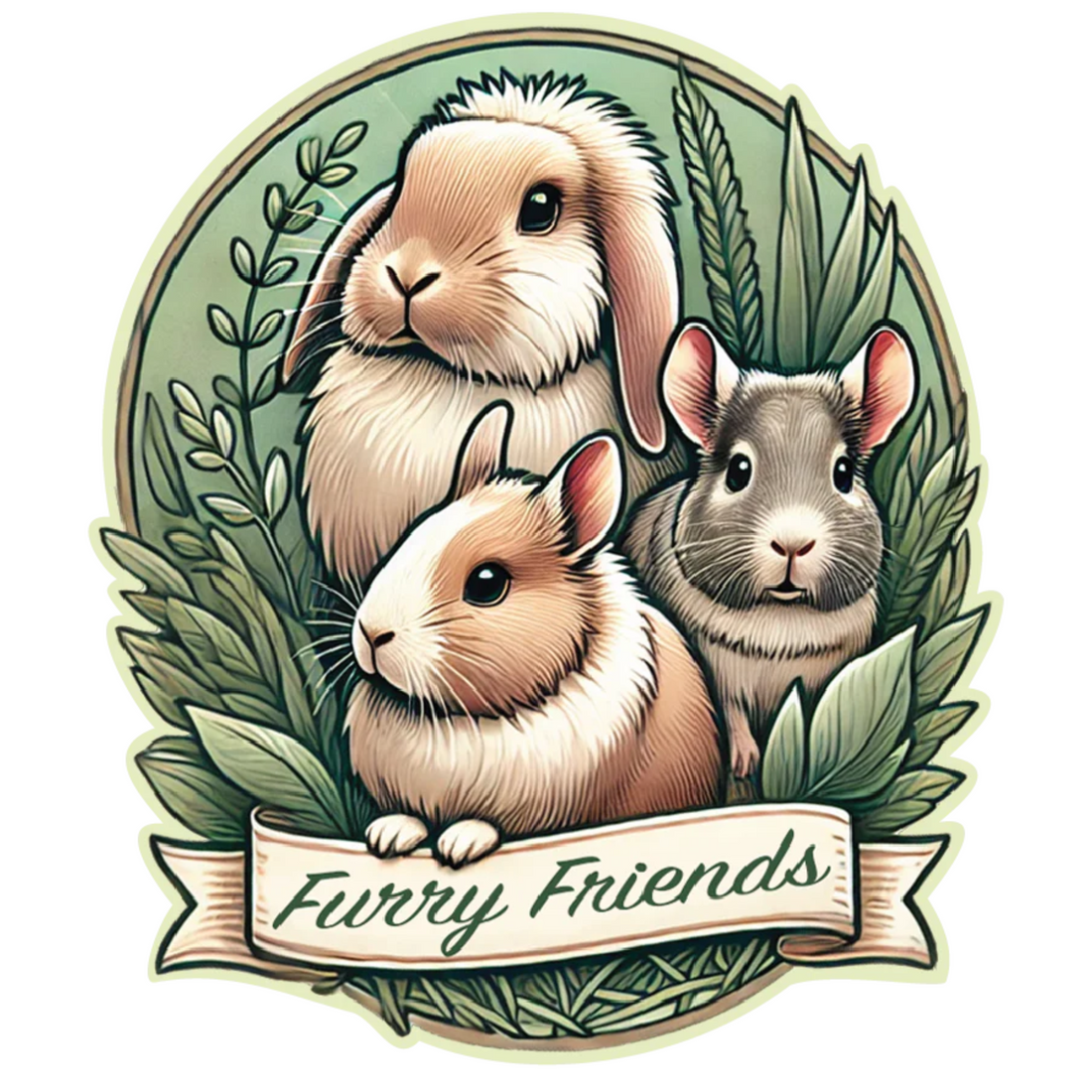
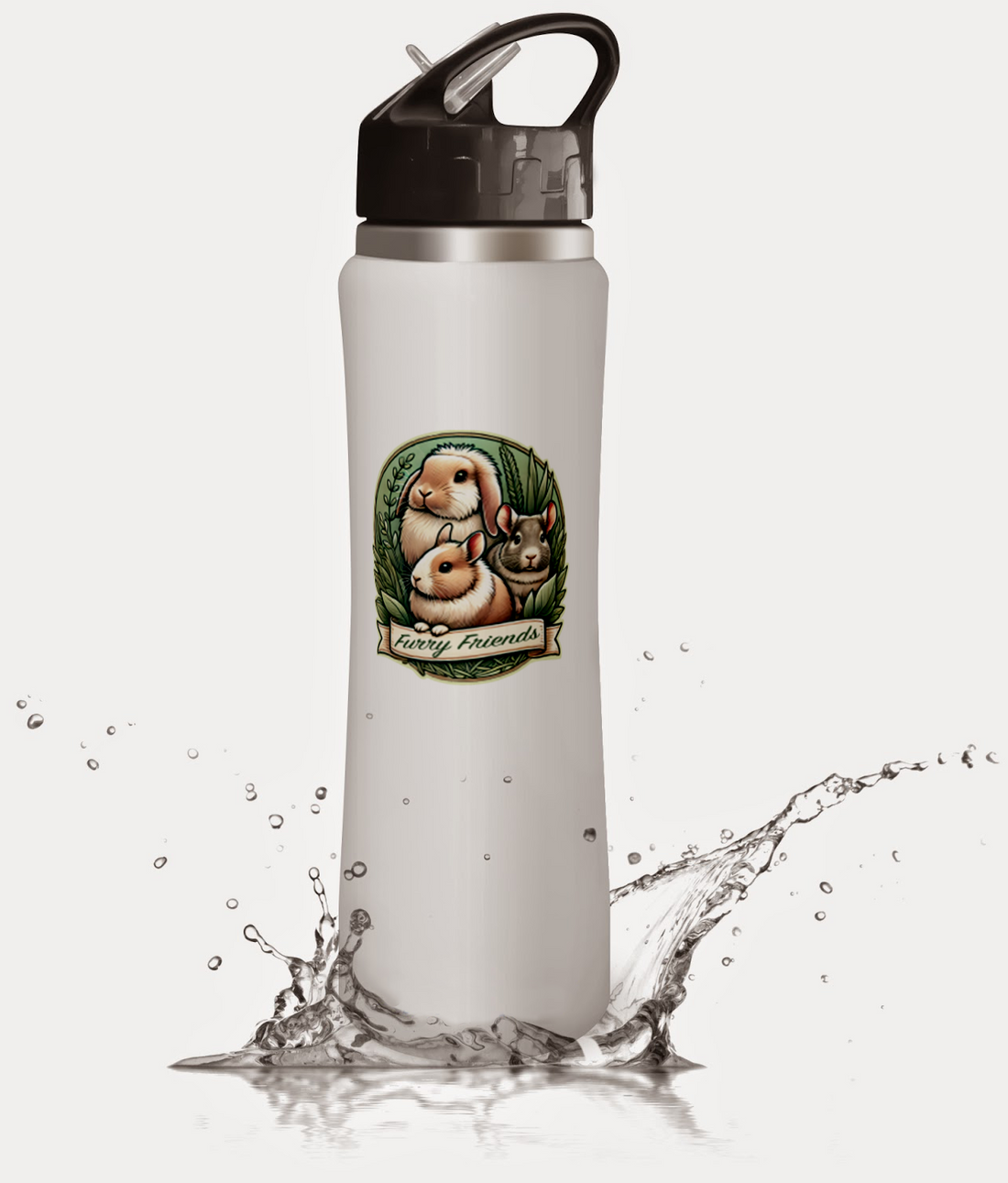






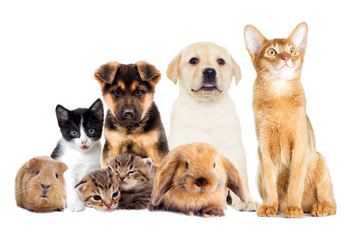


Comments